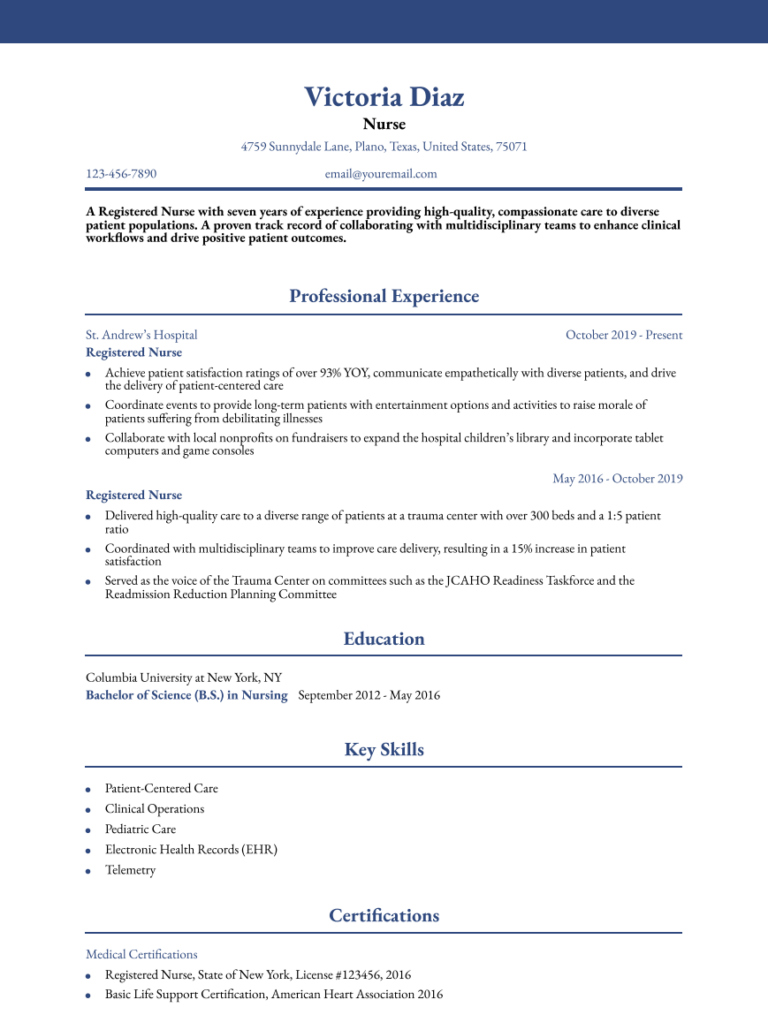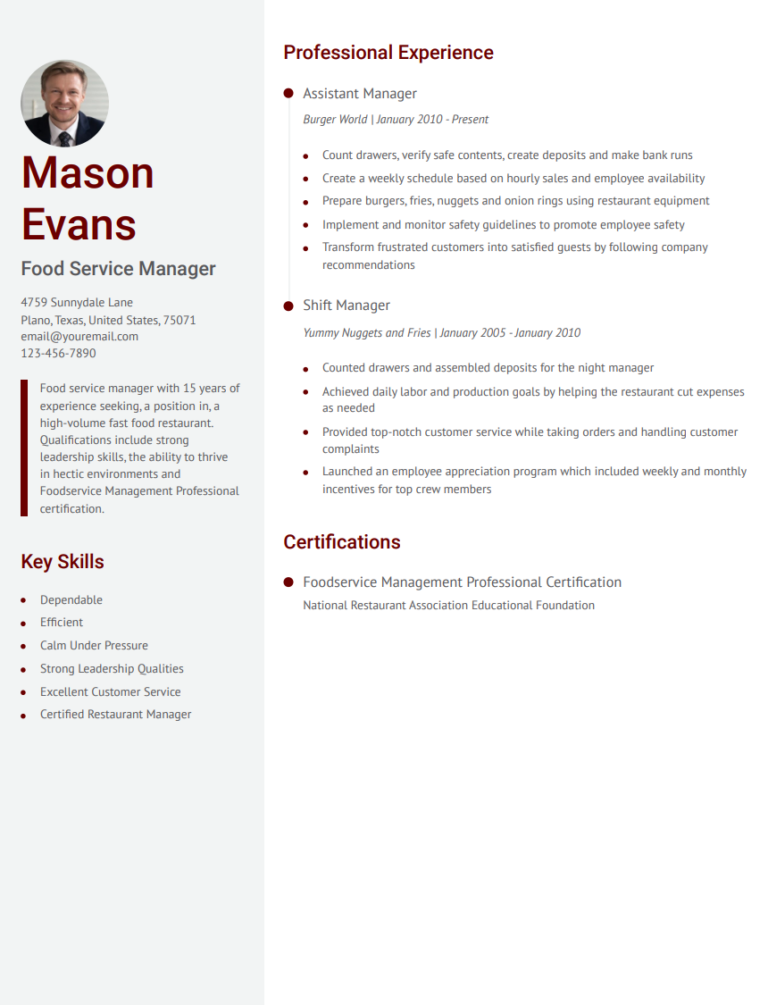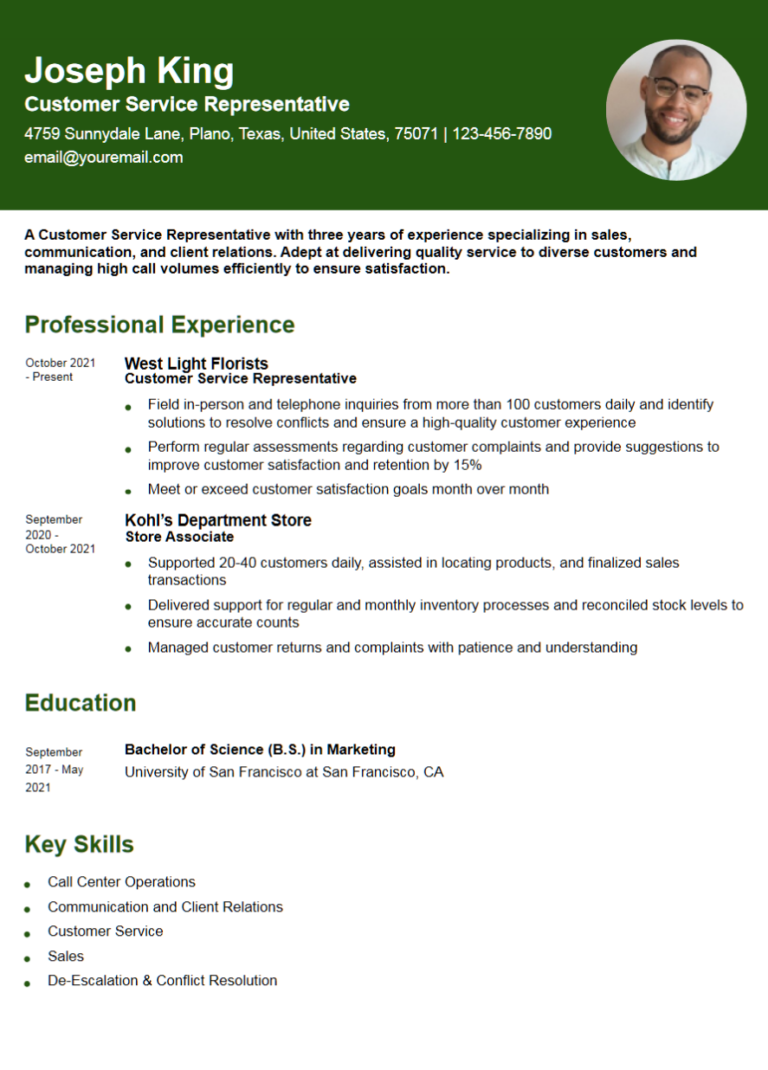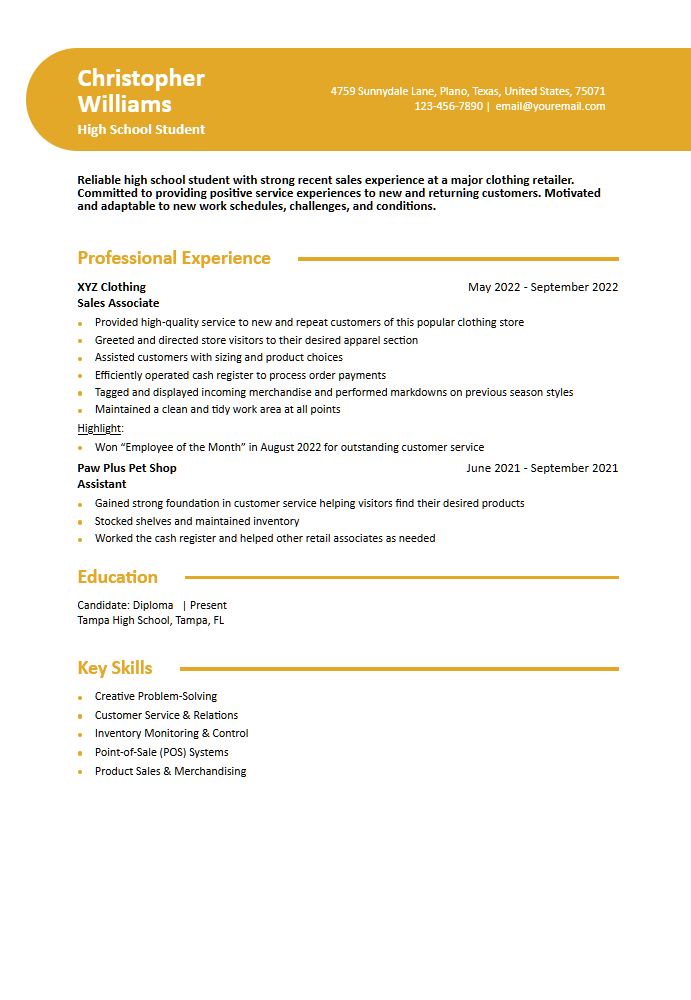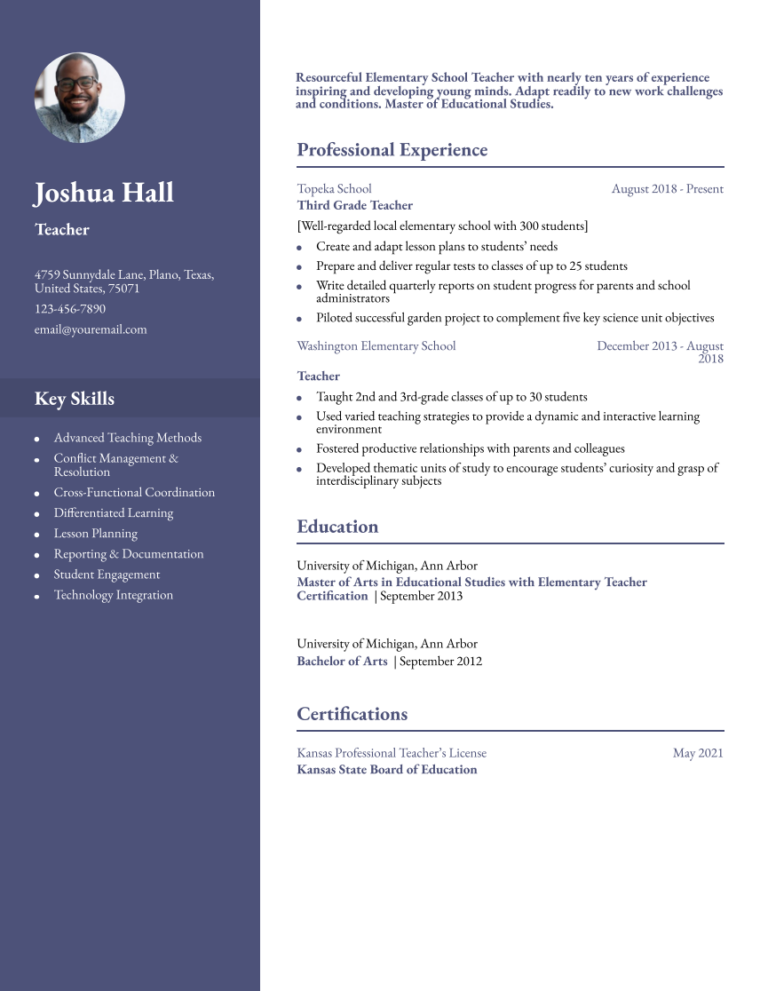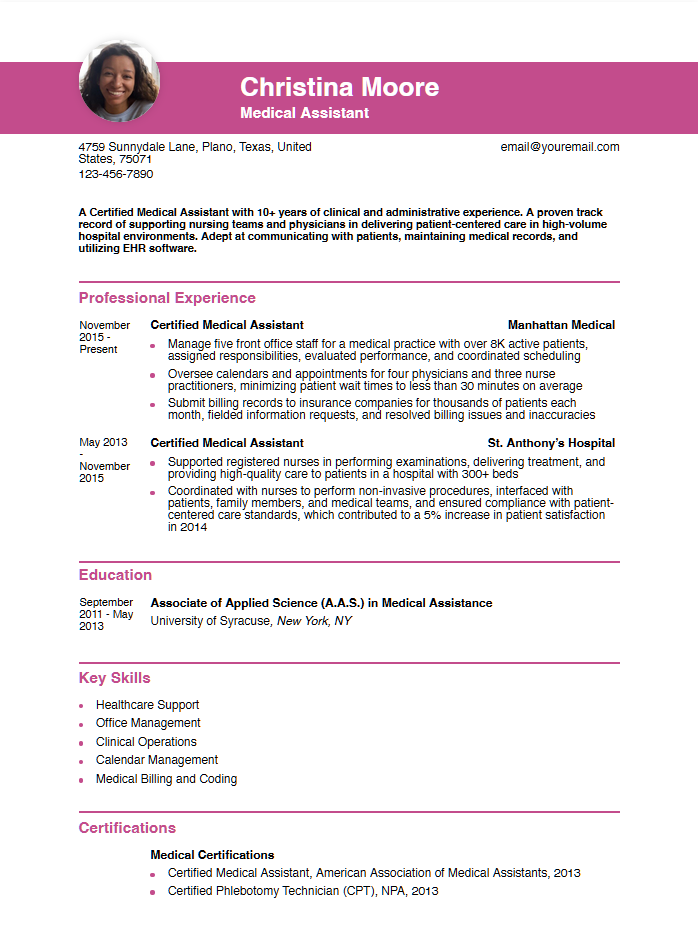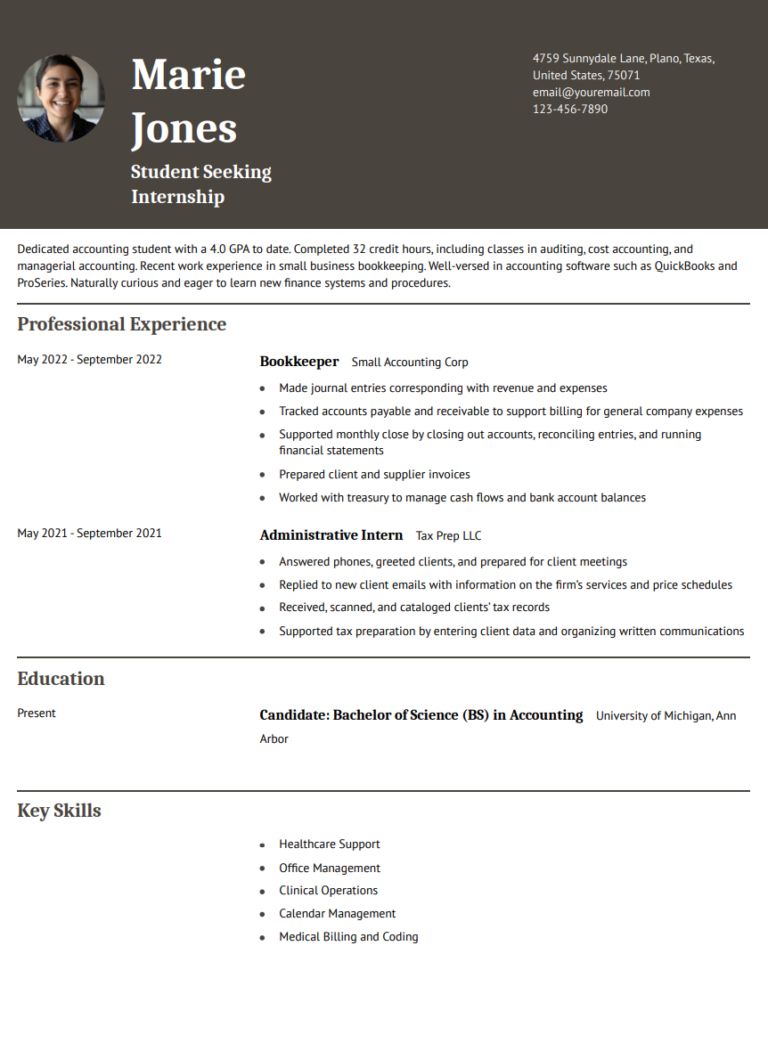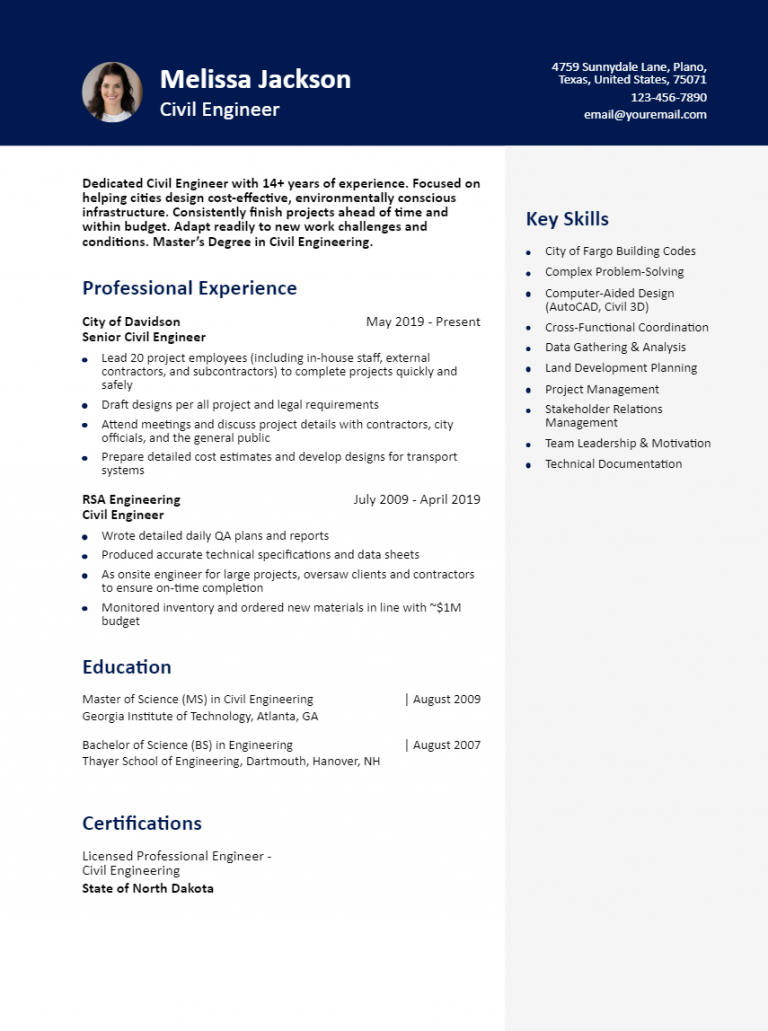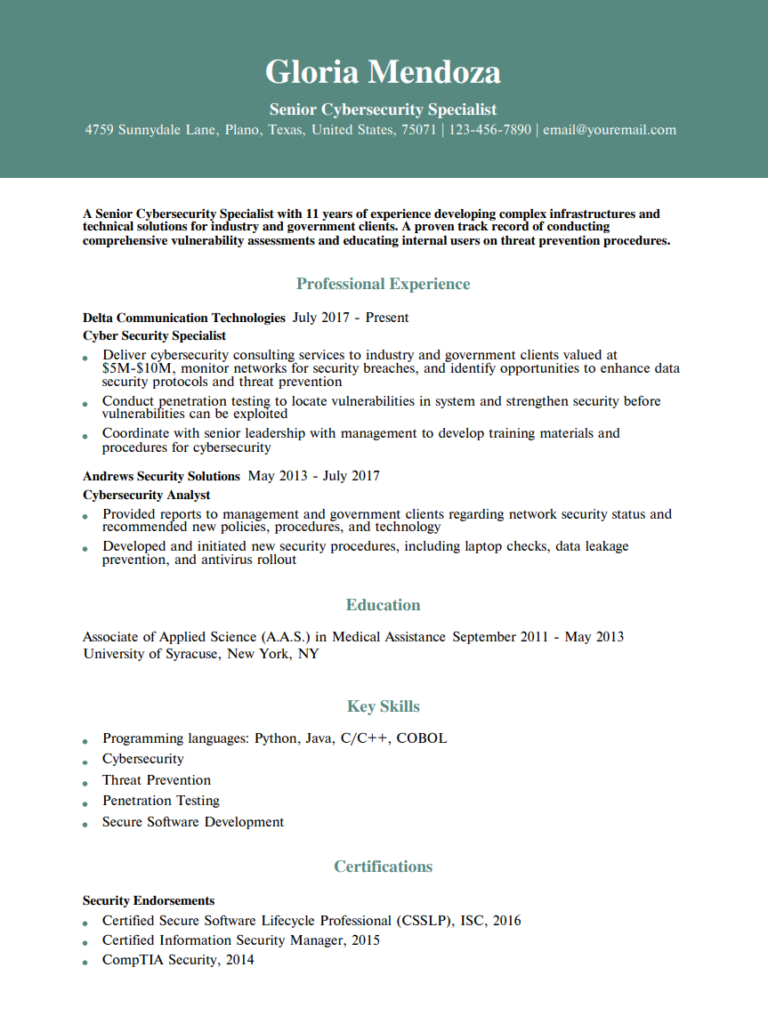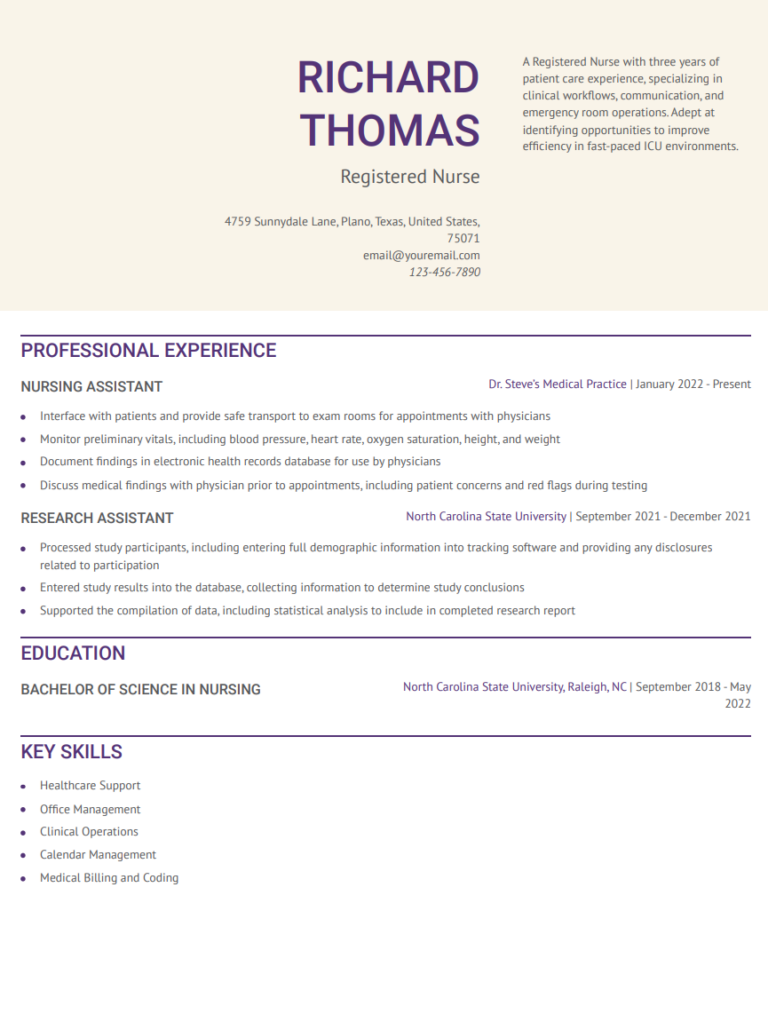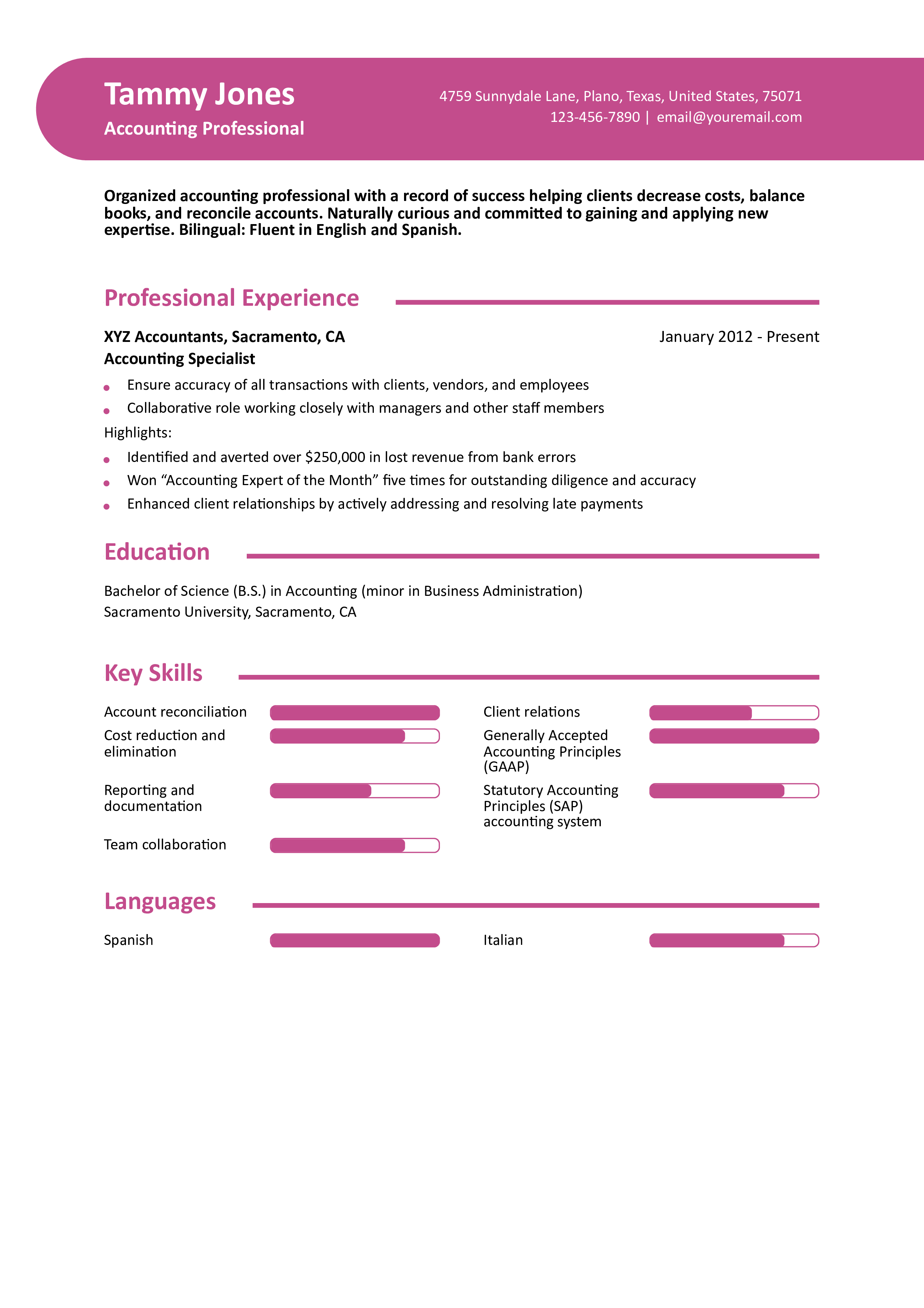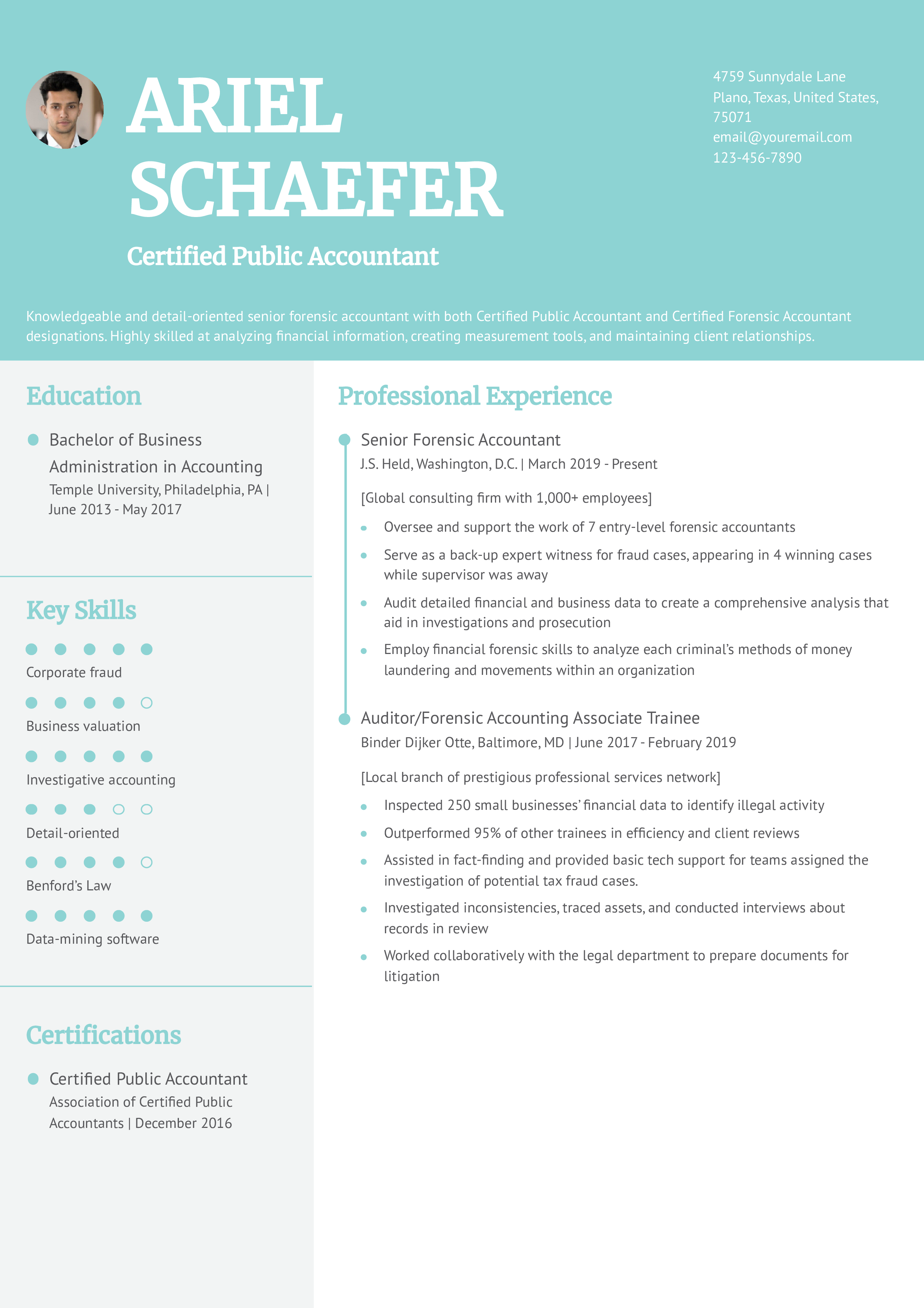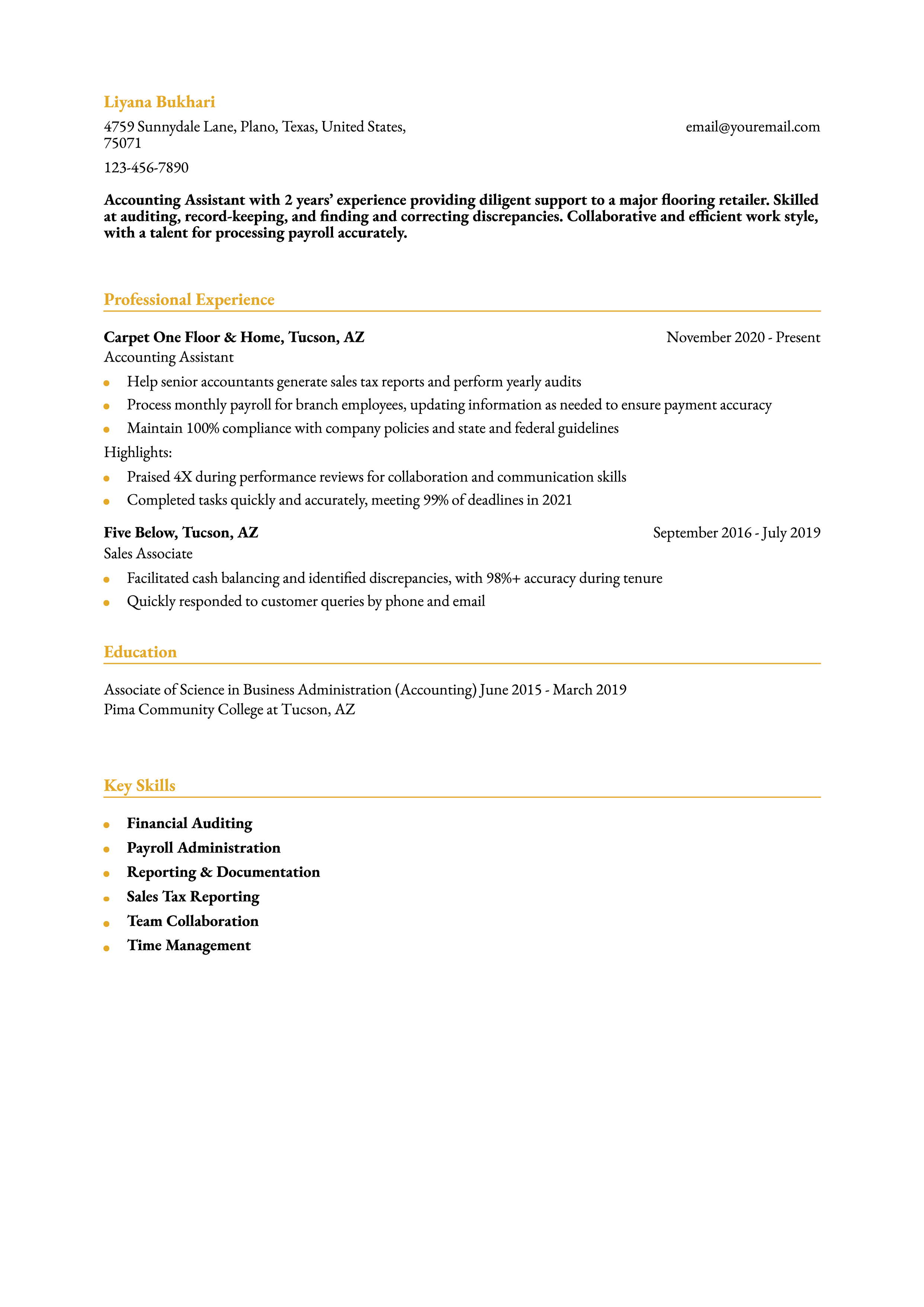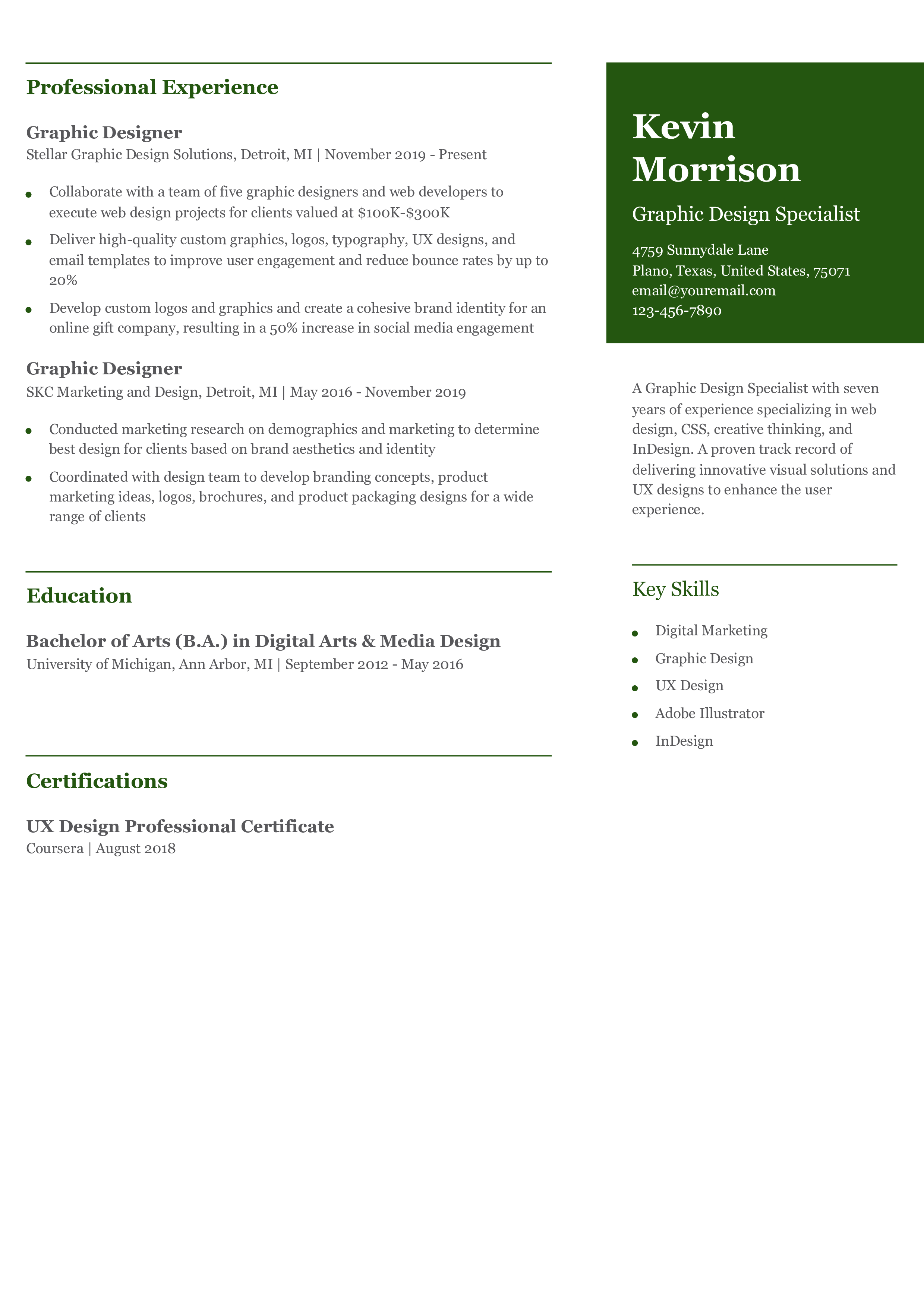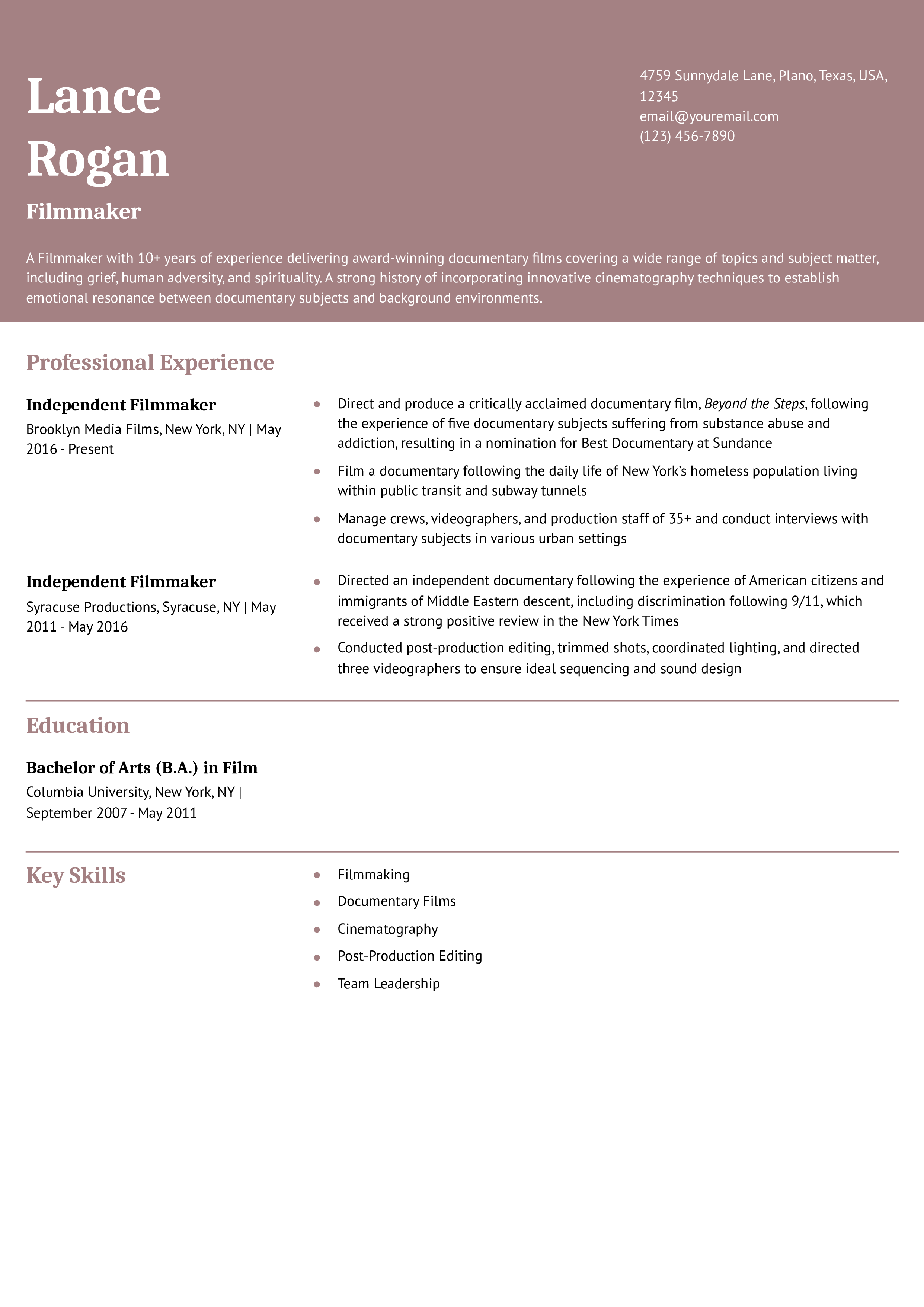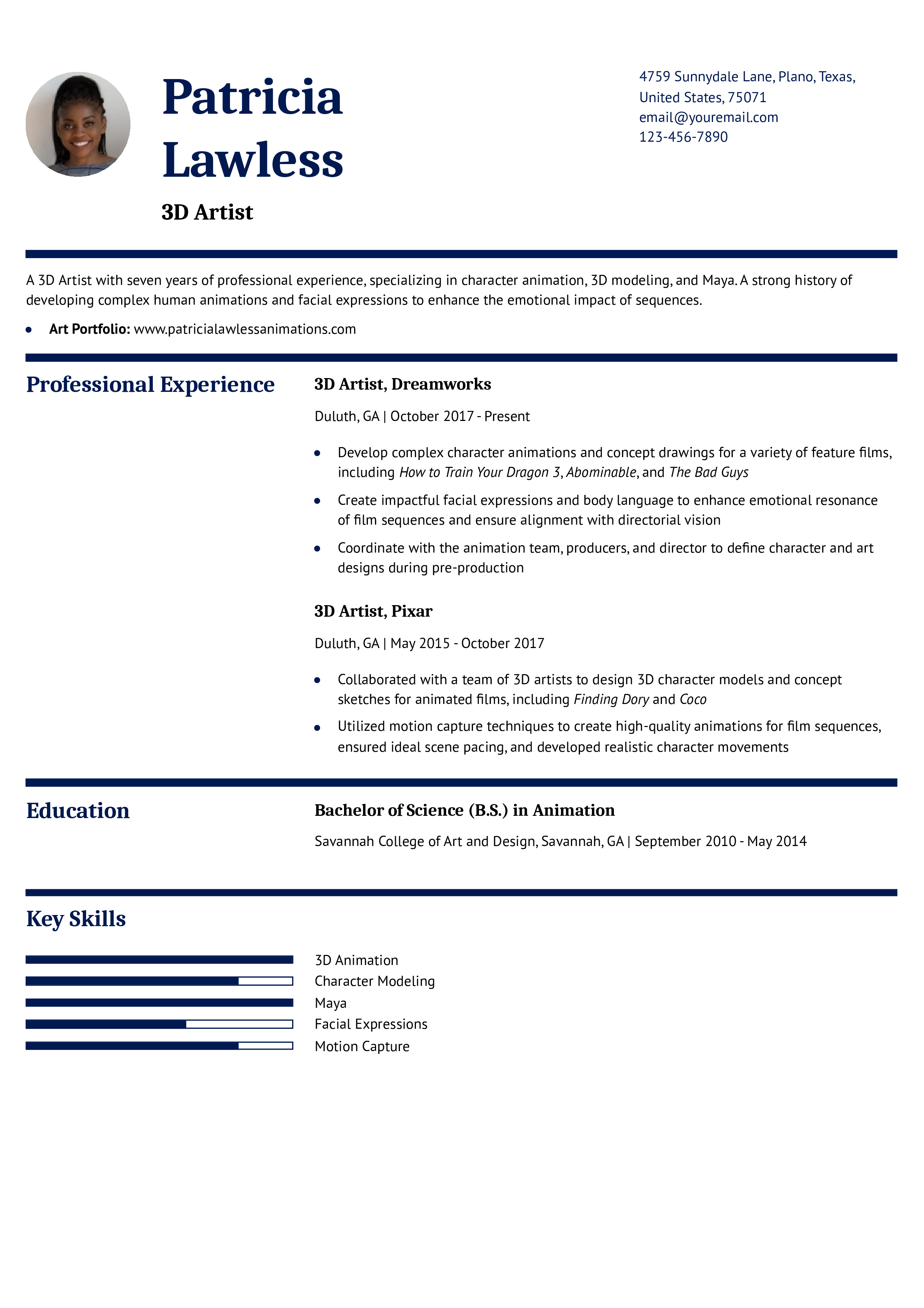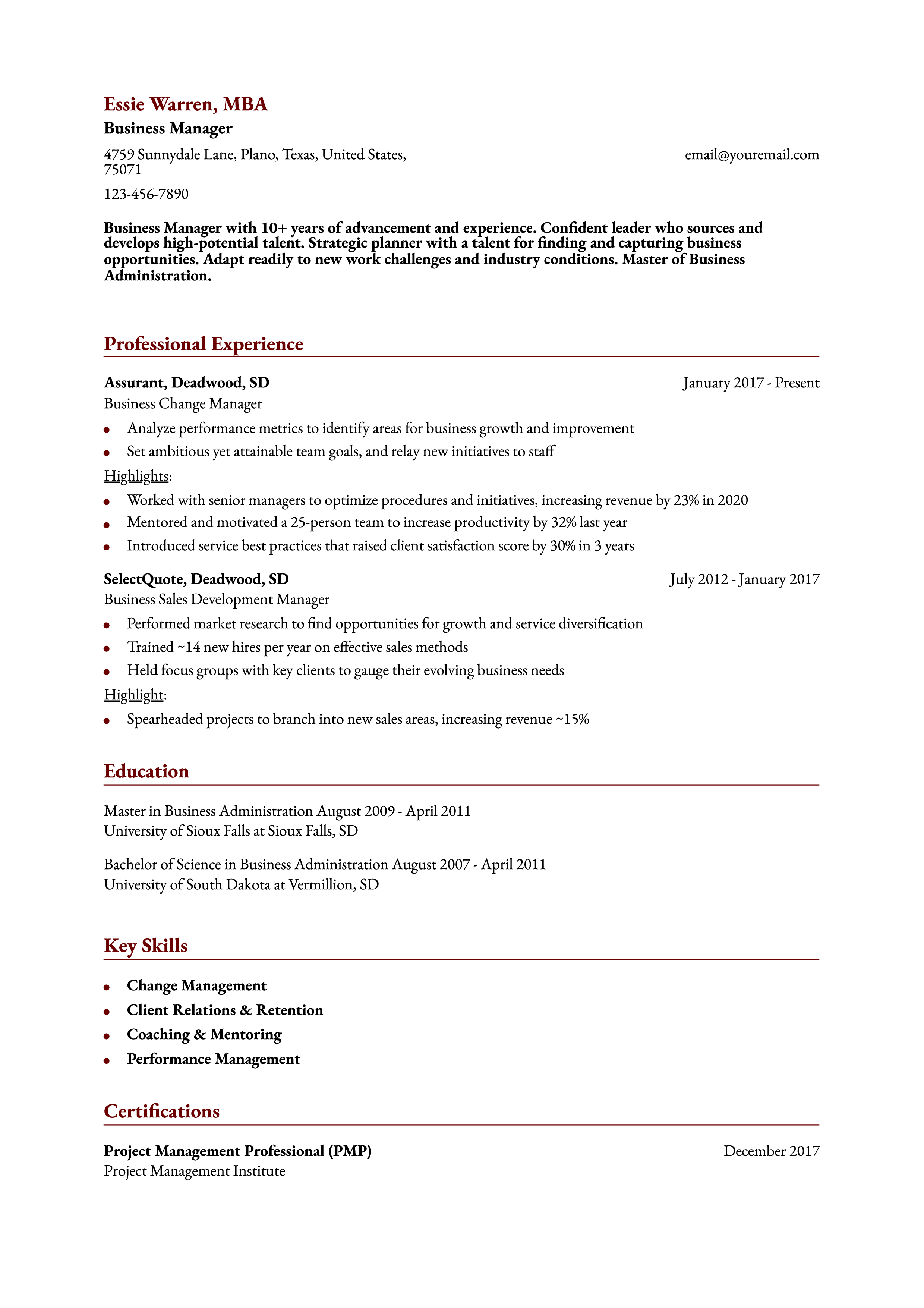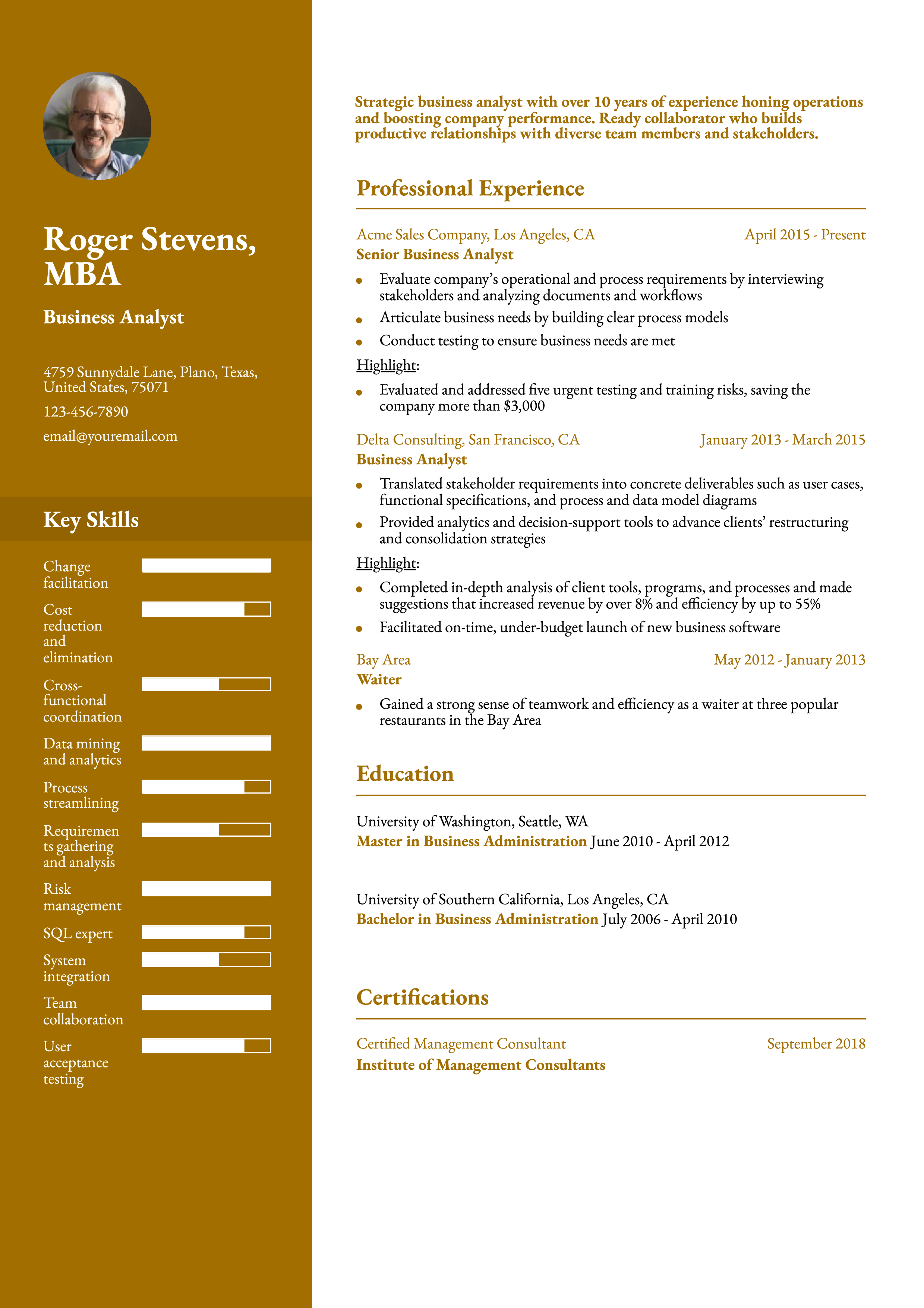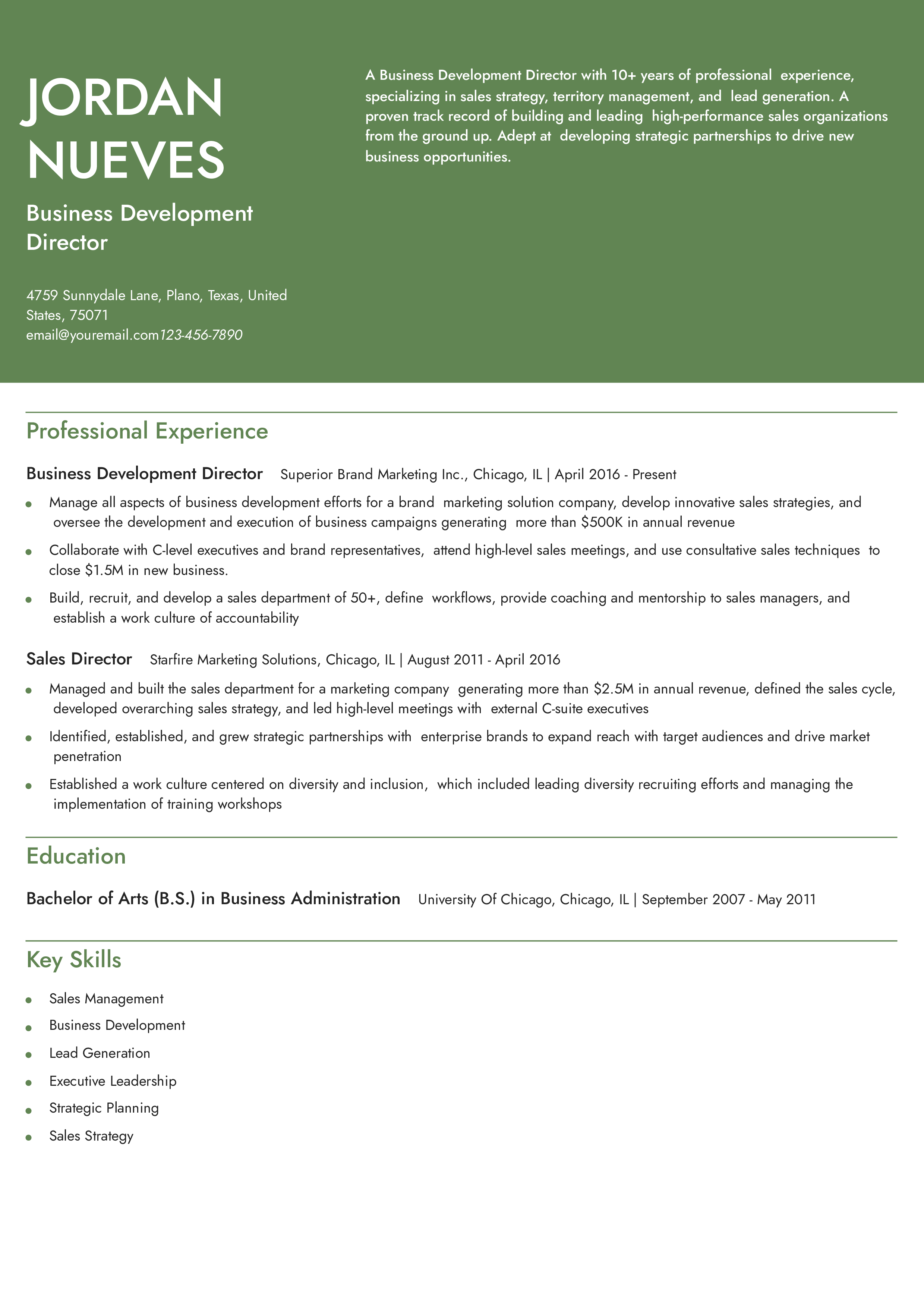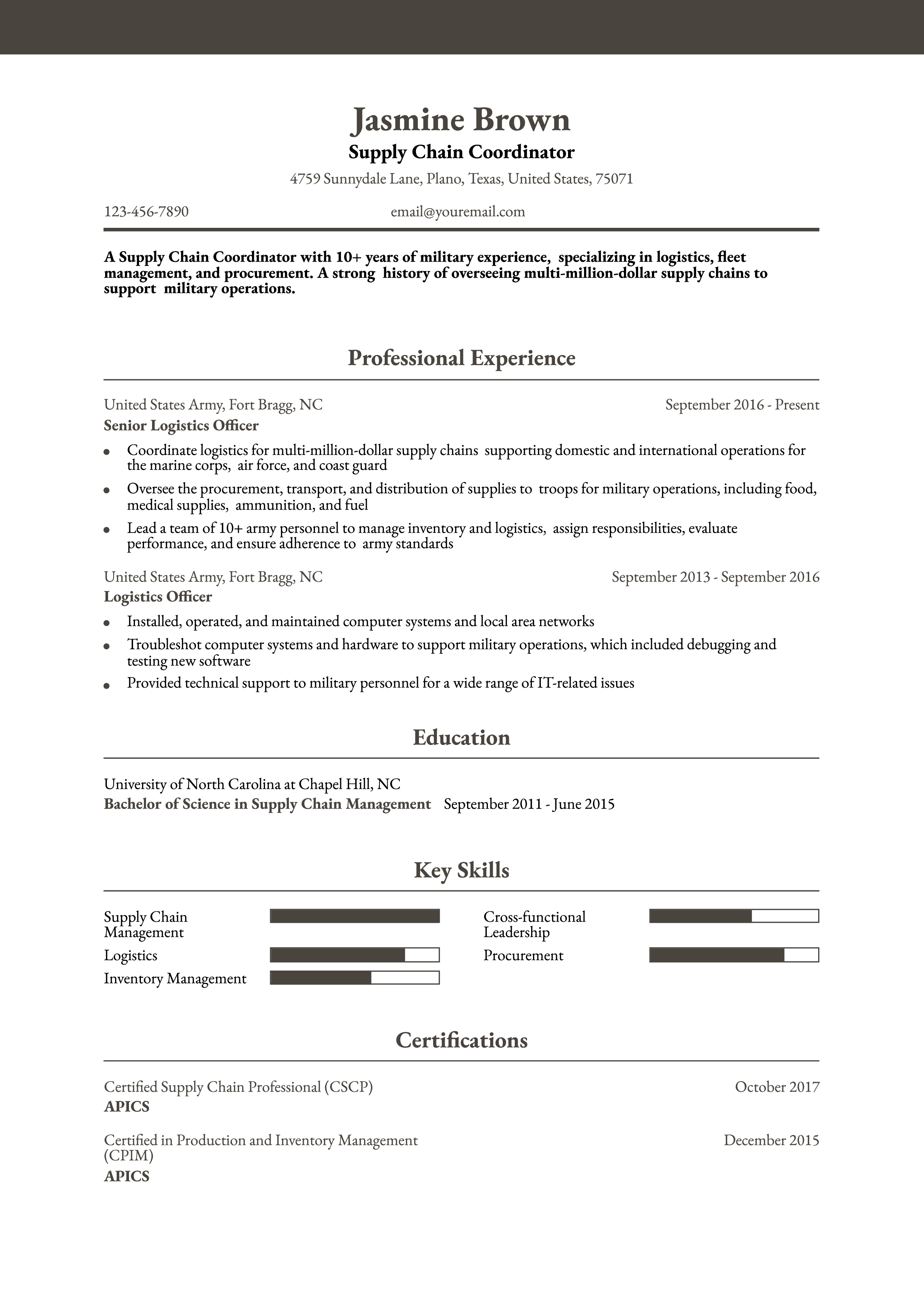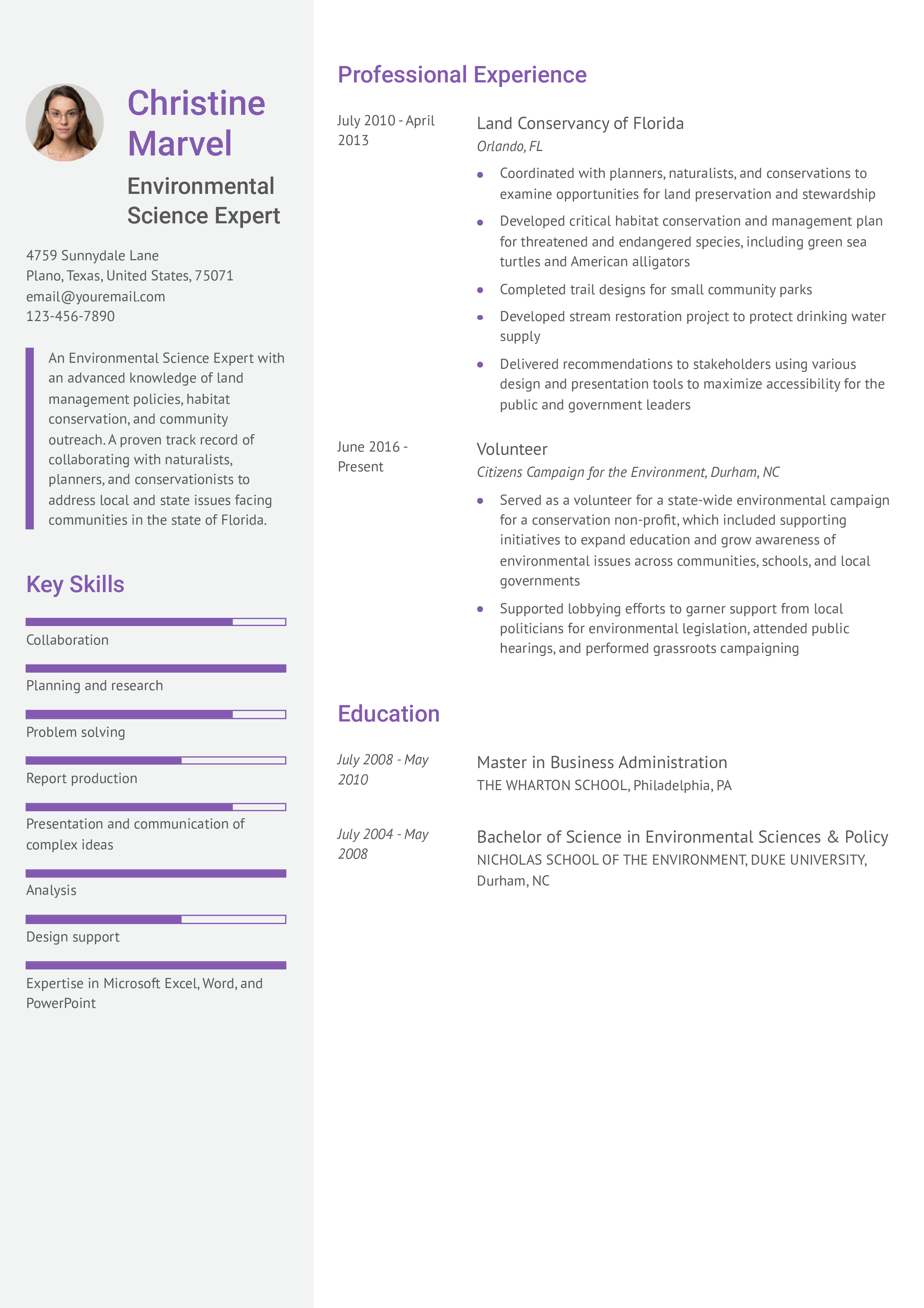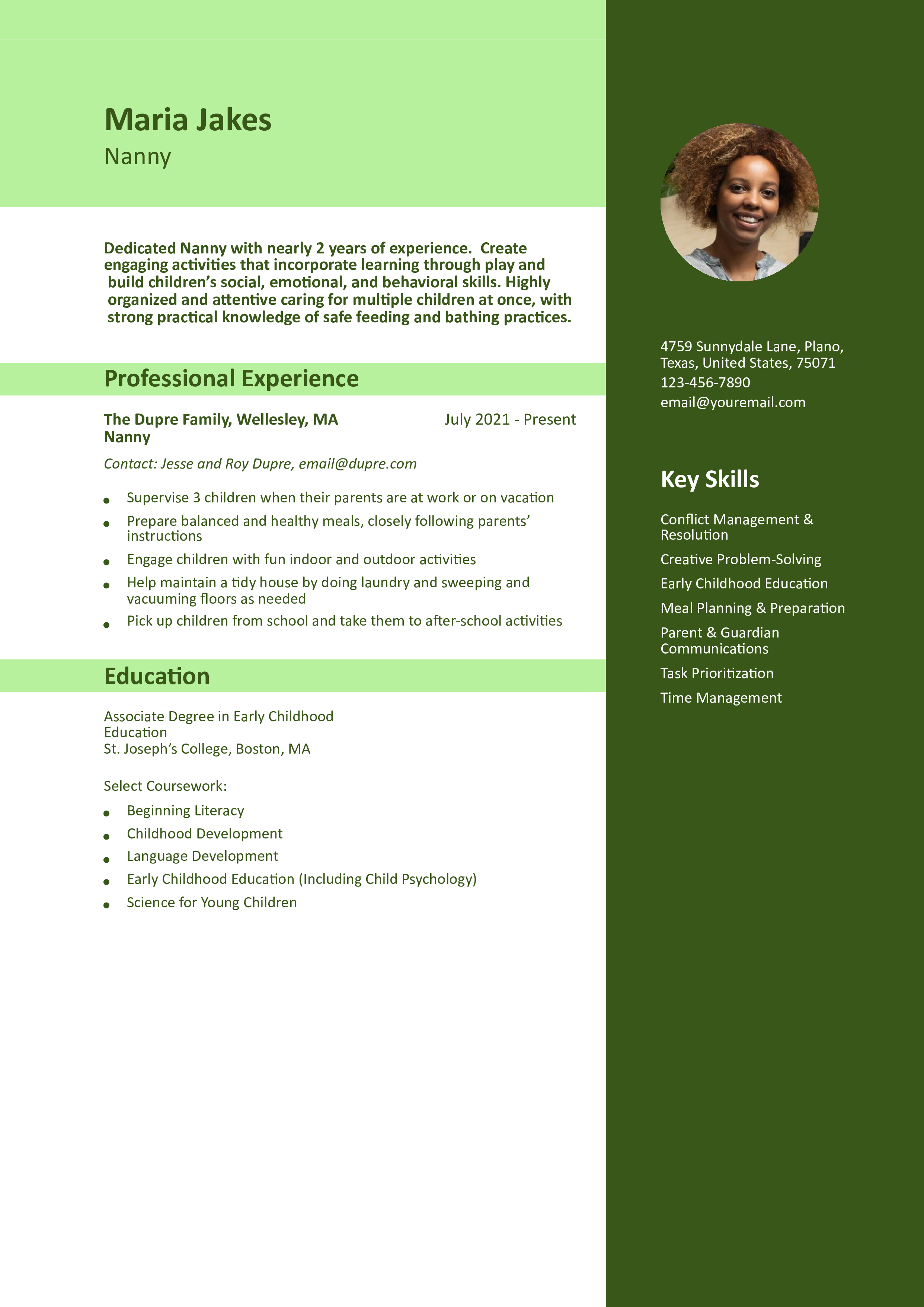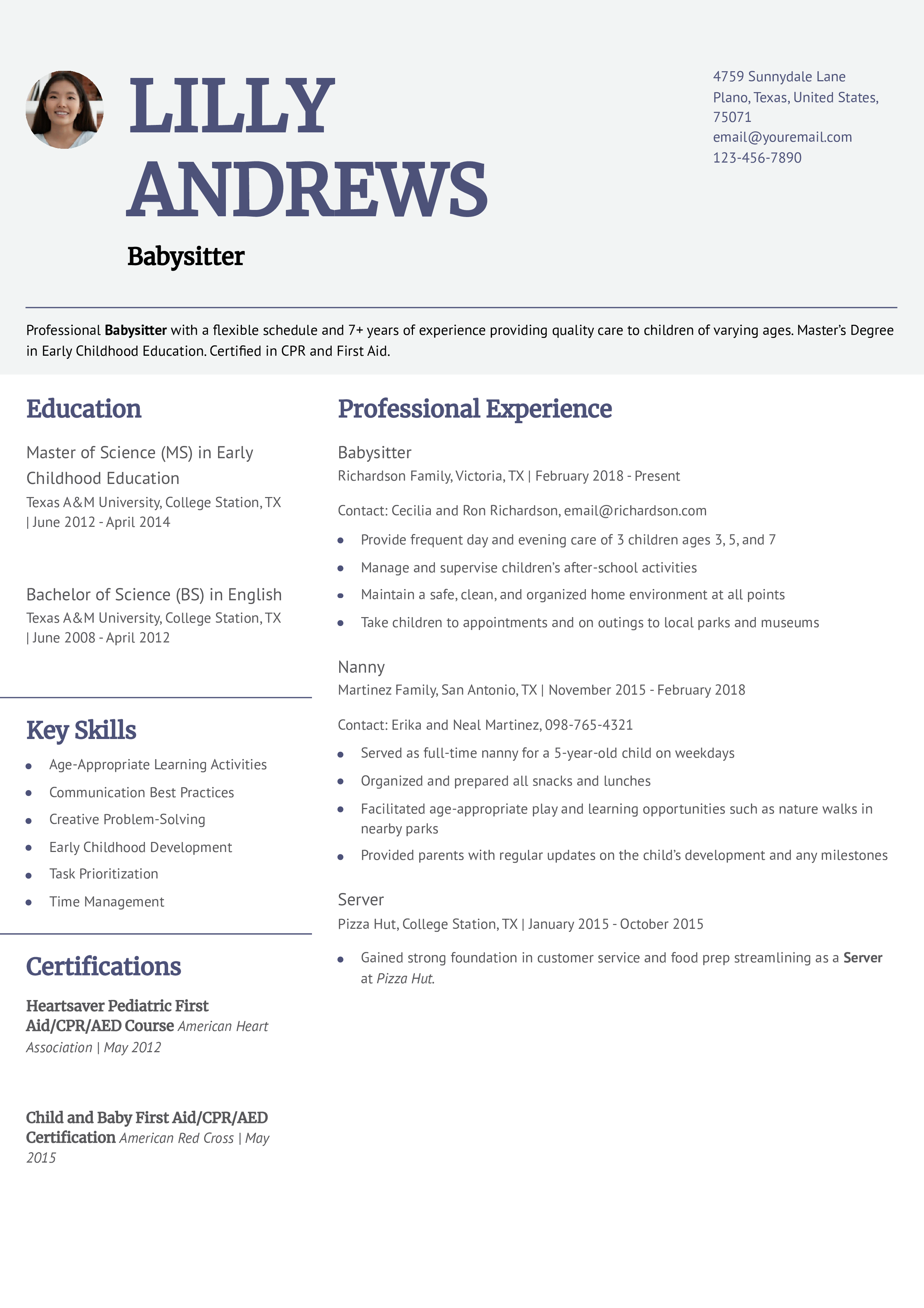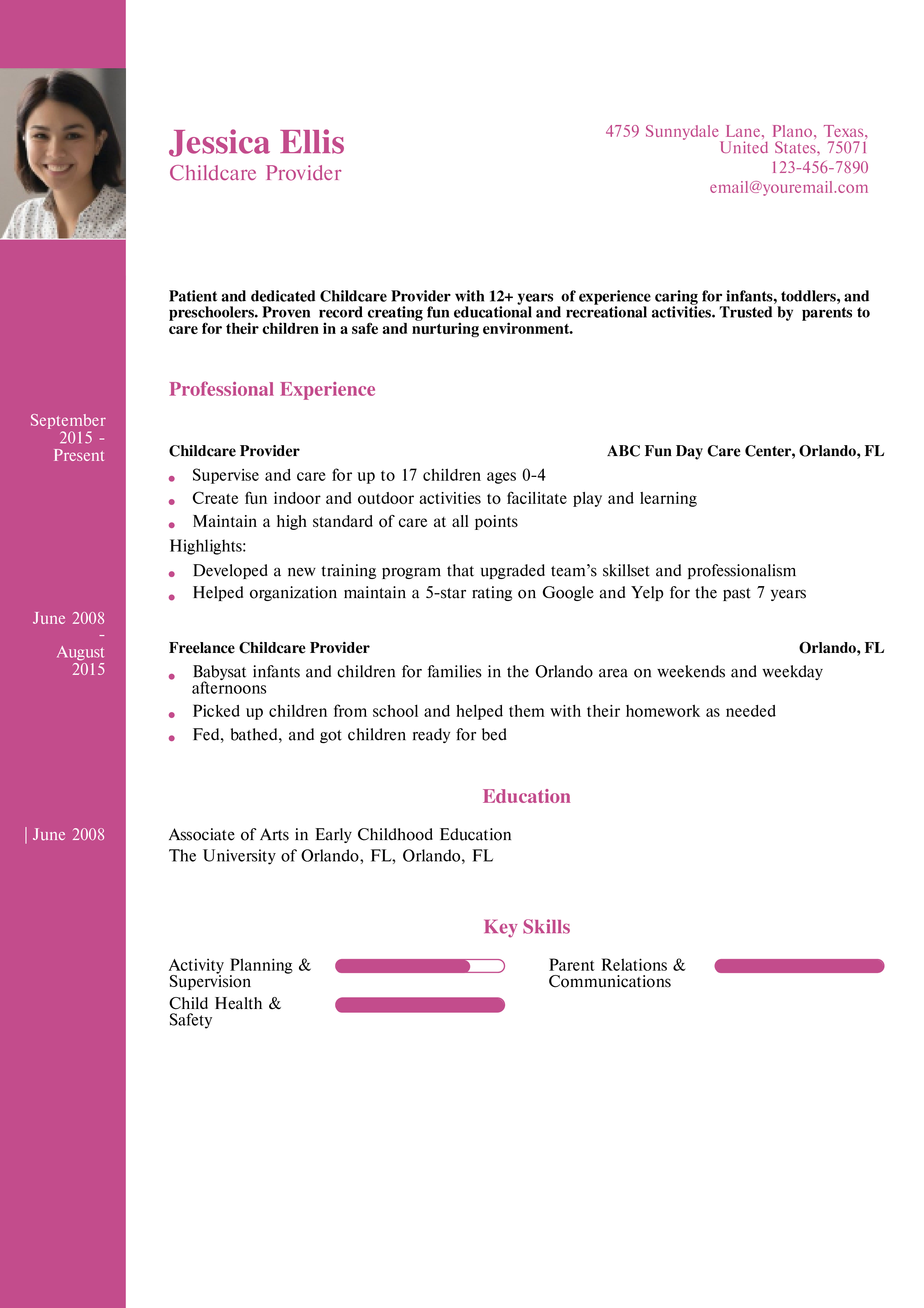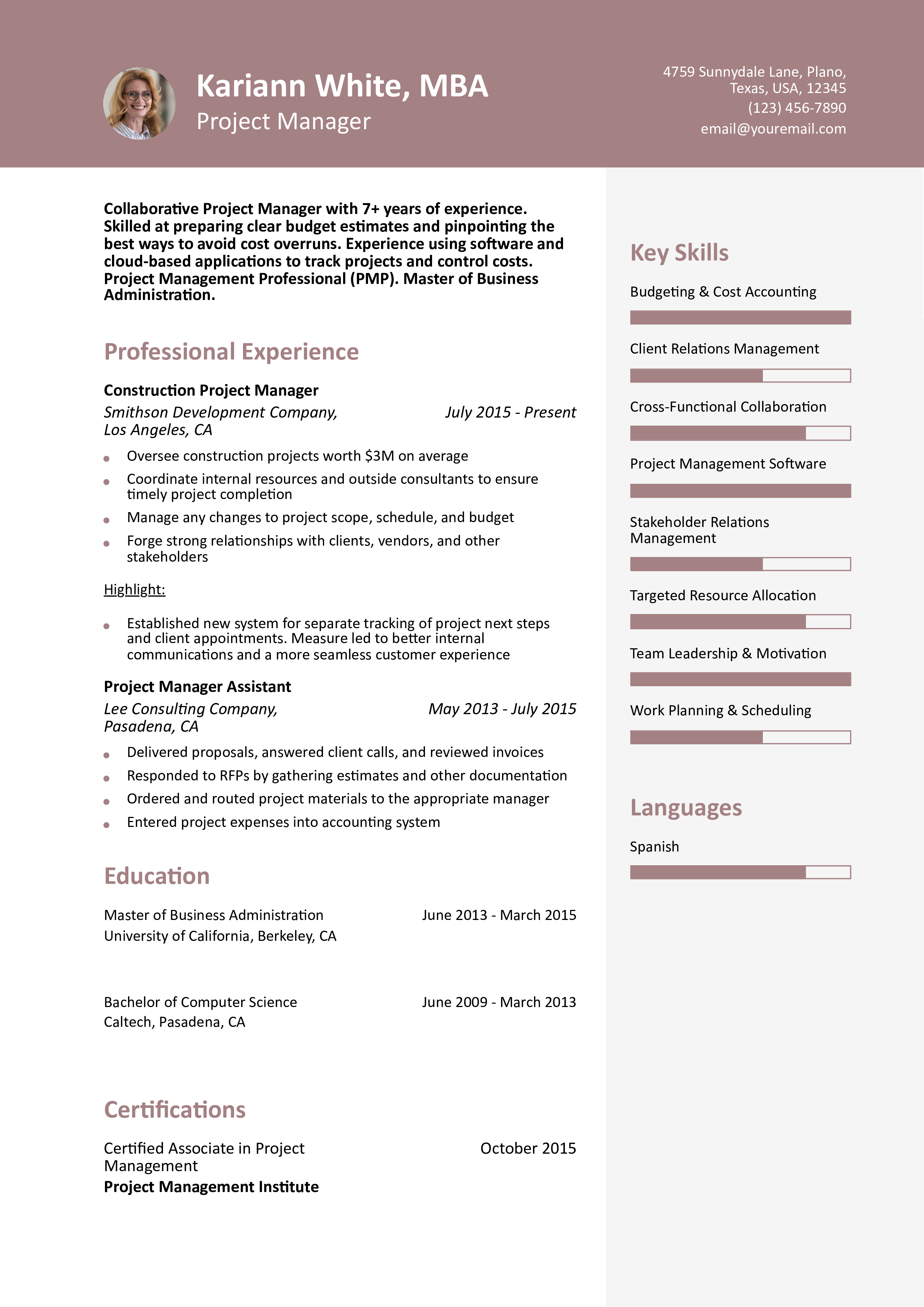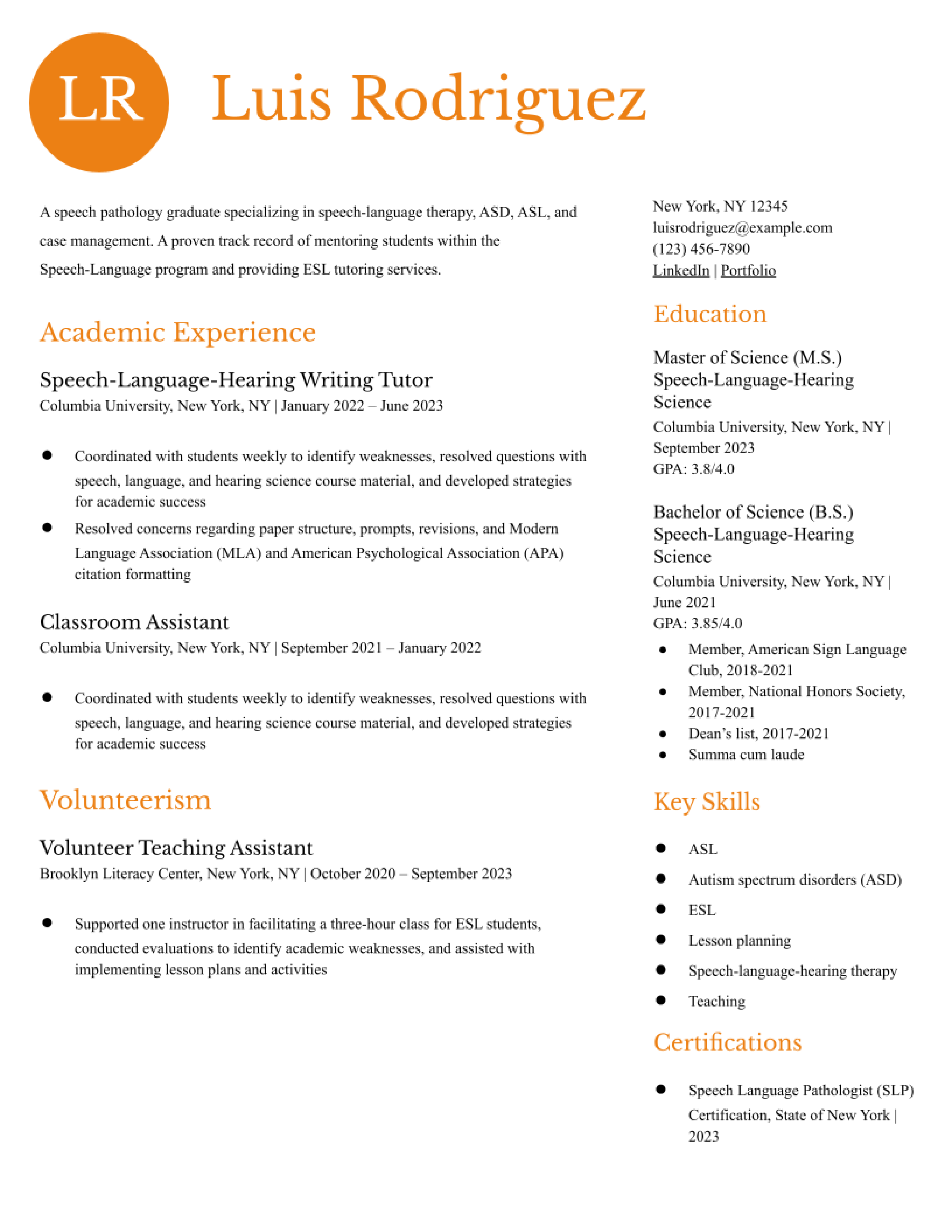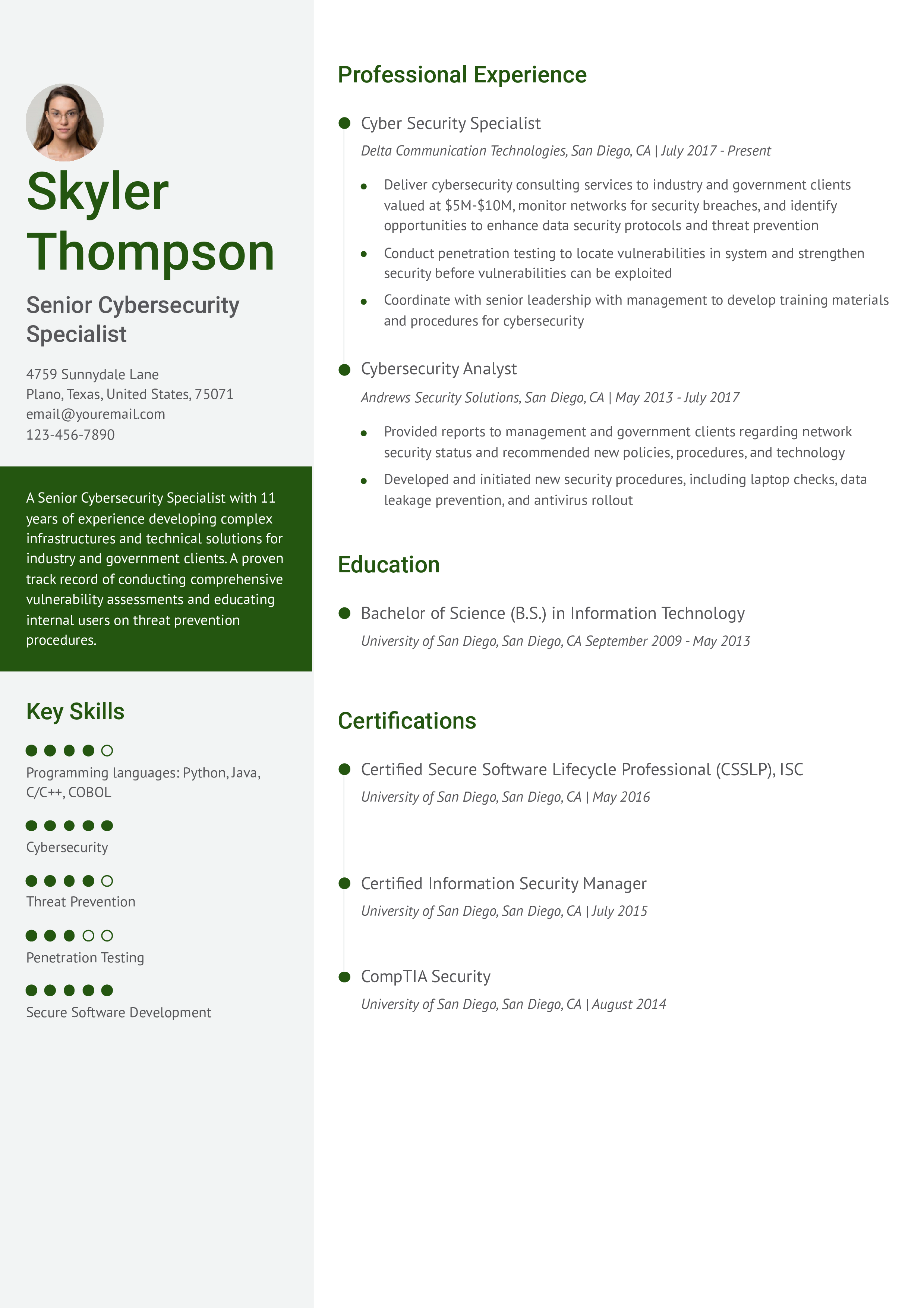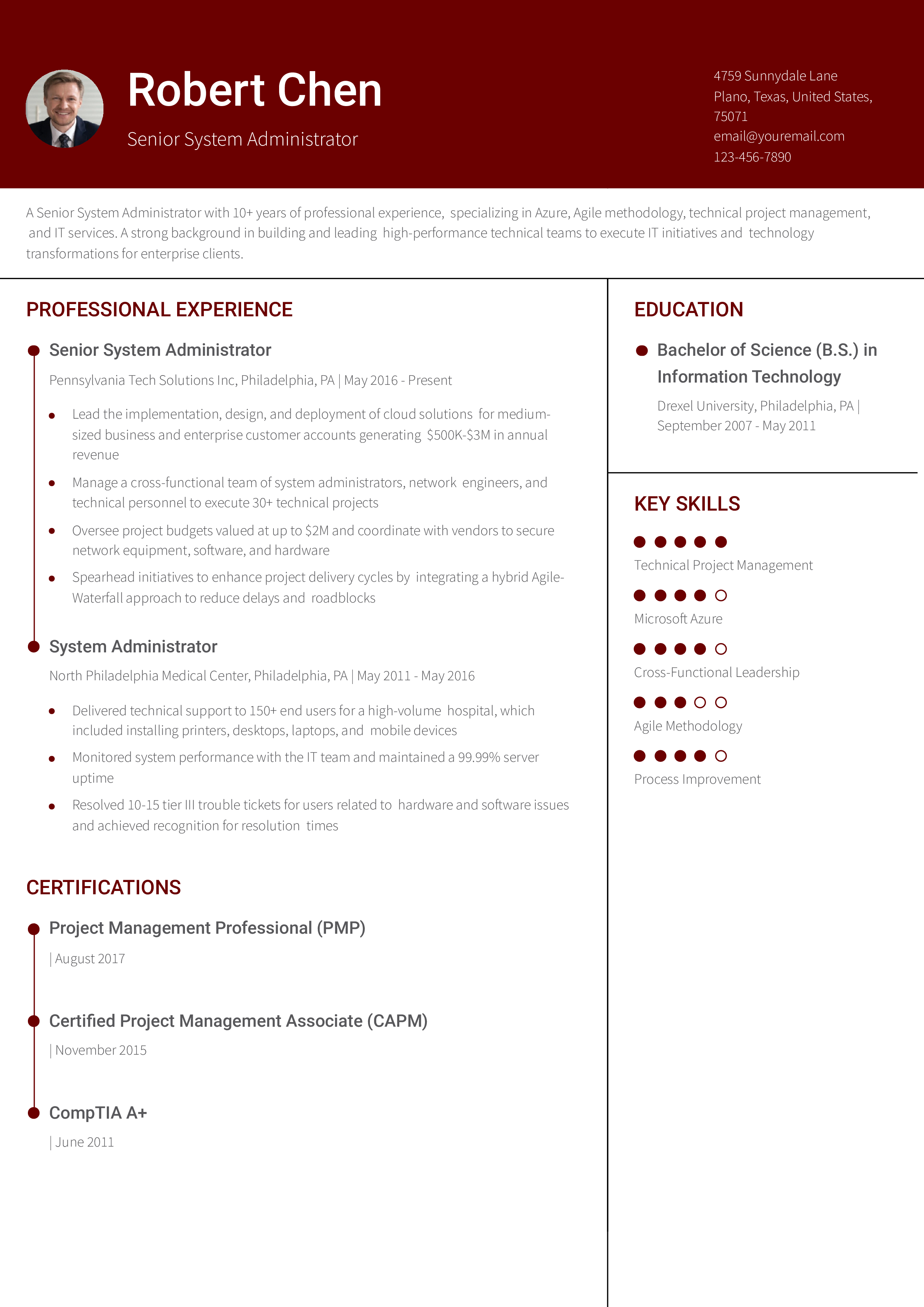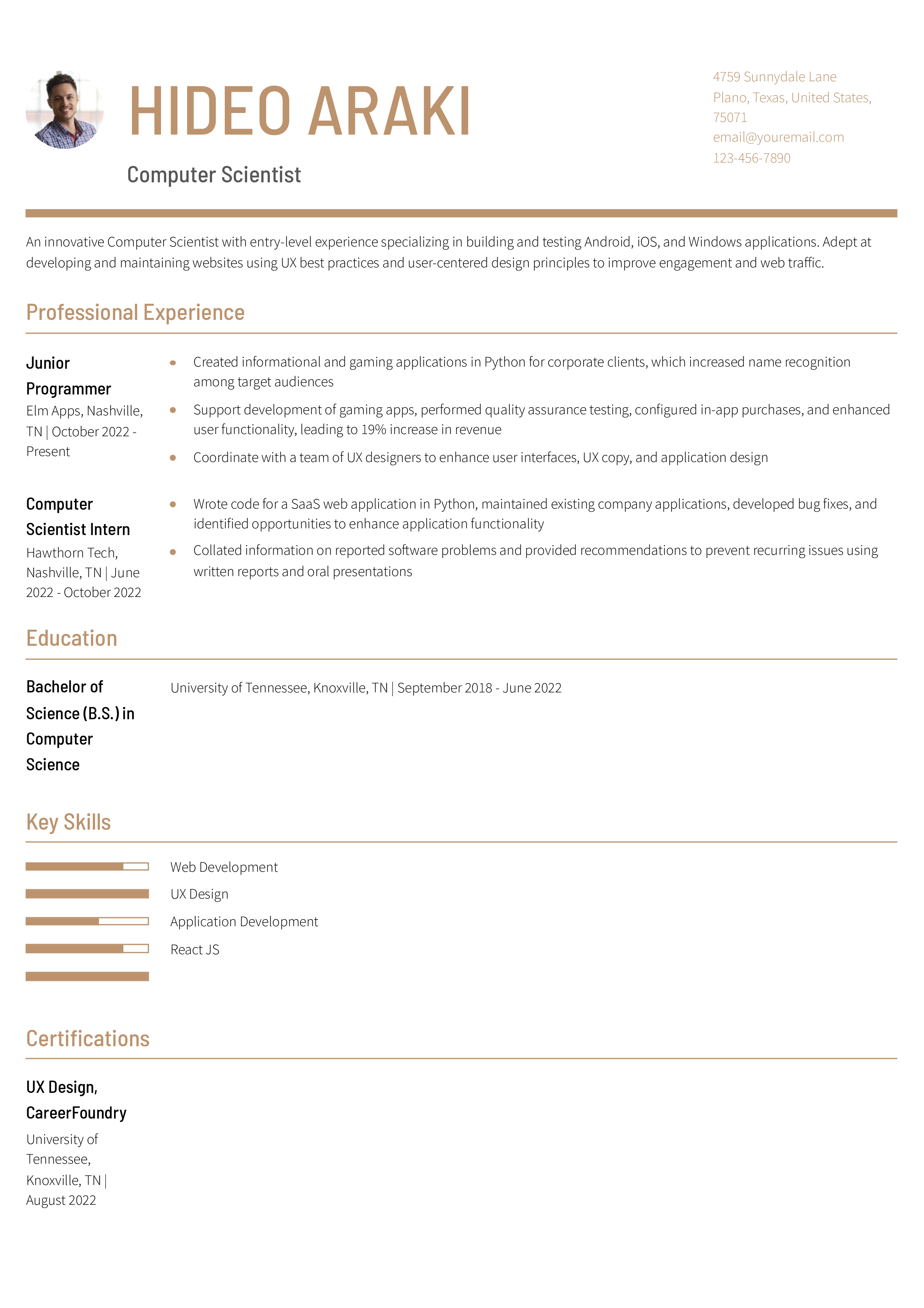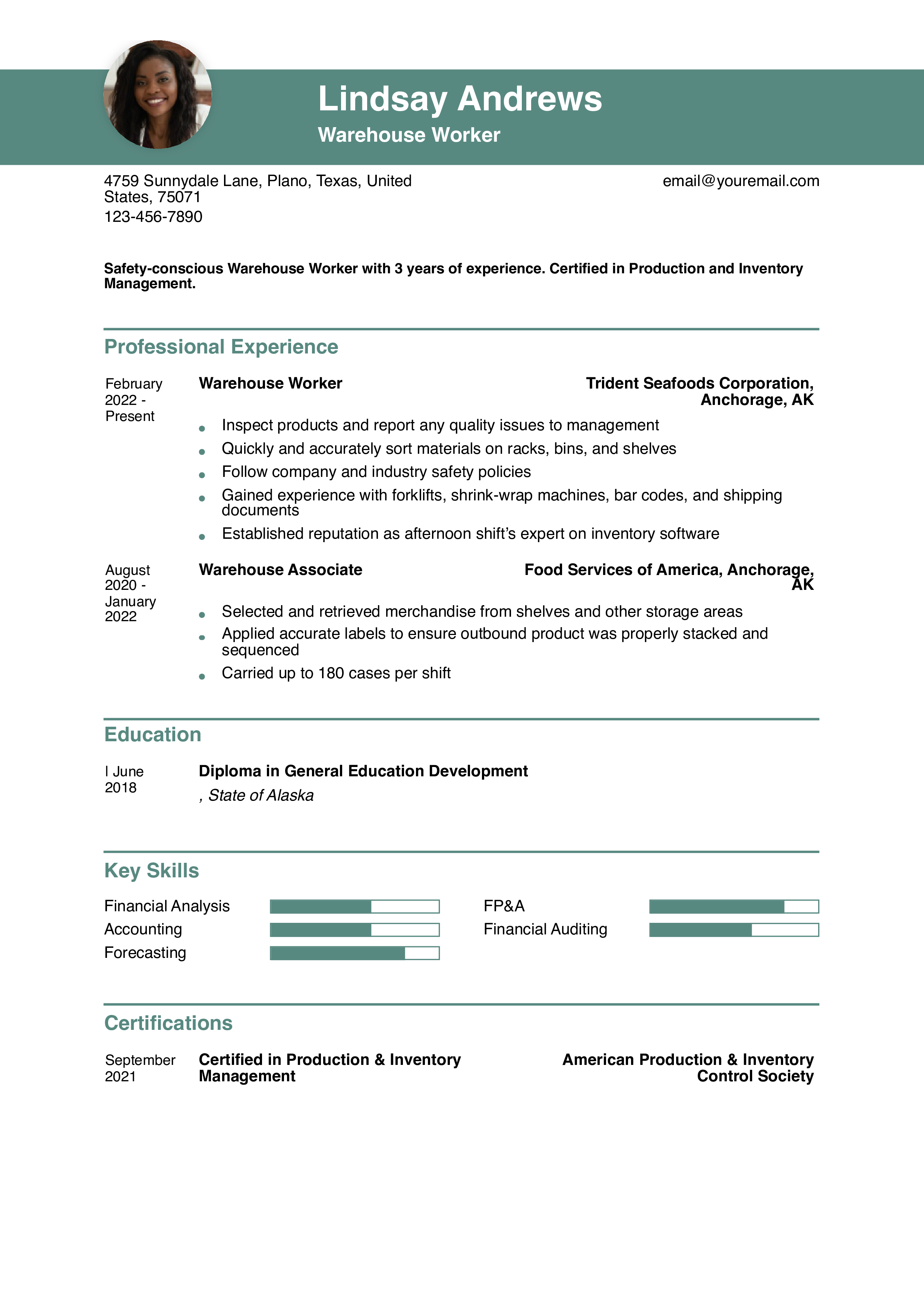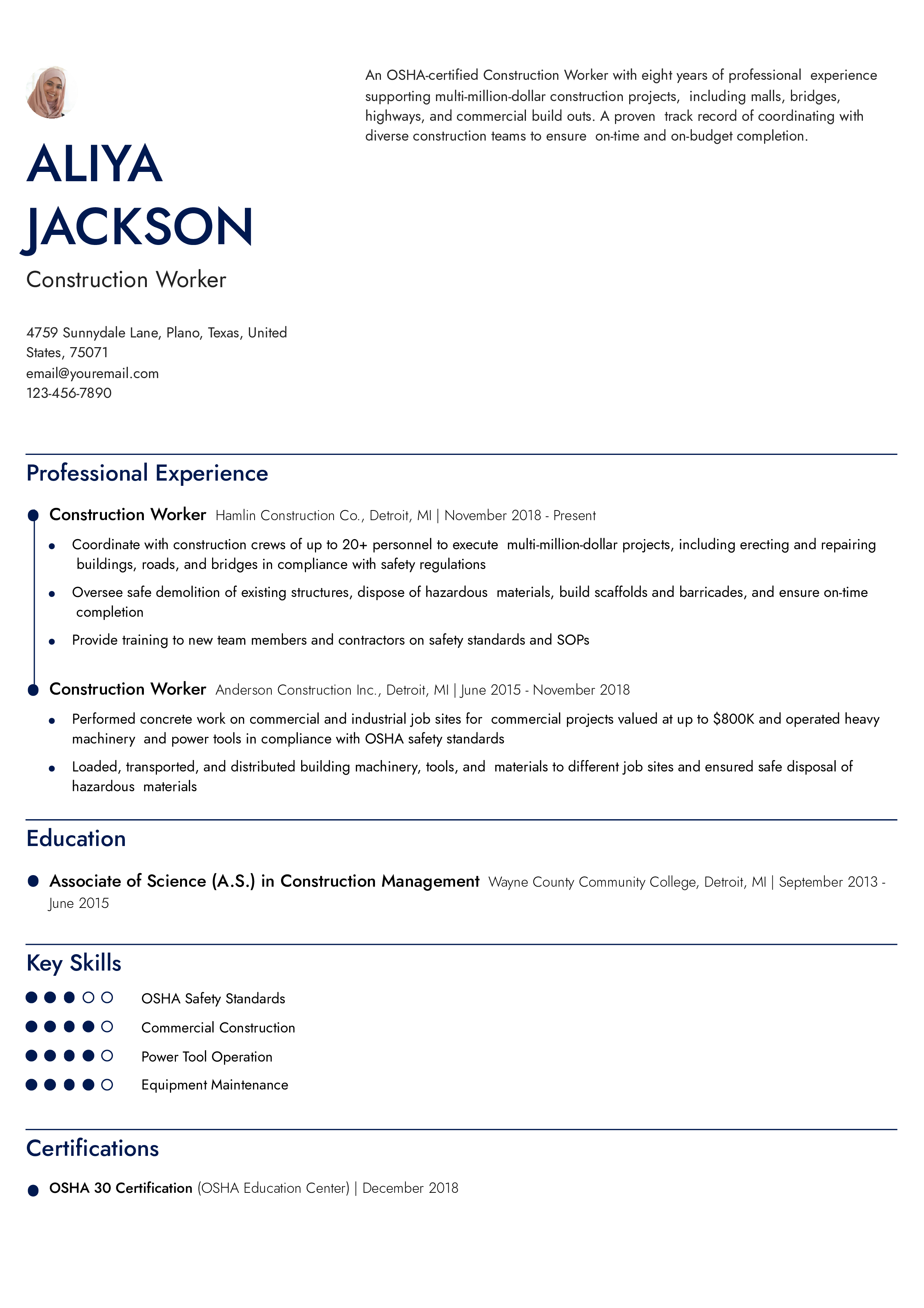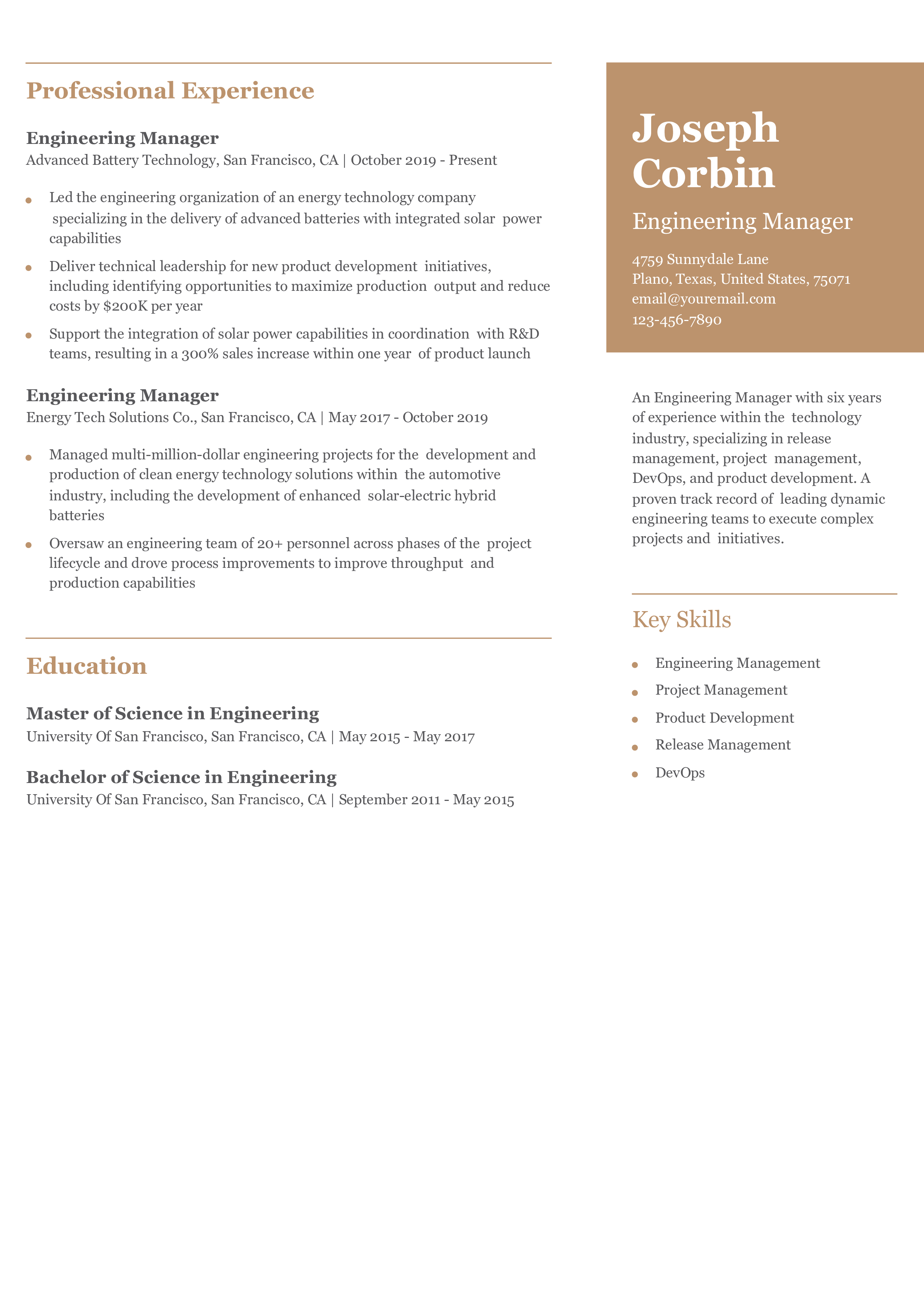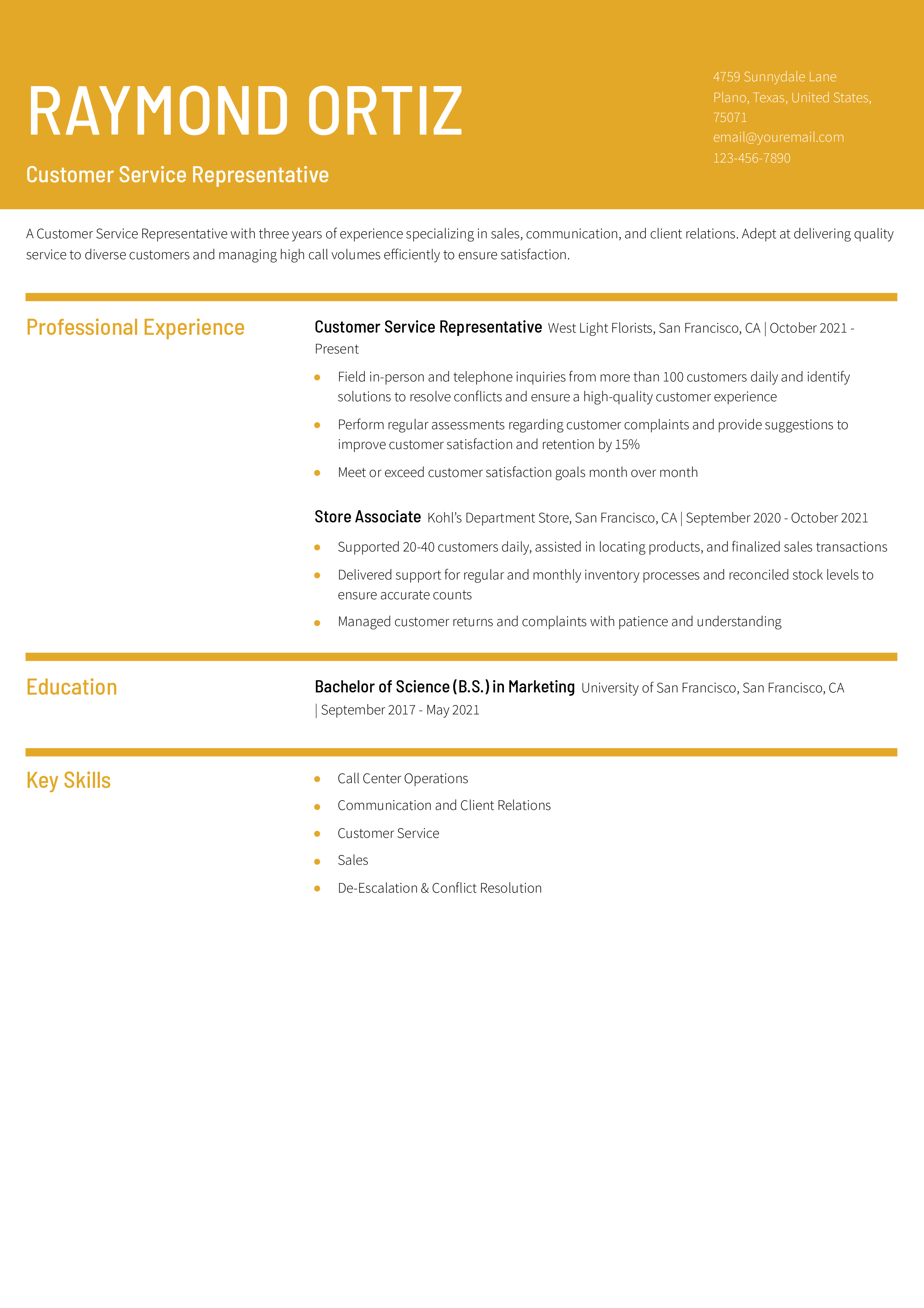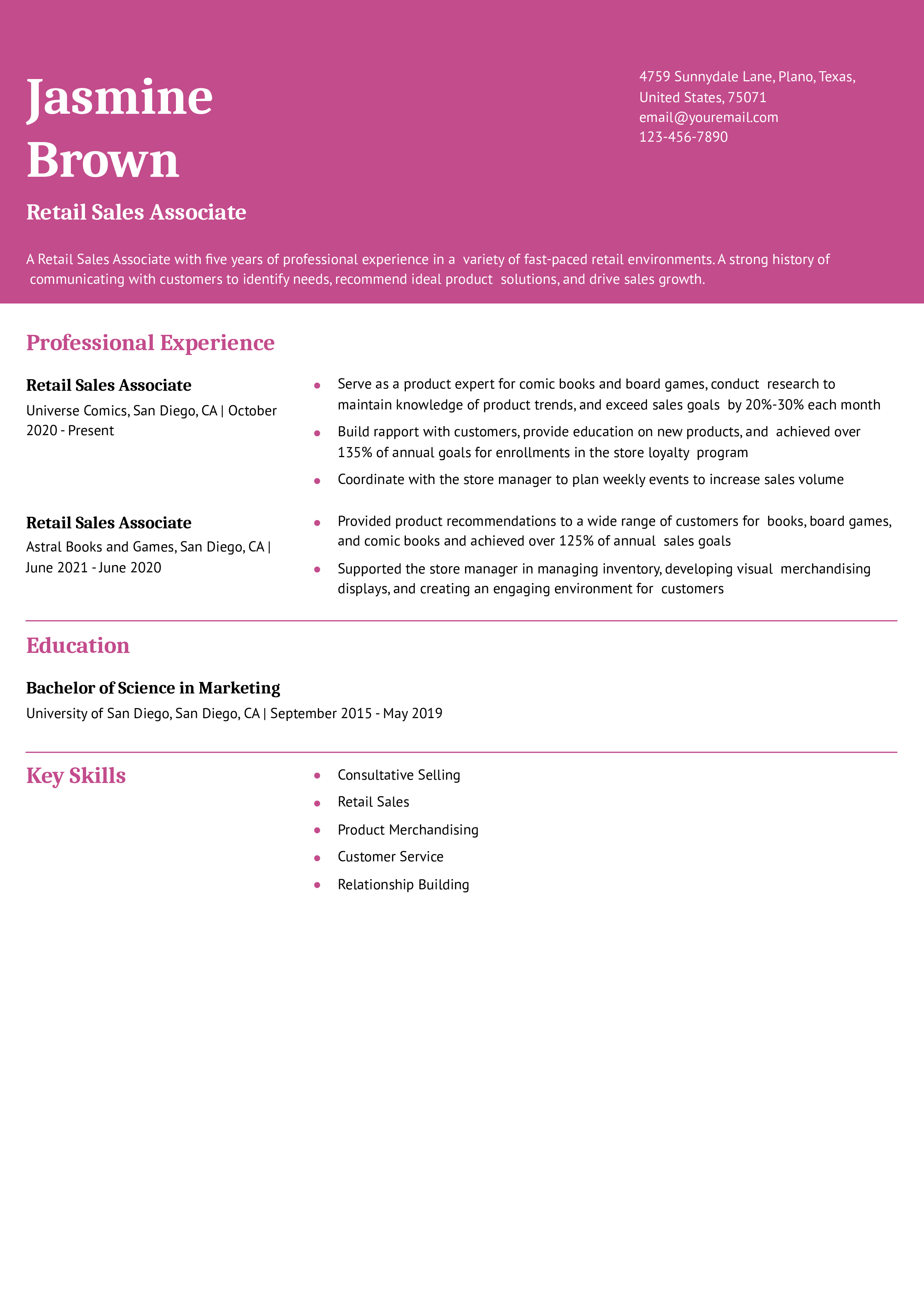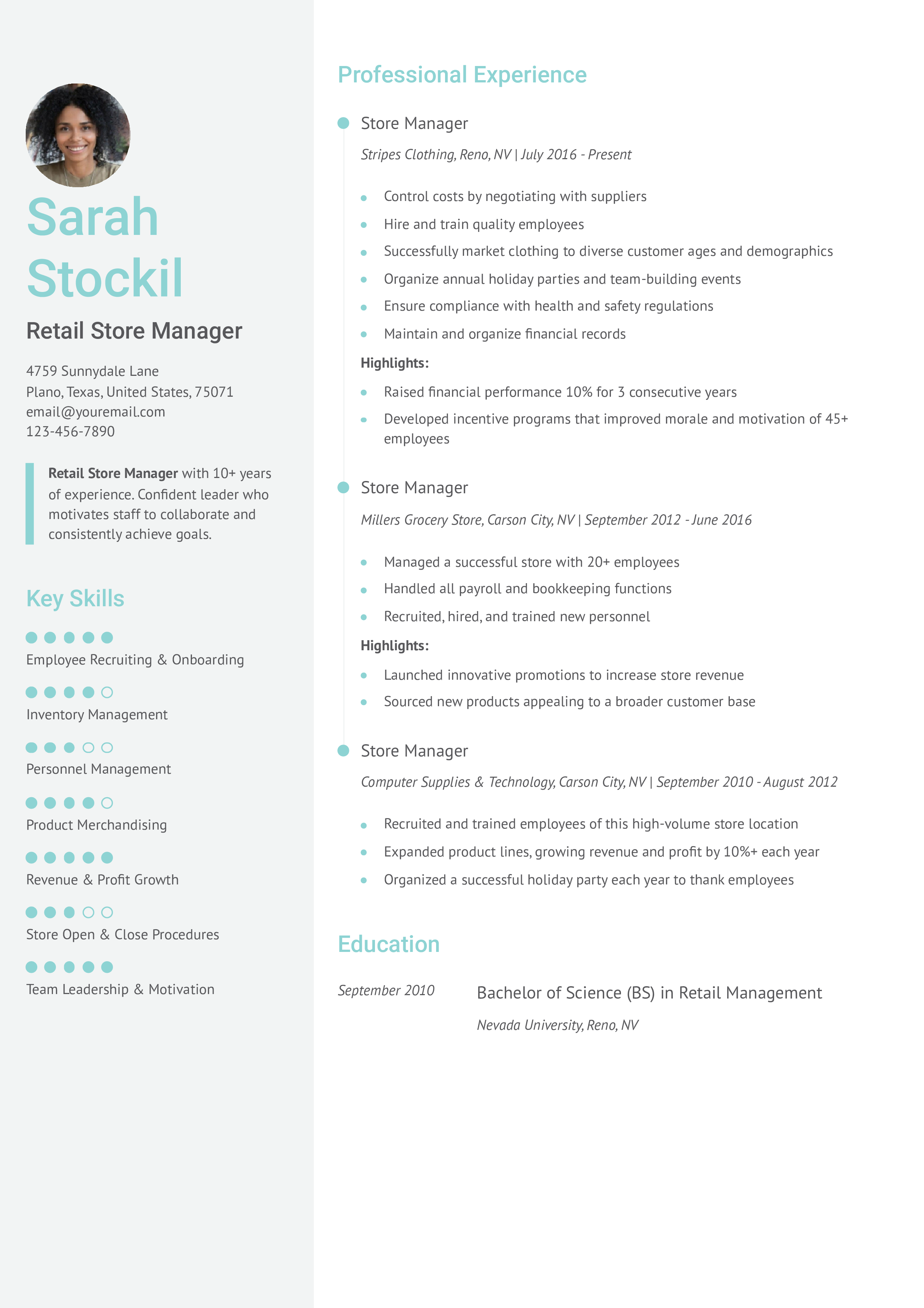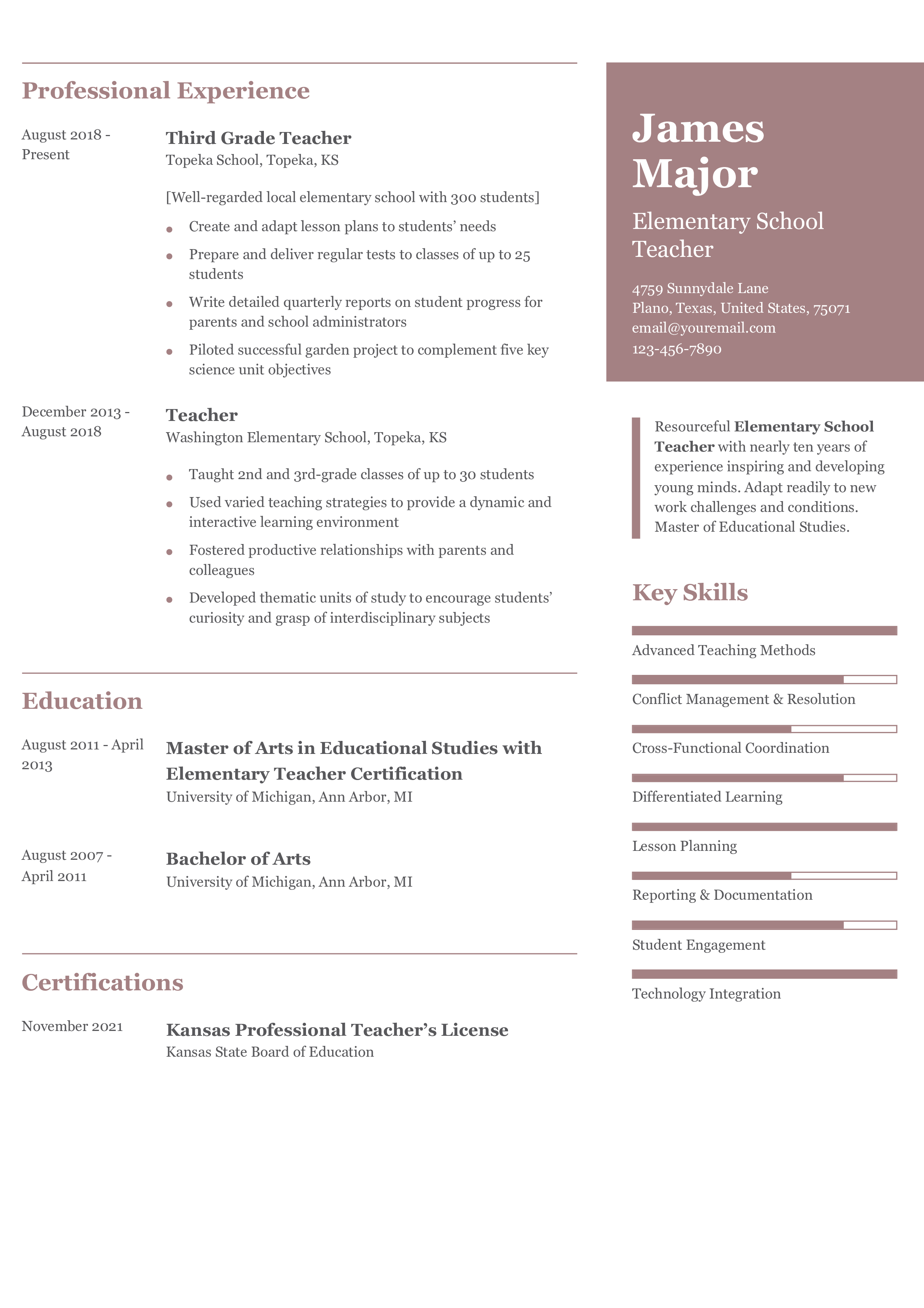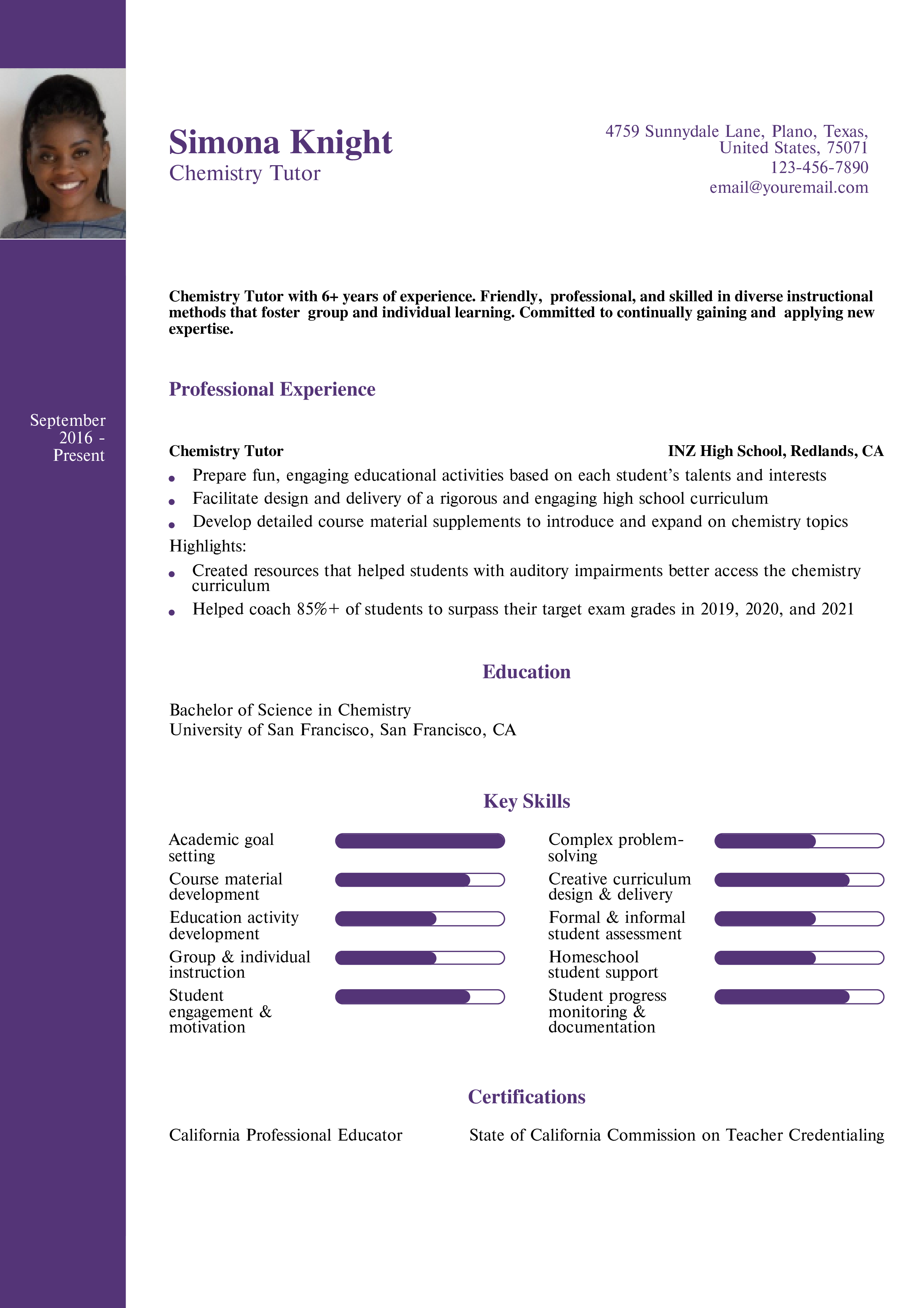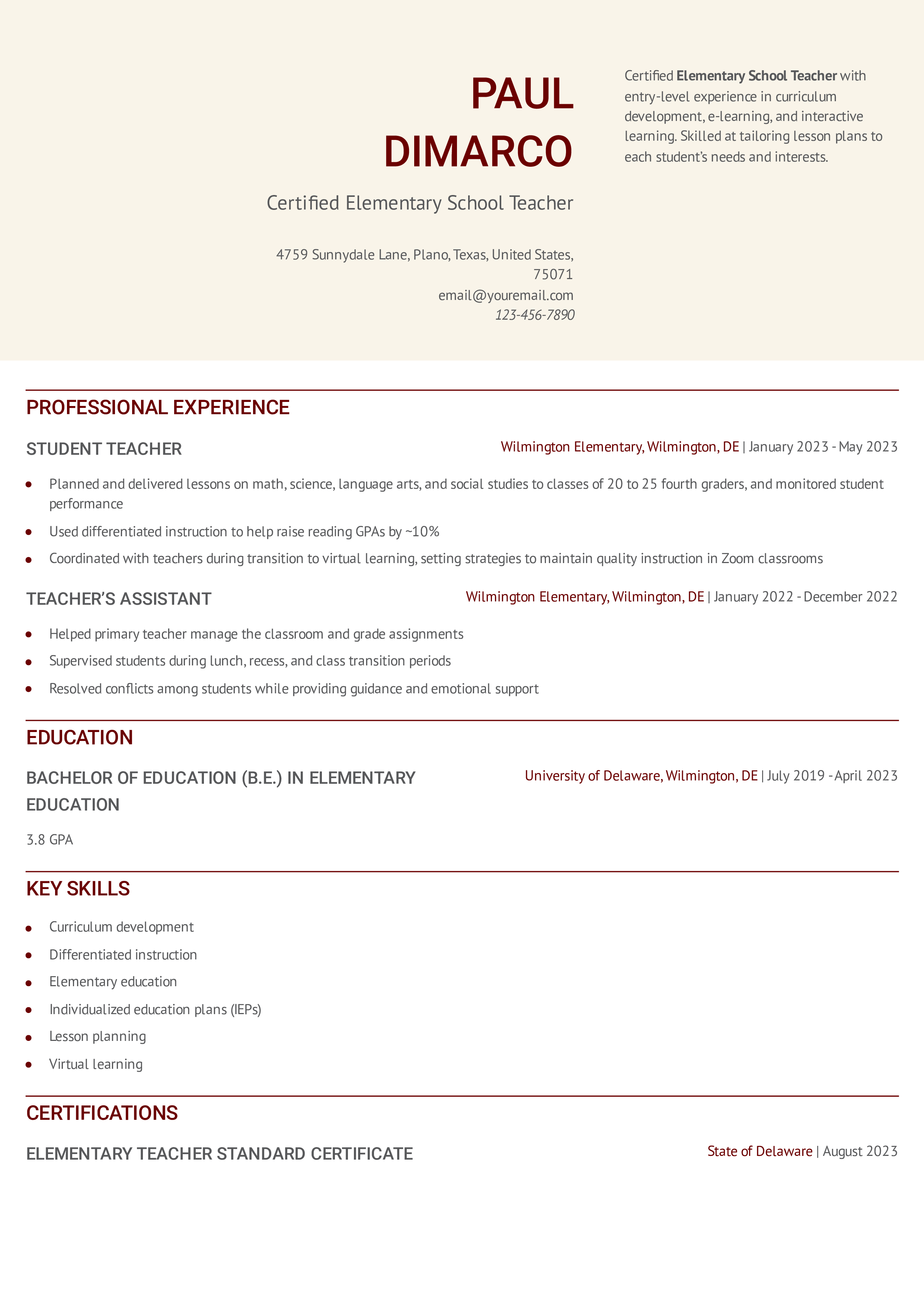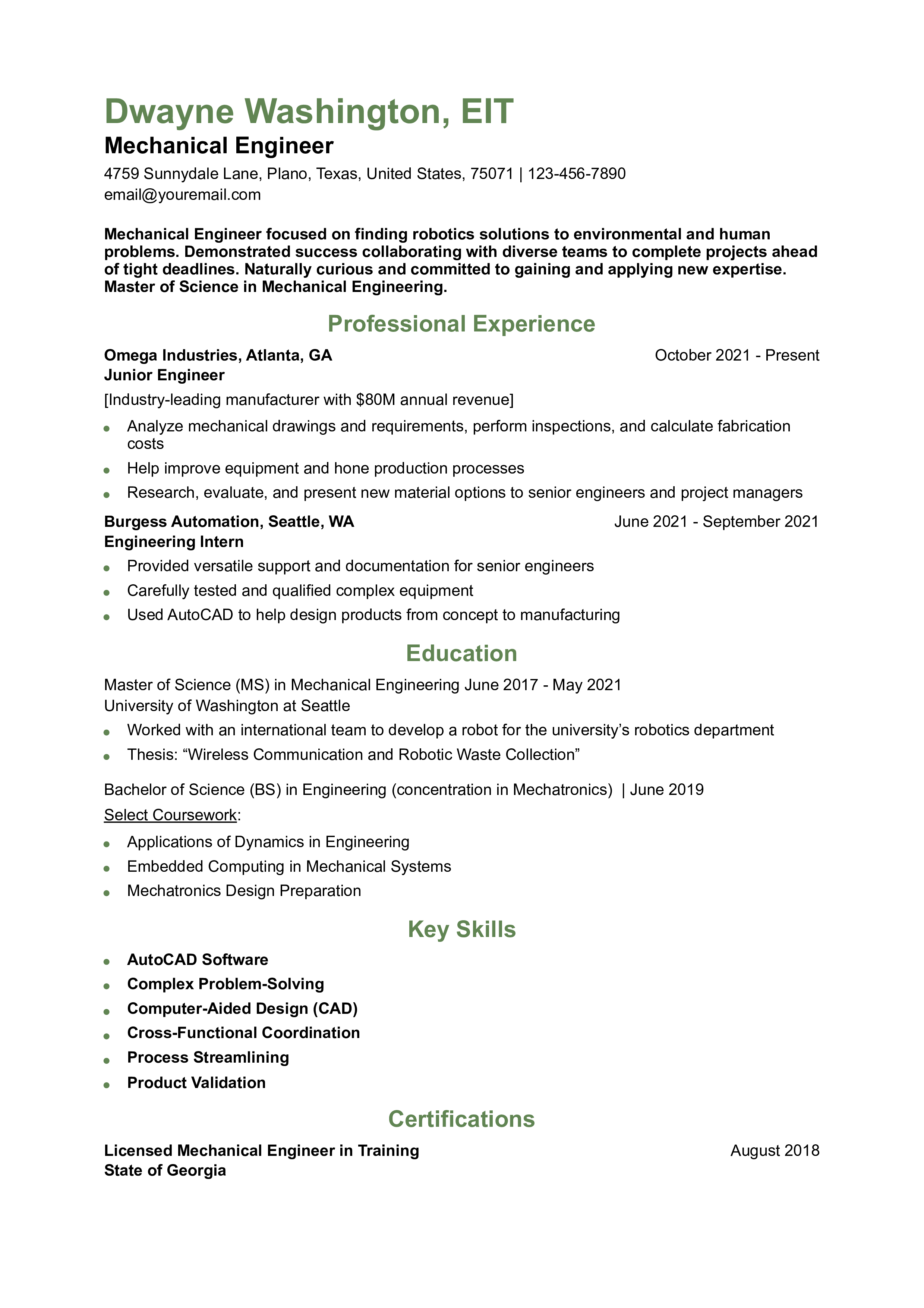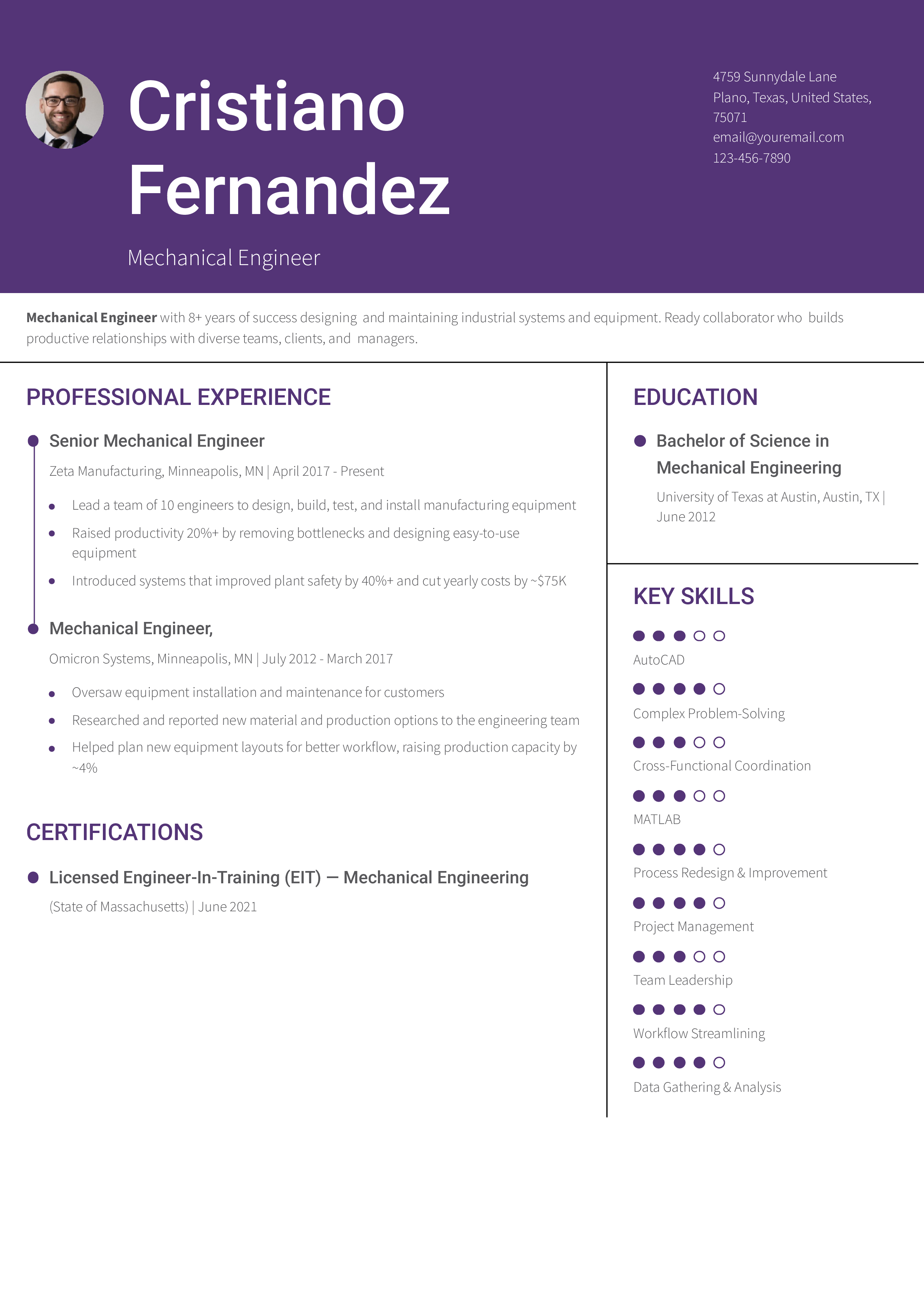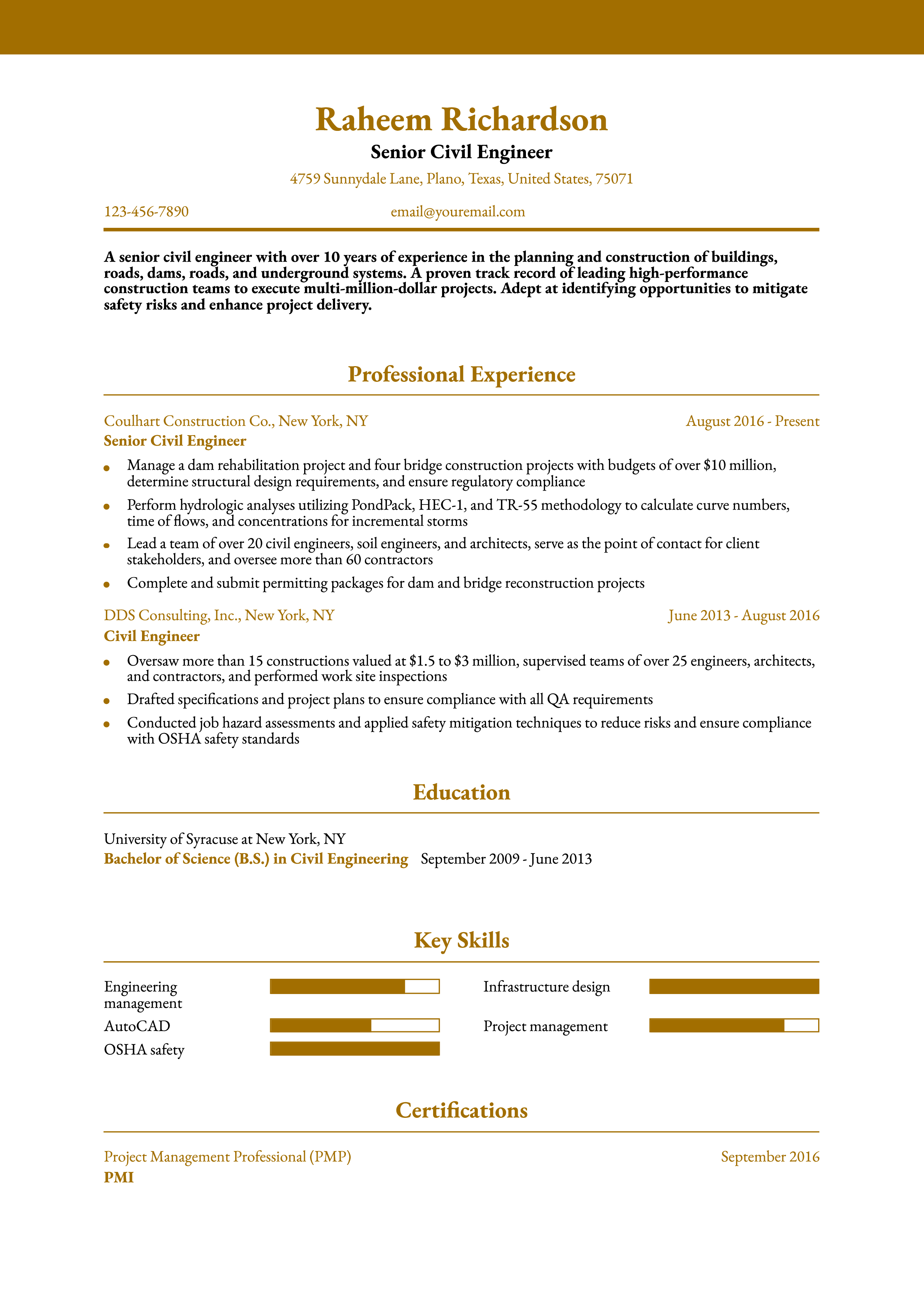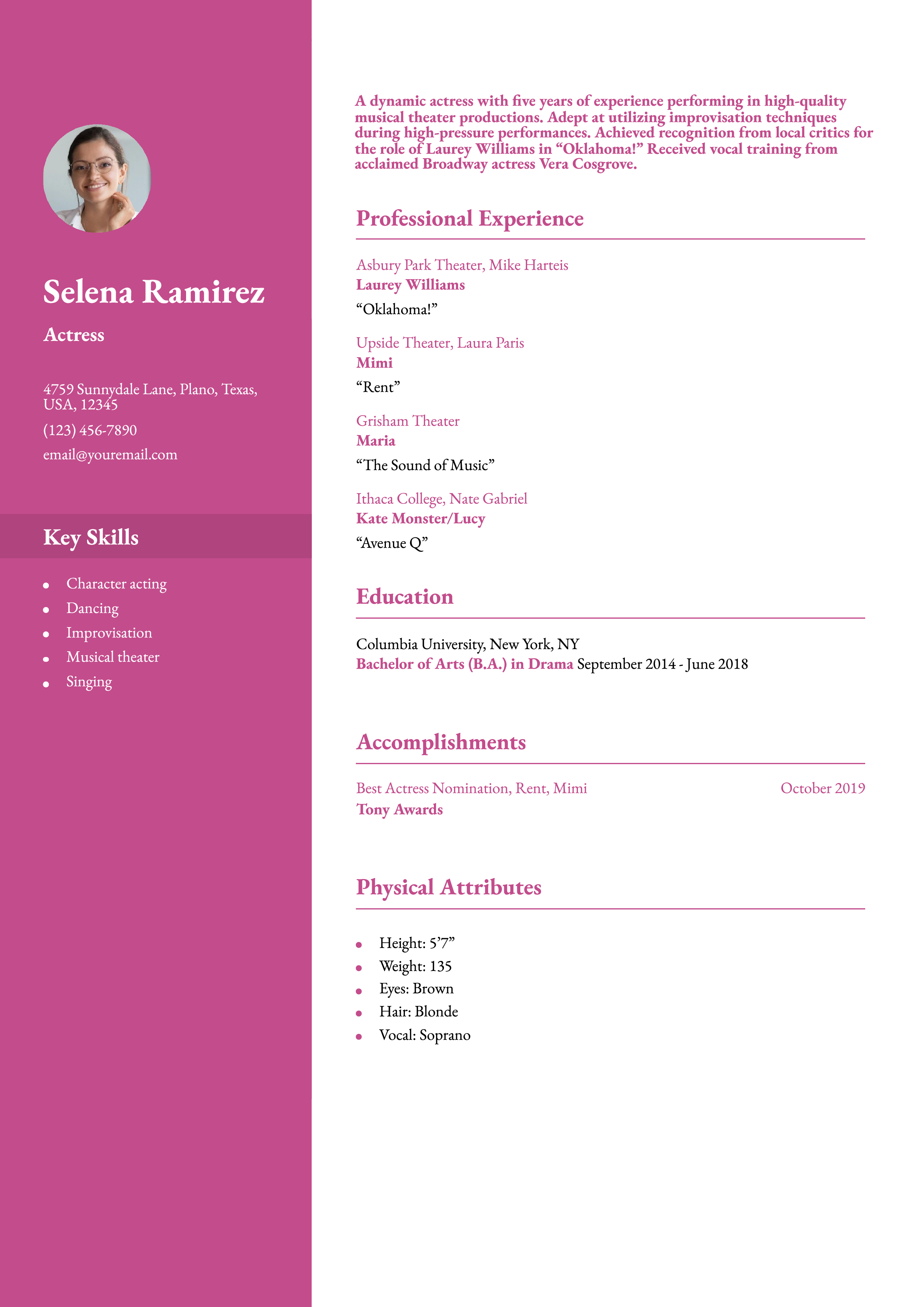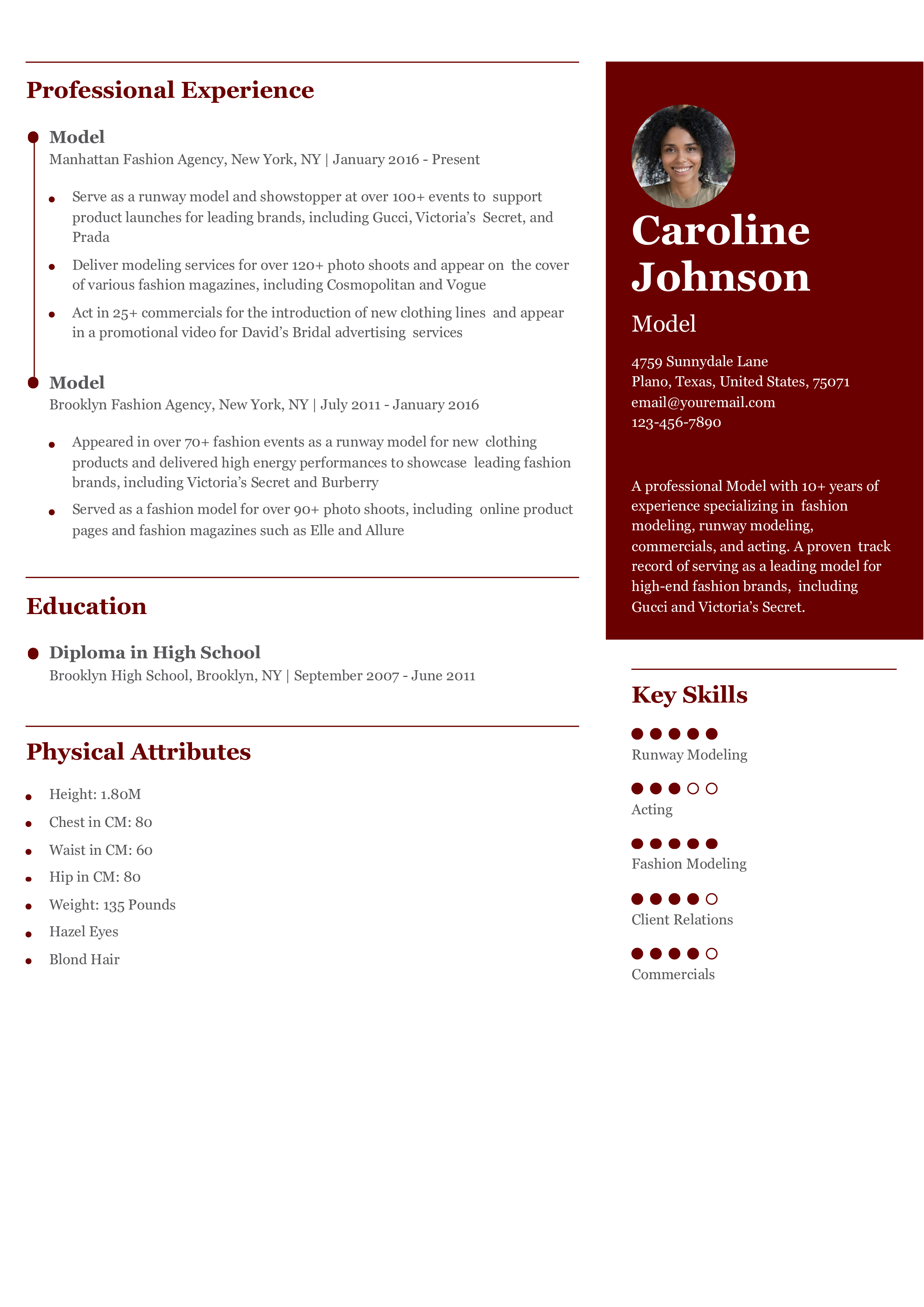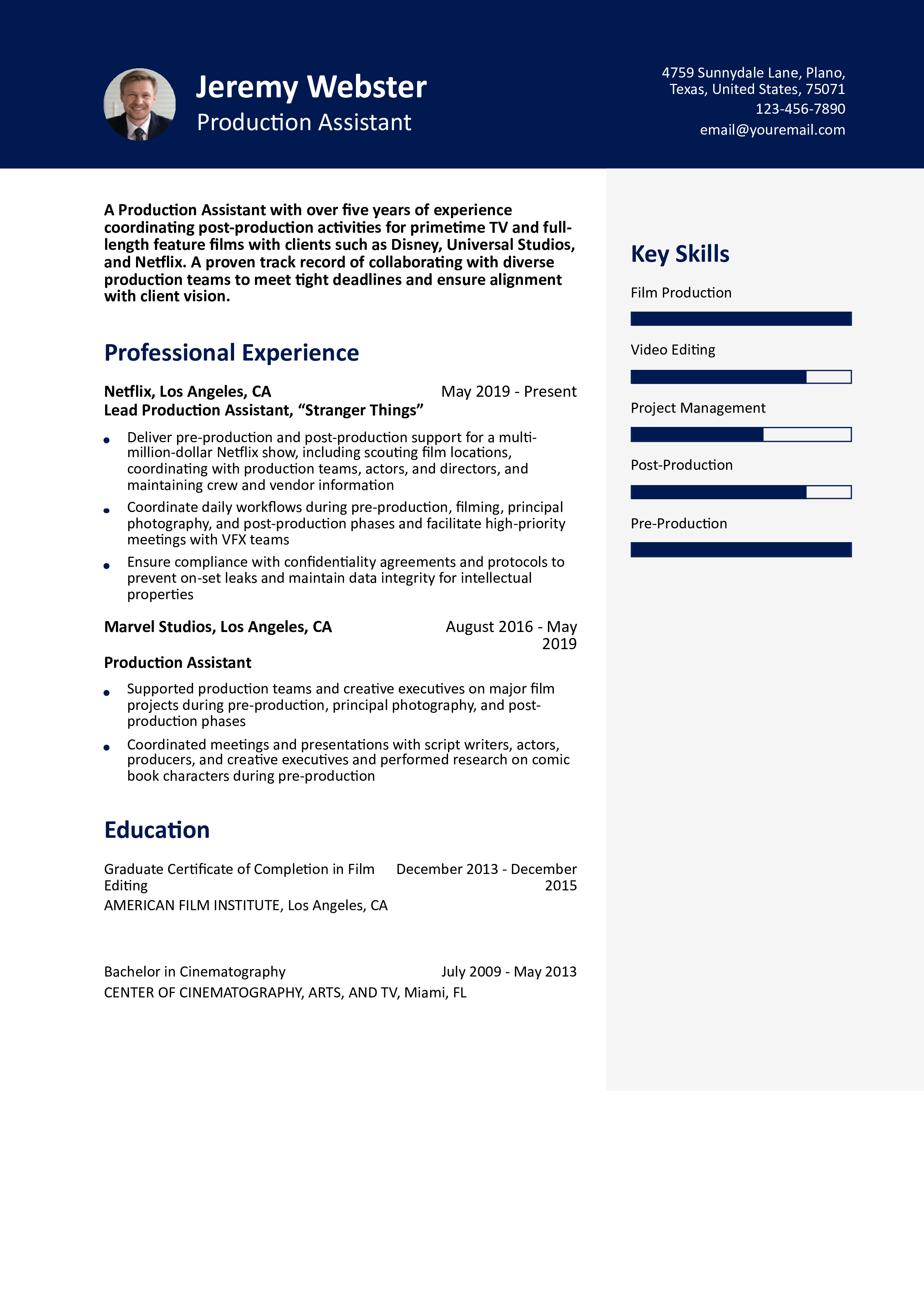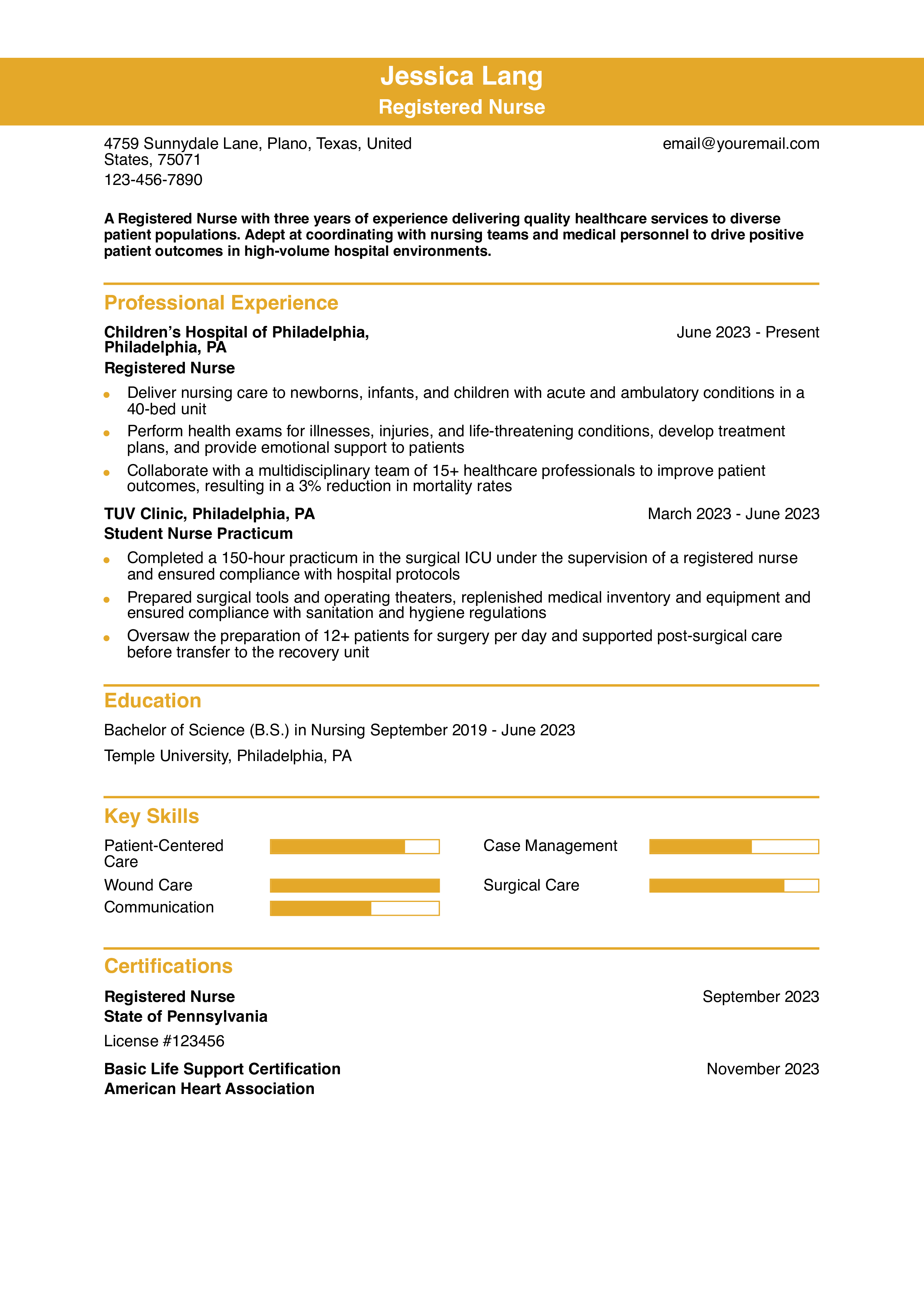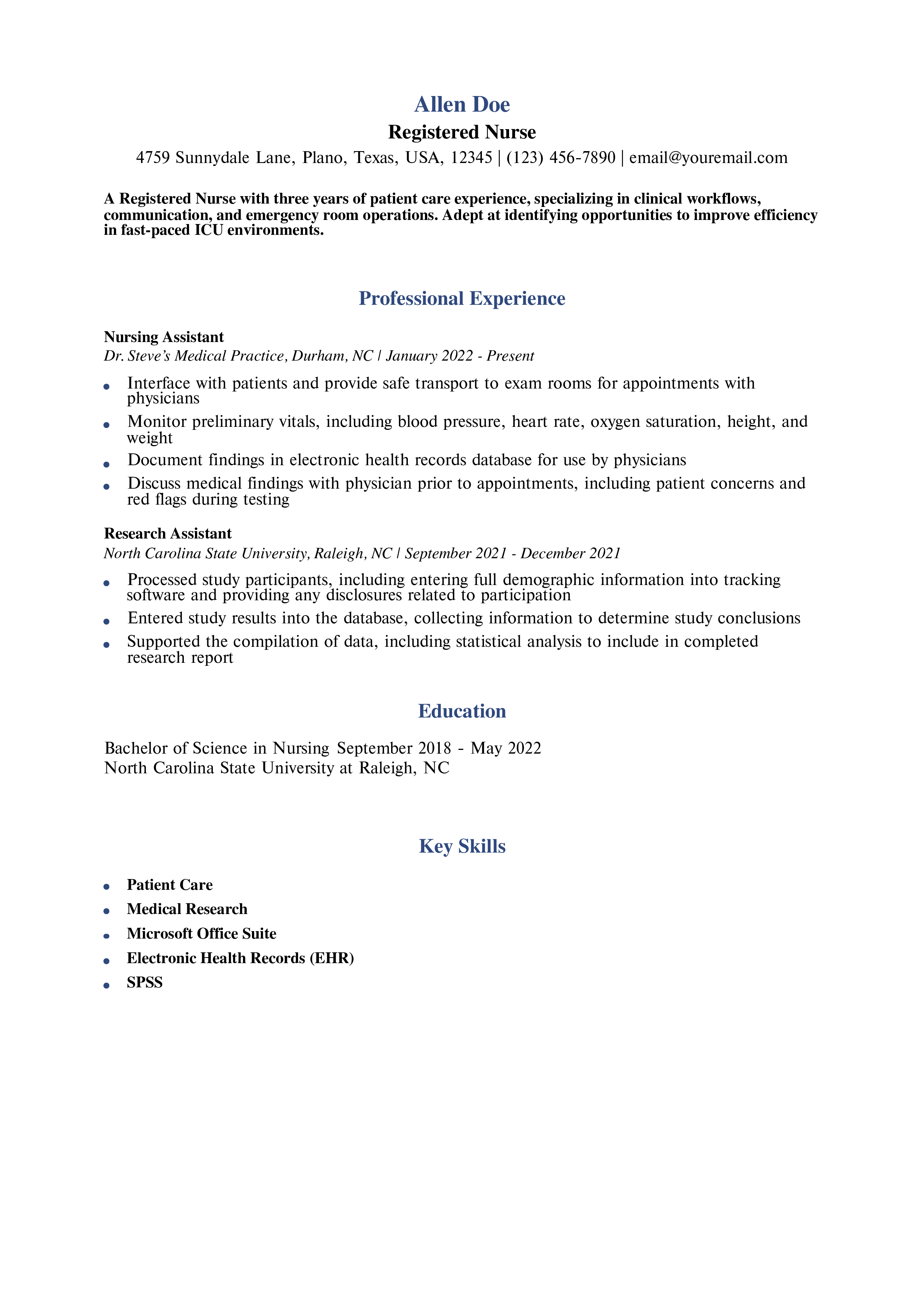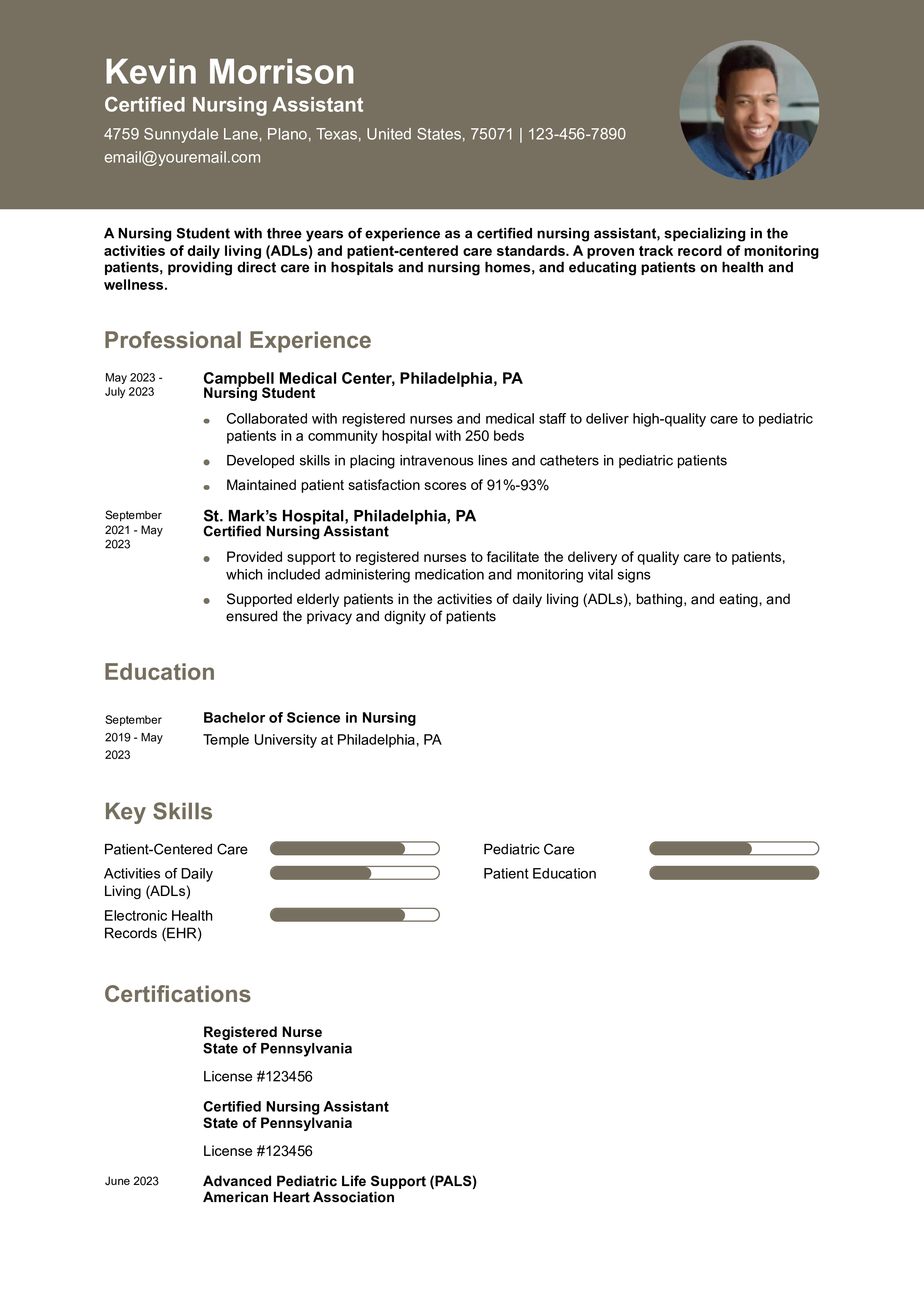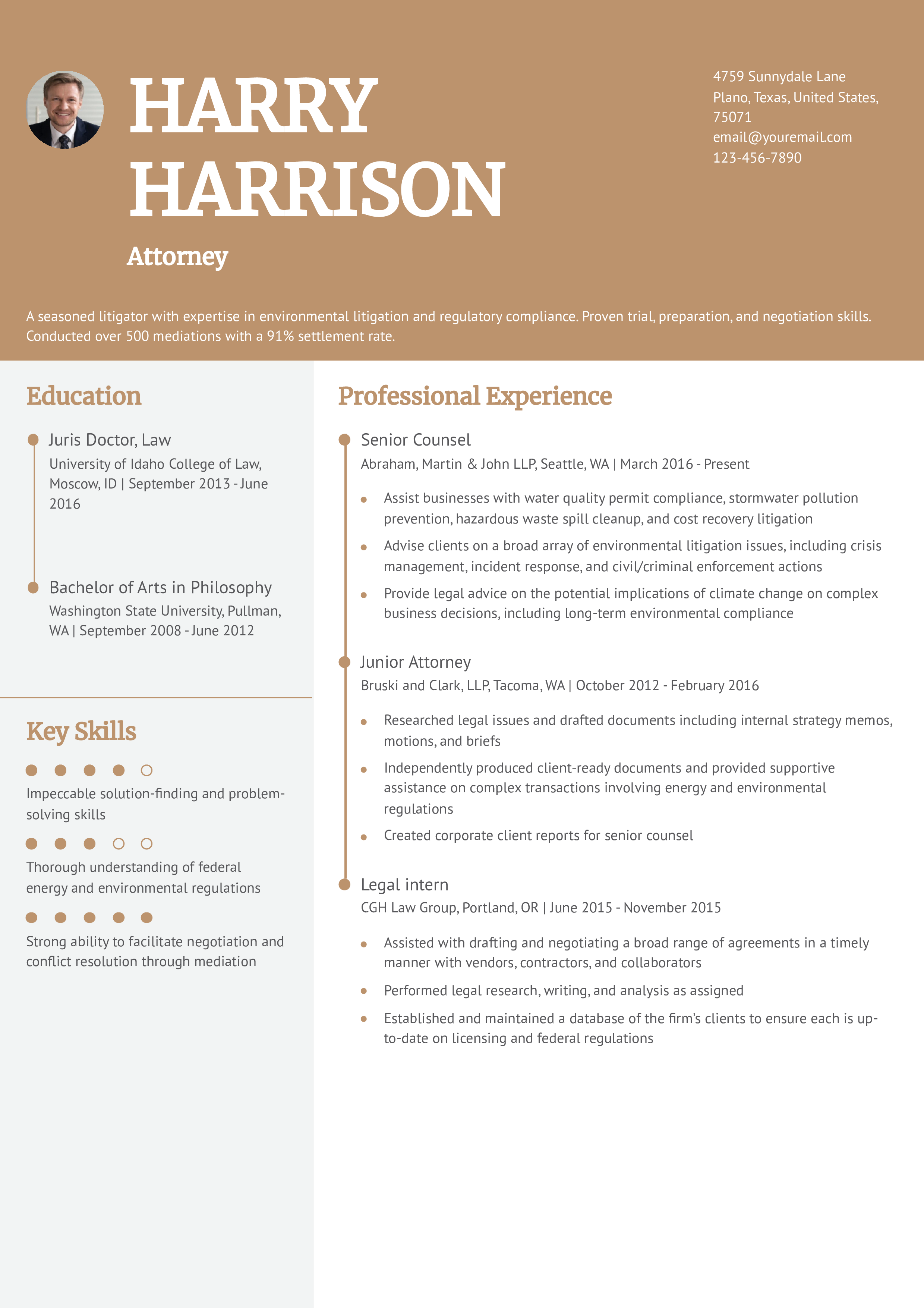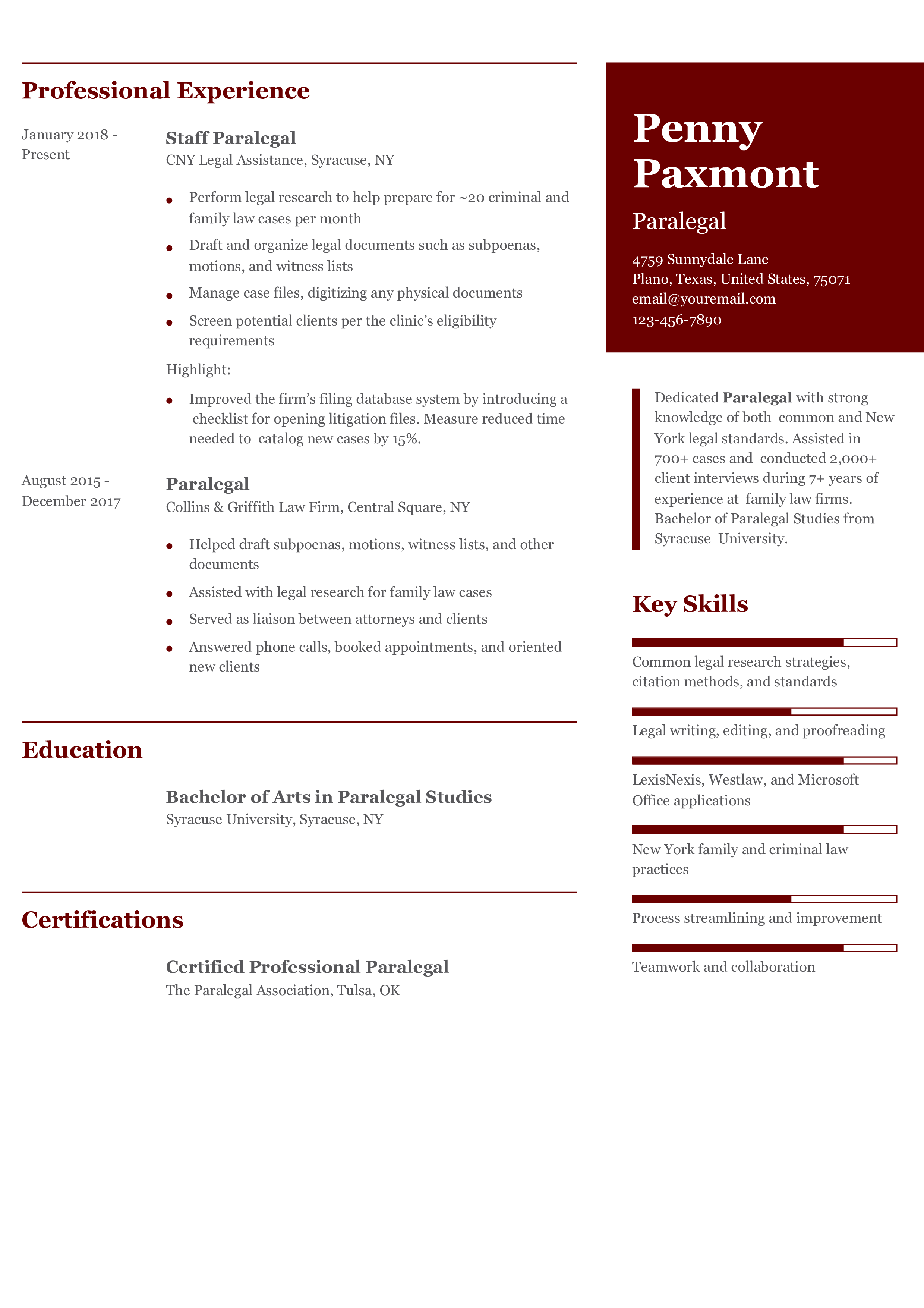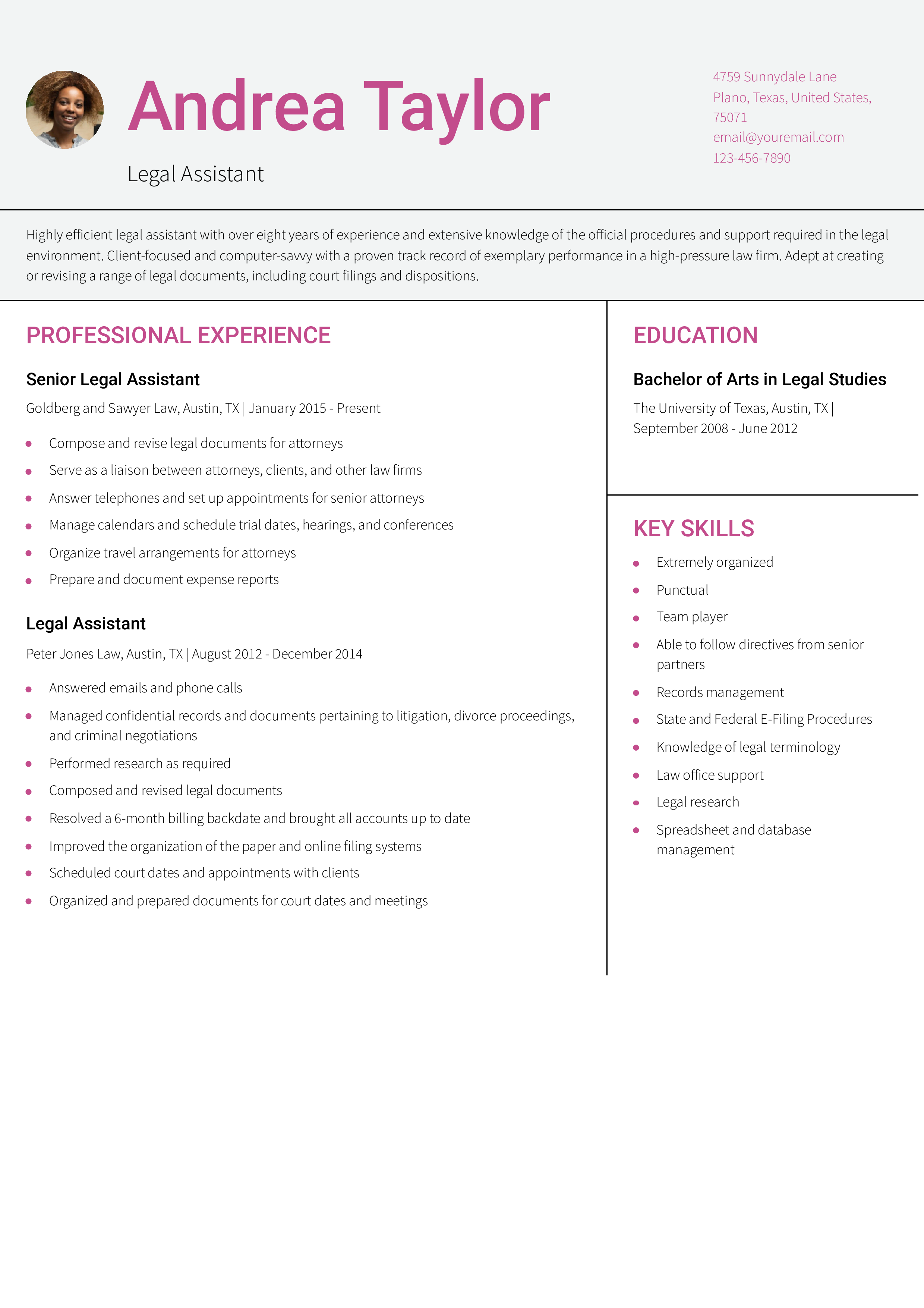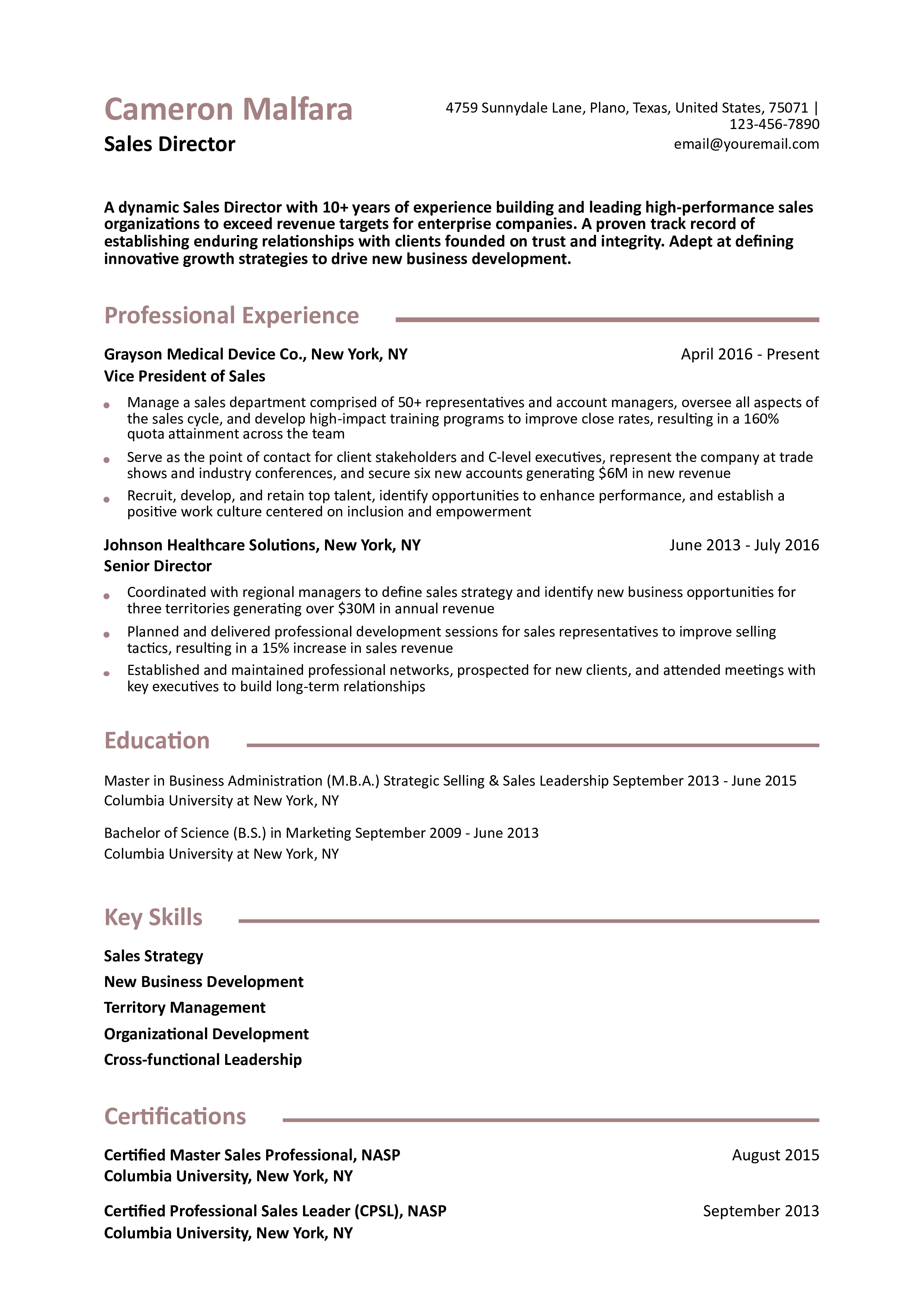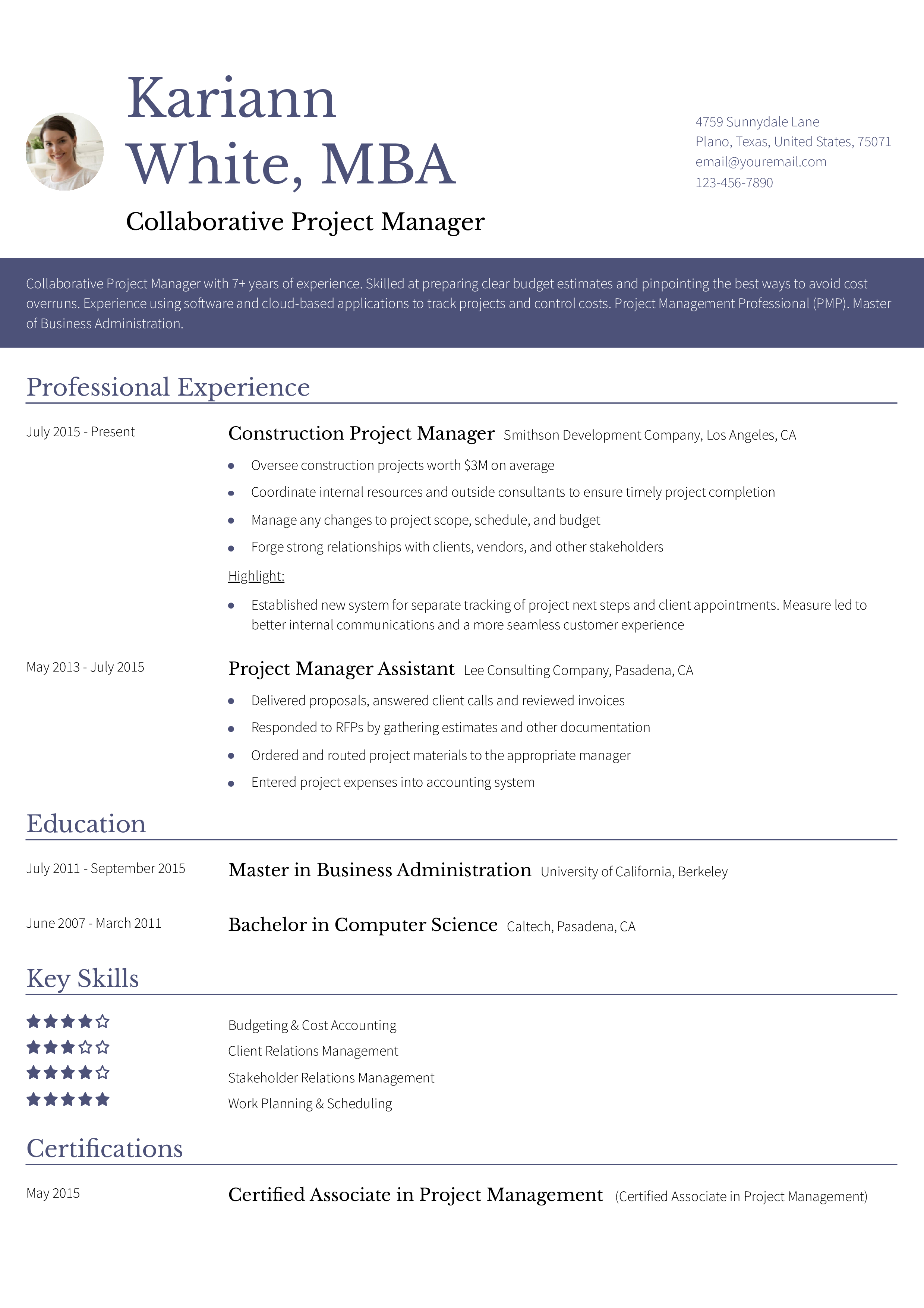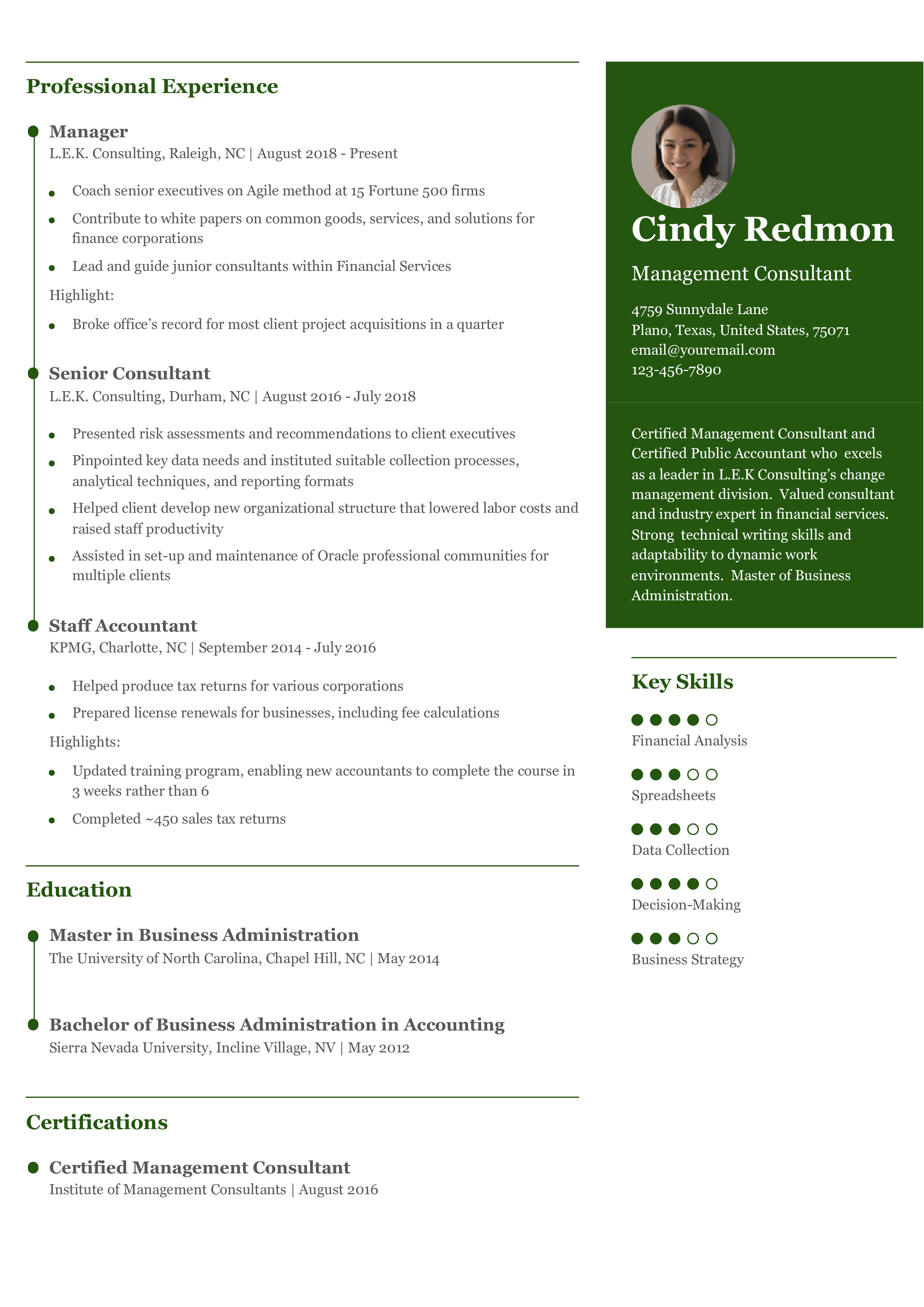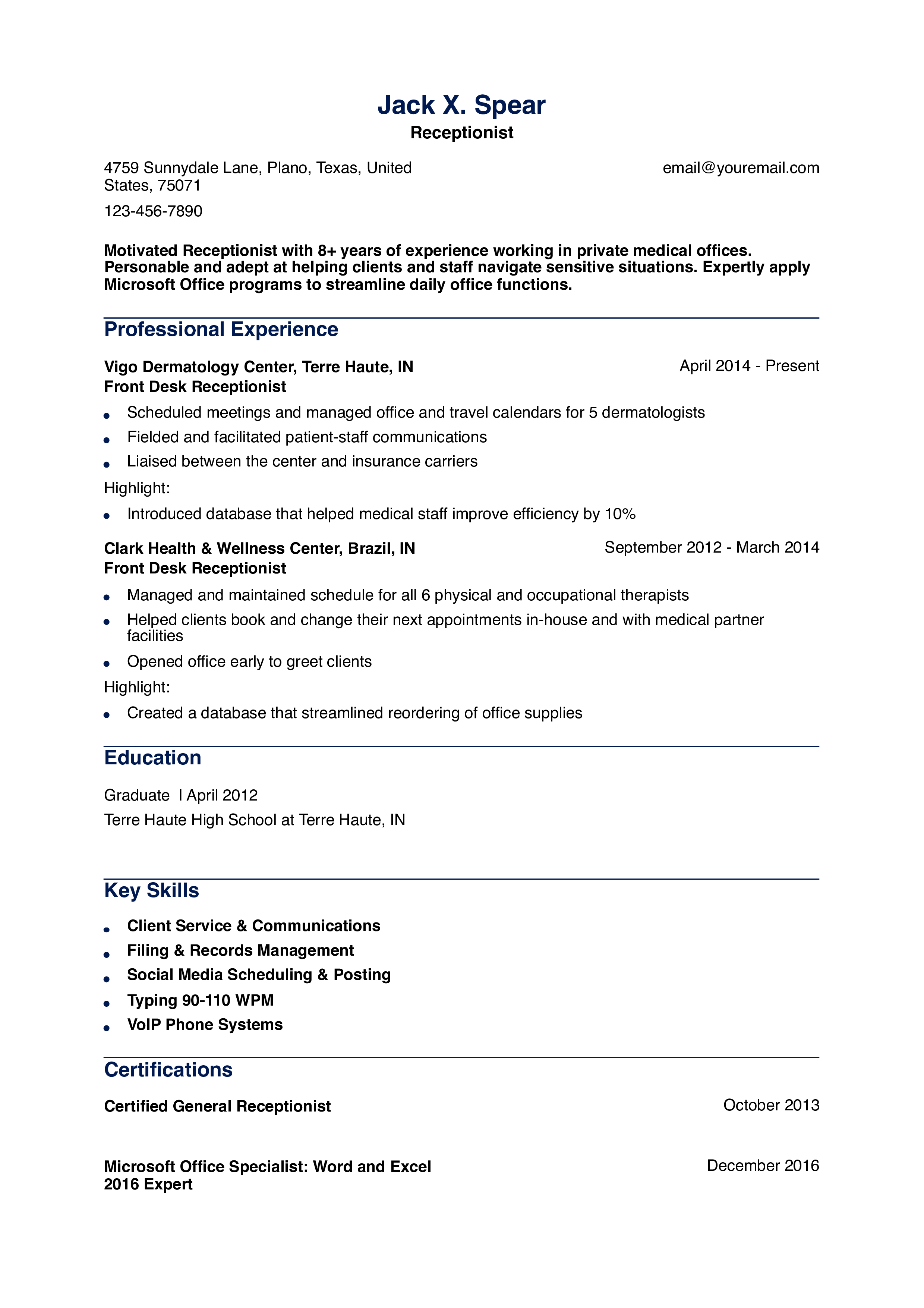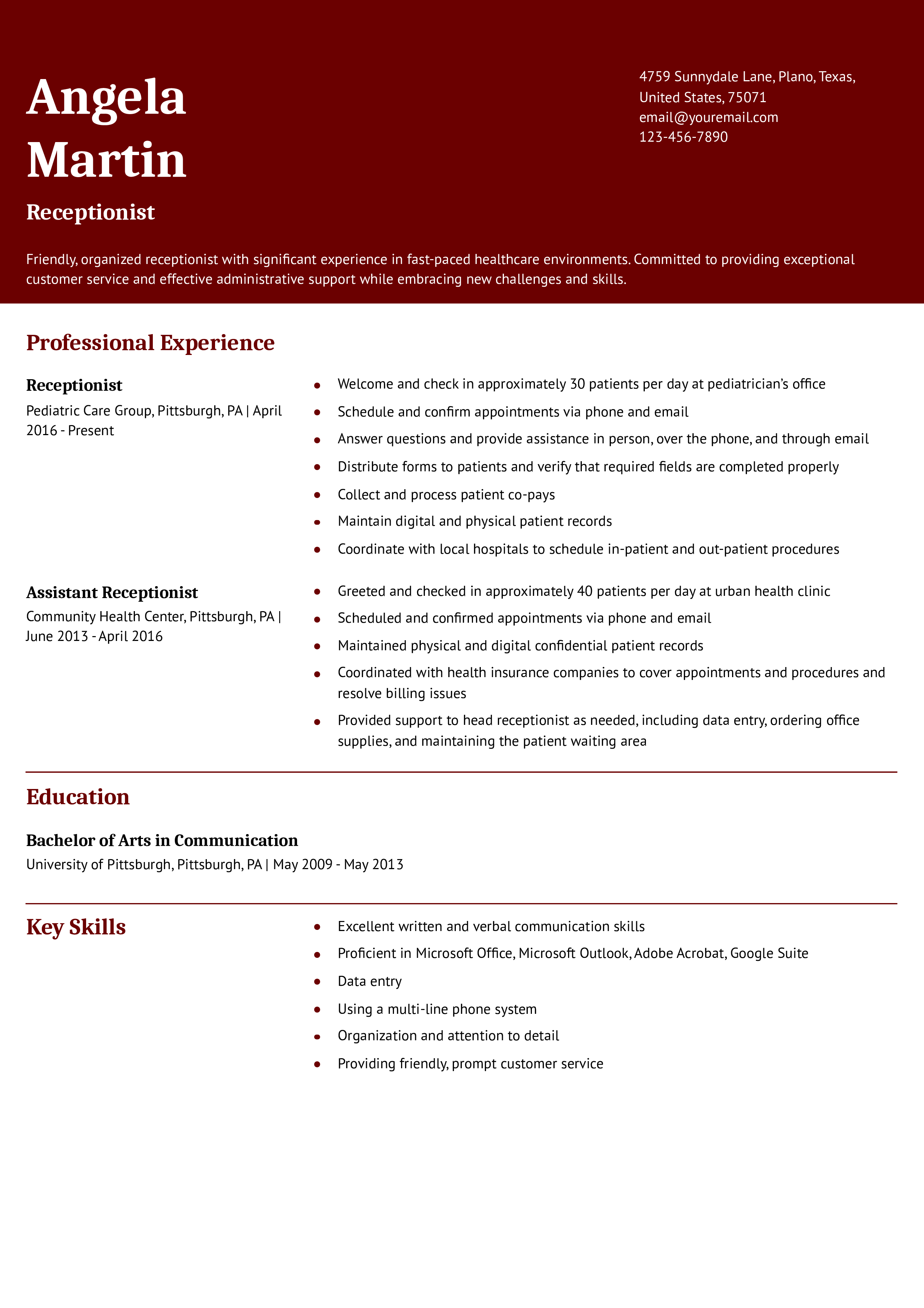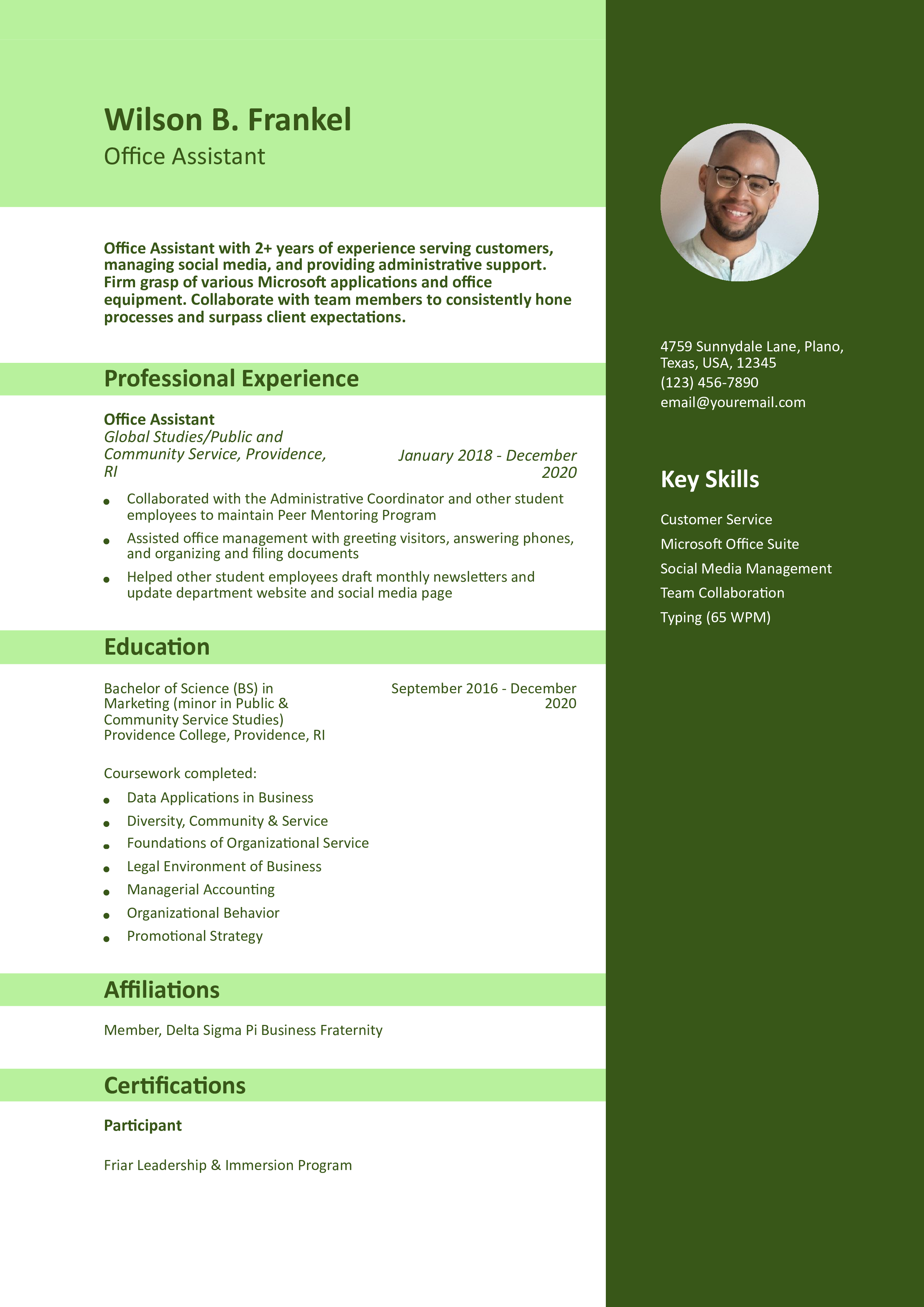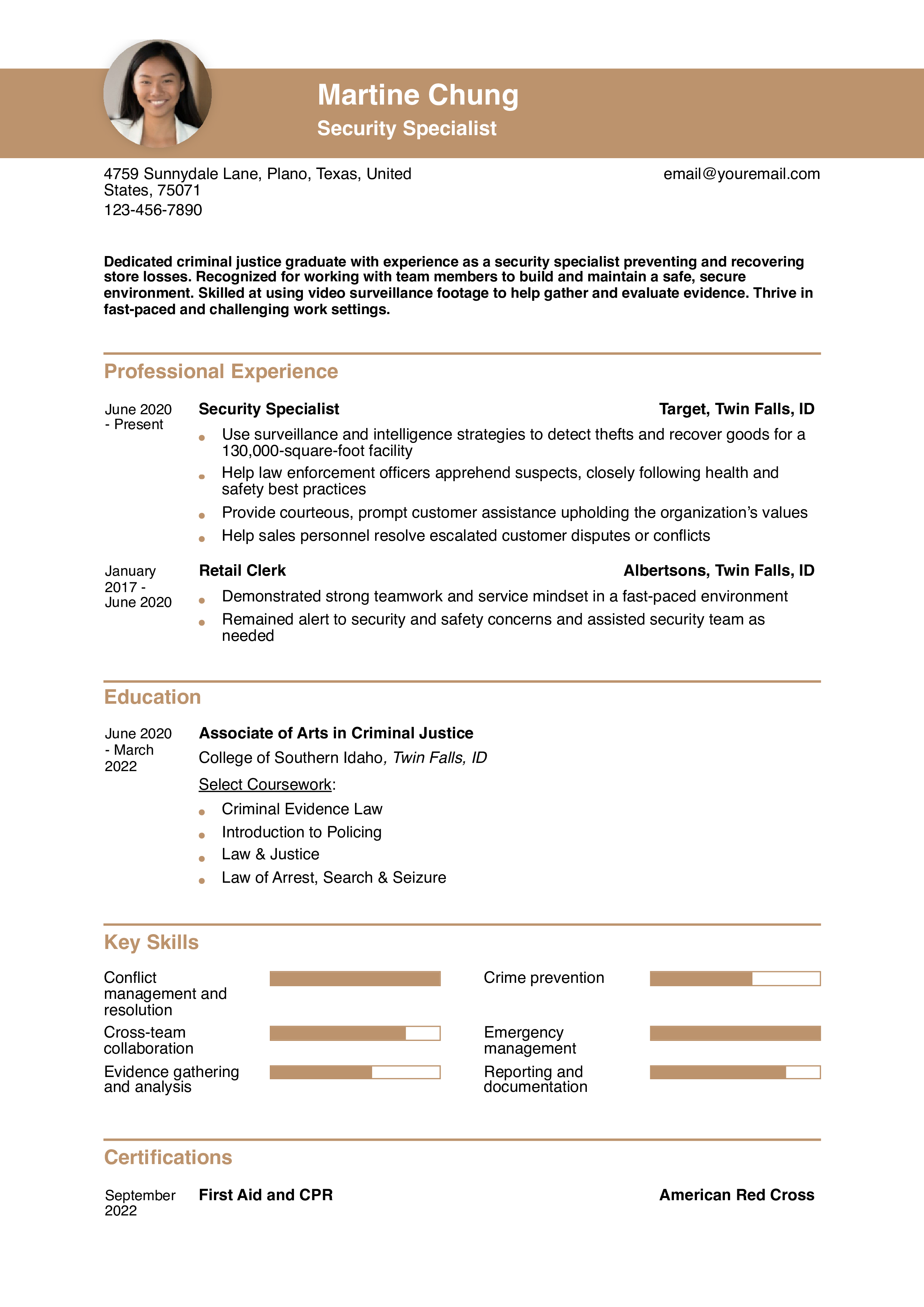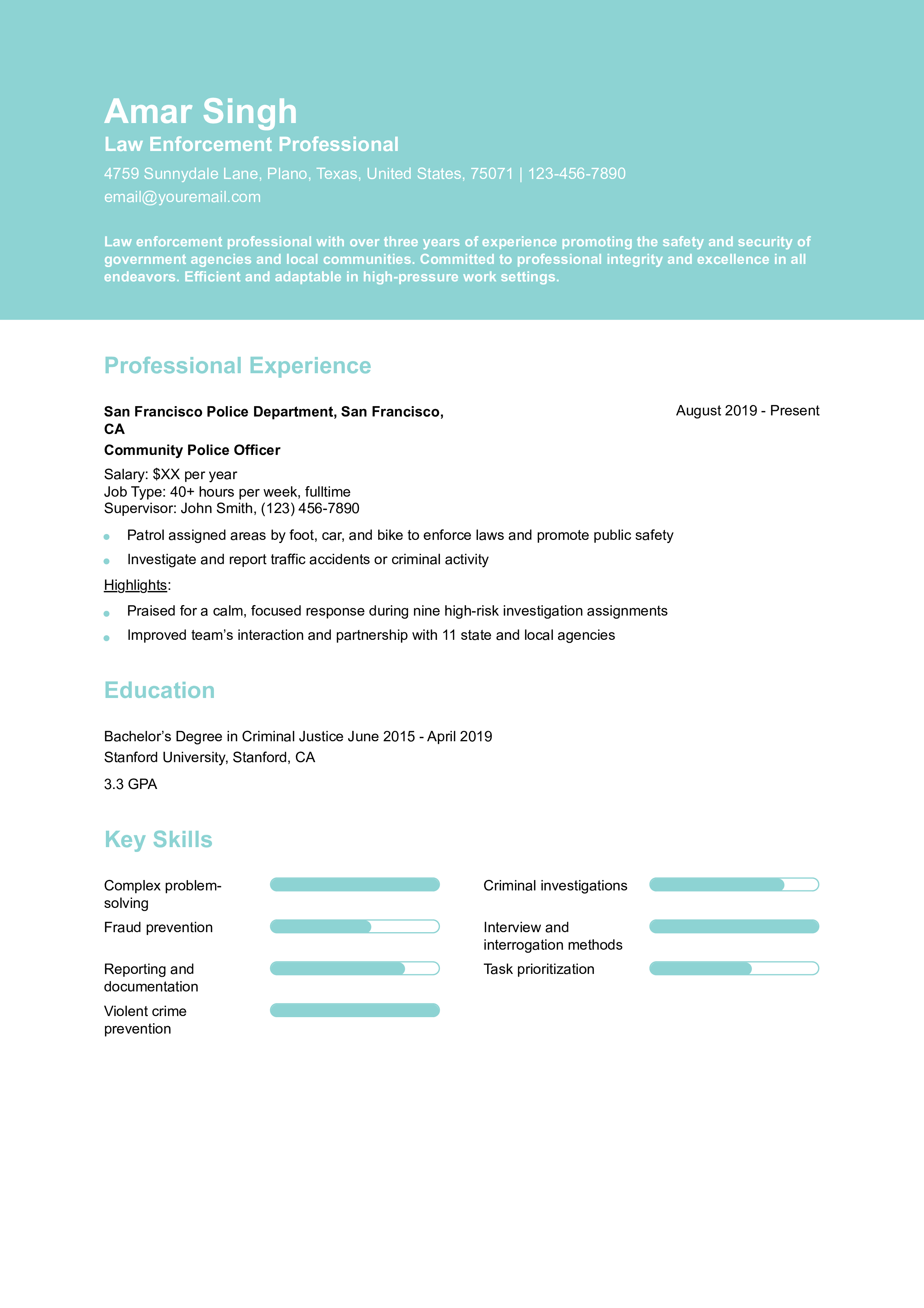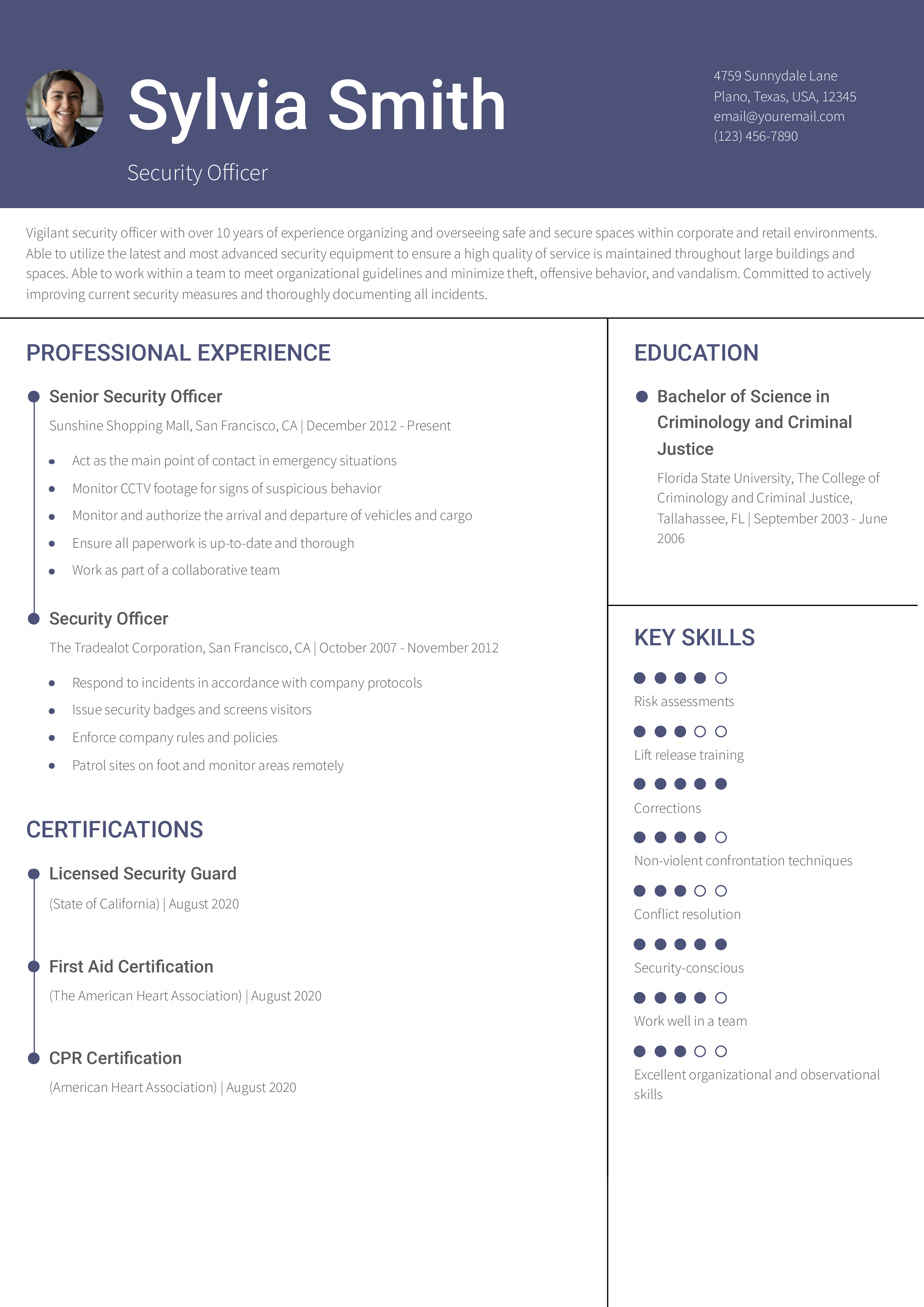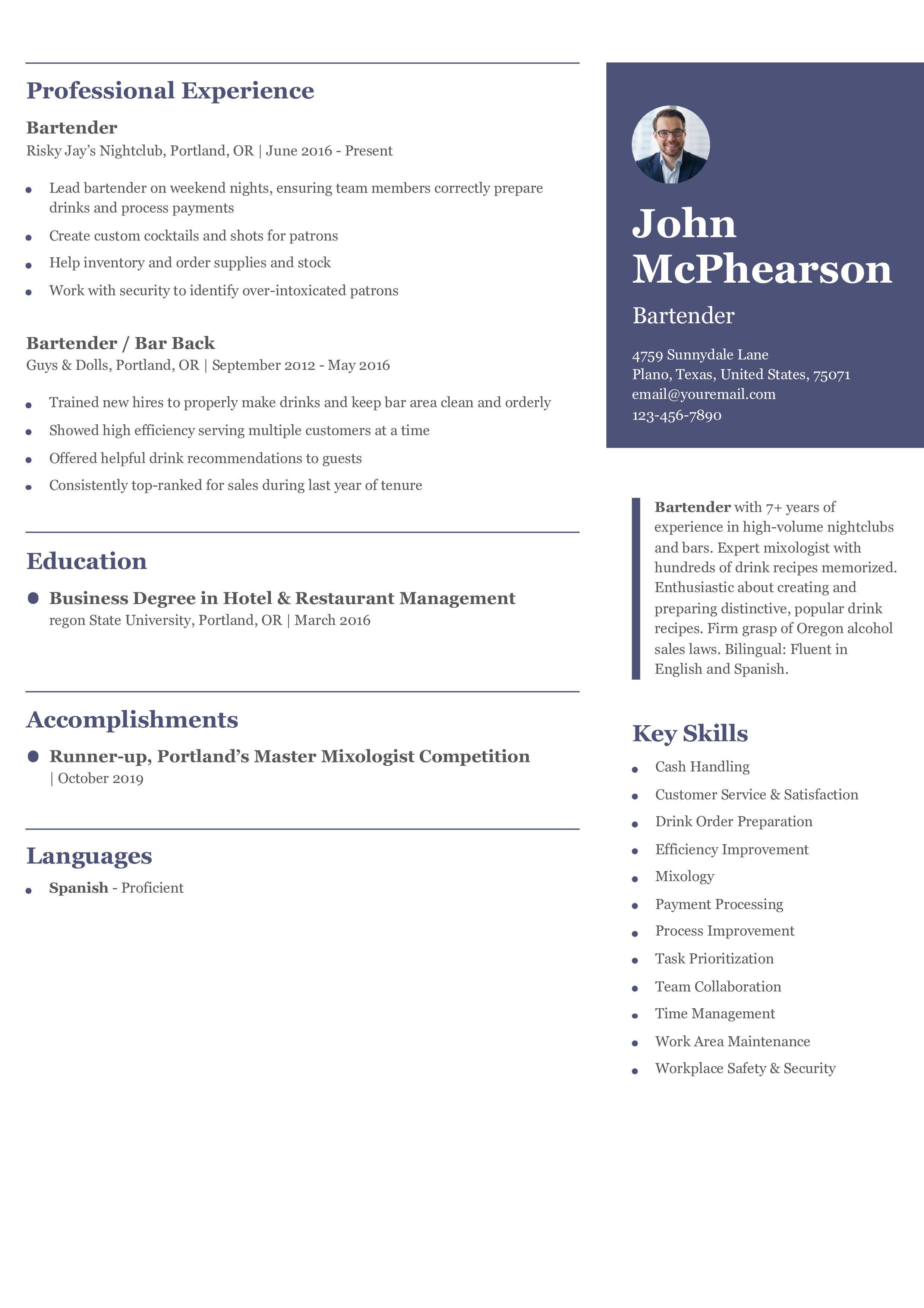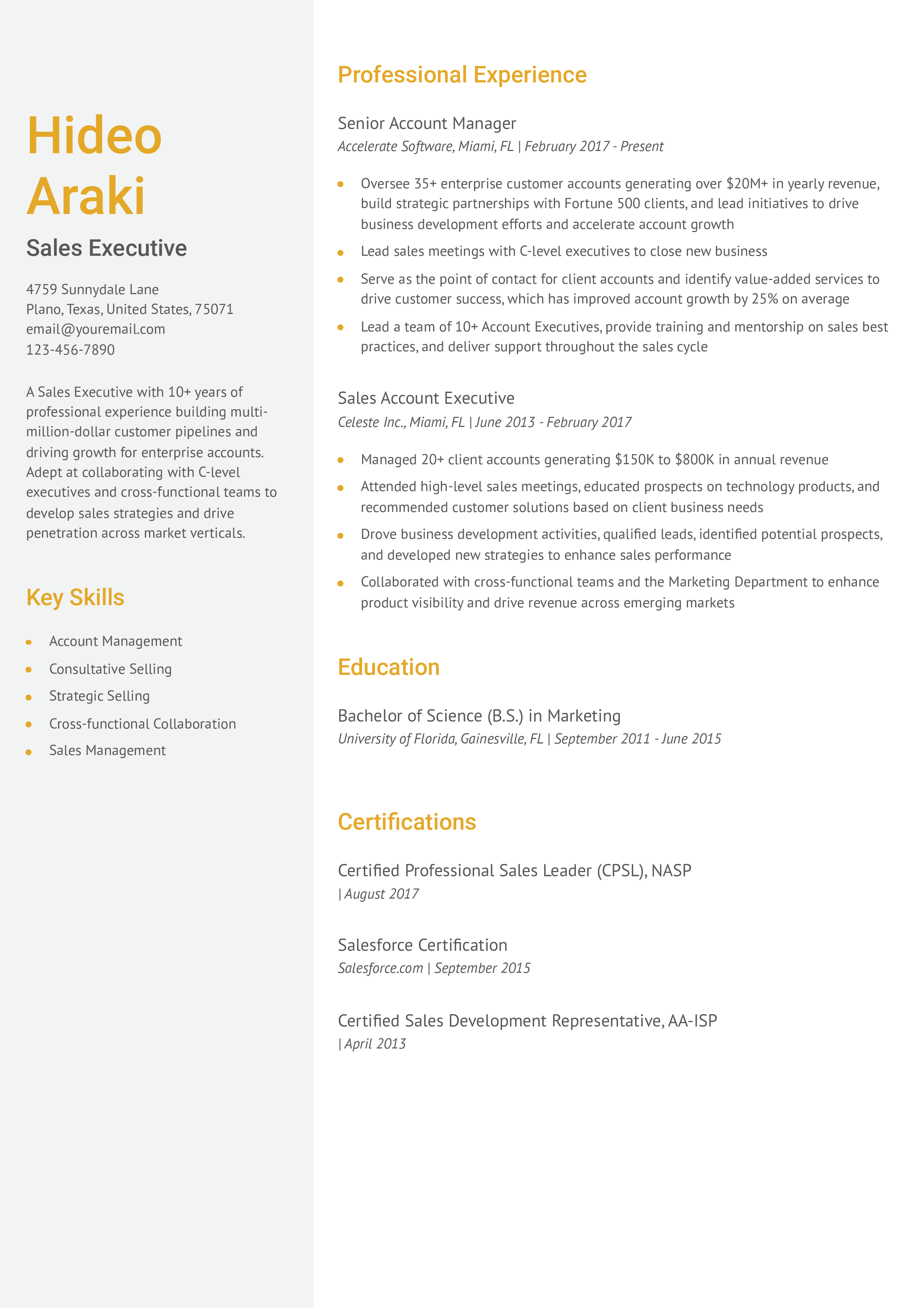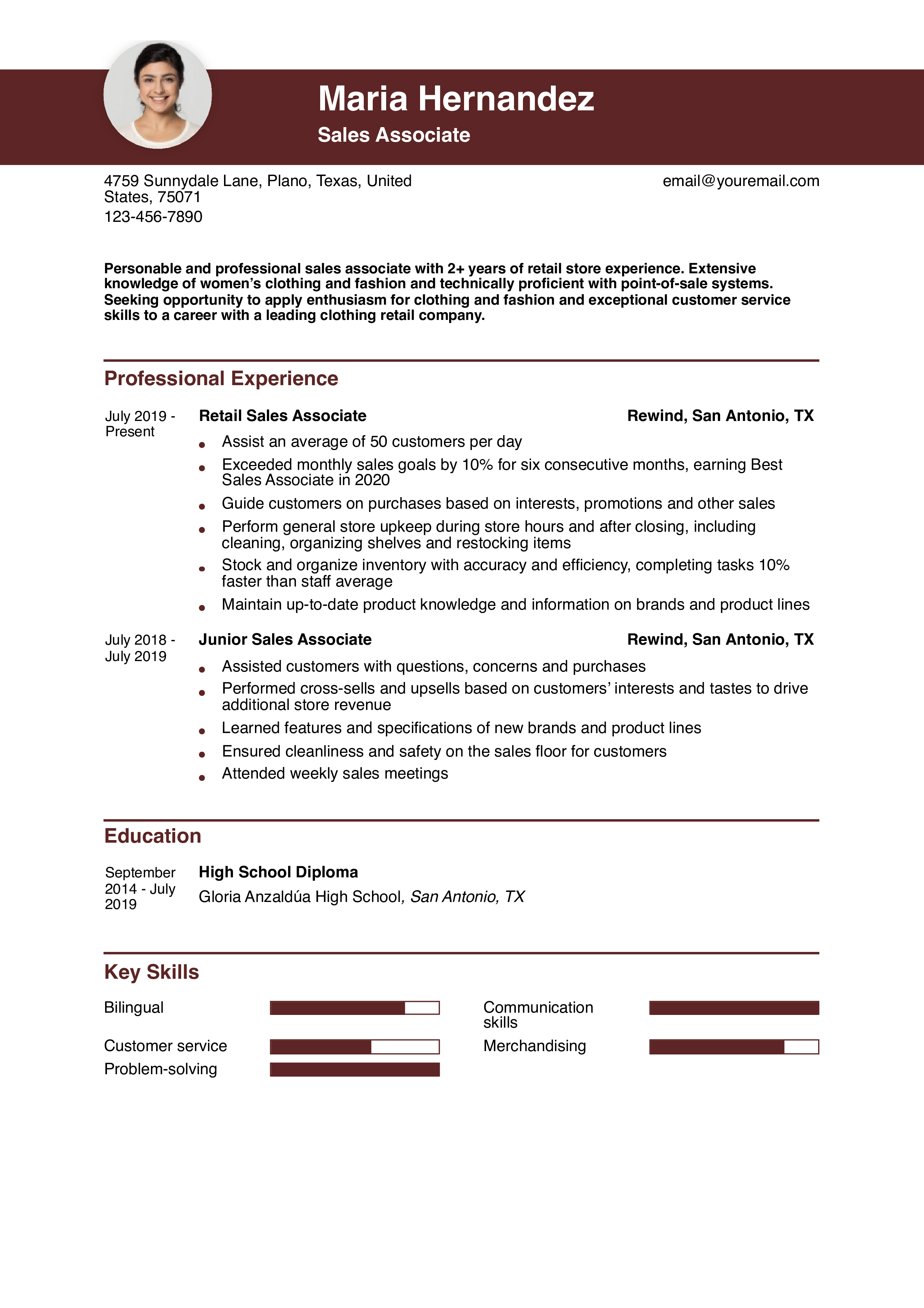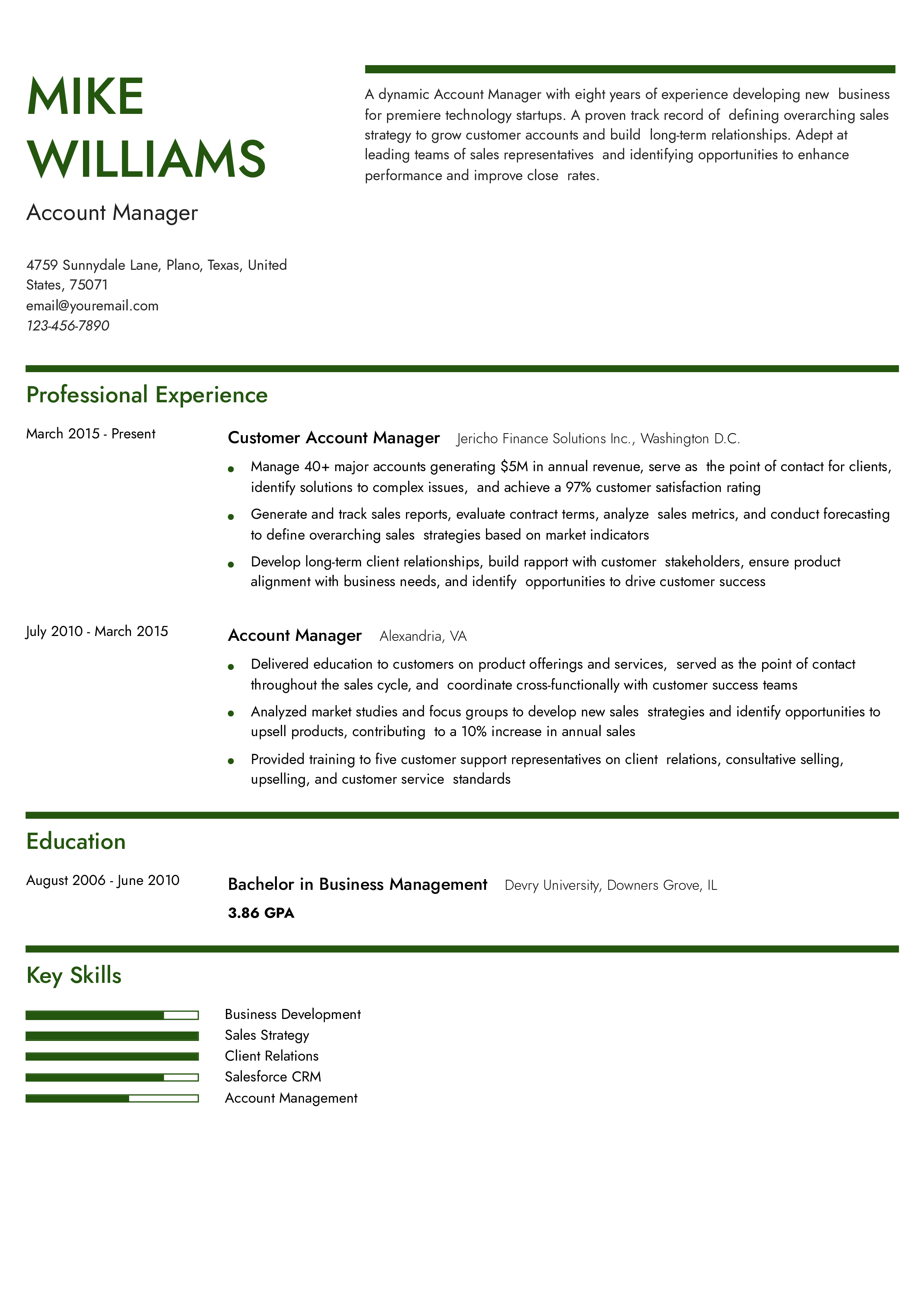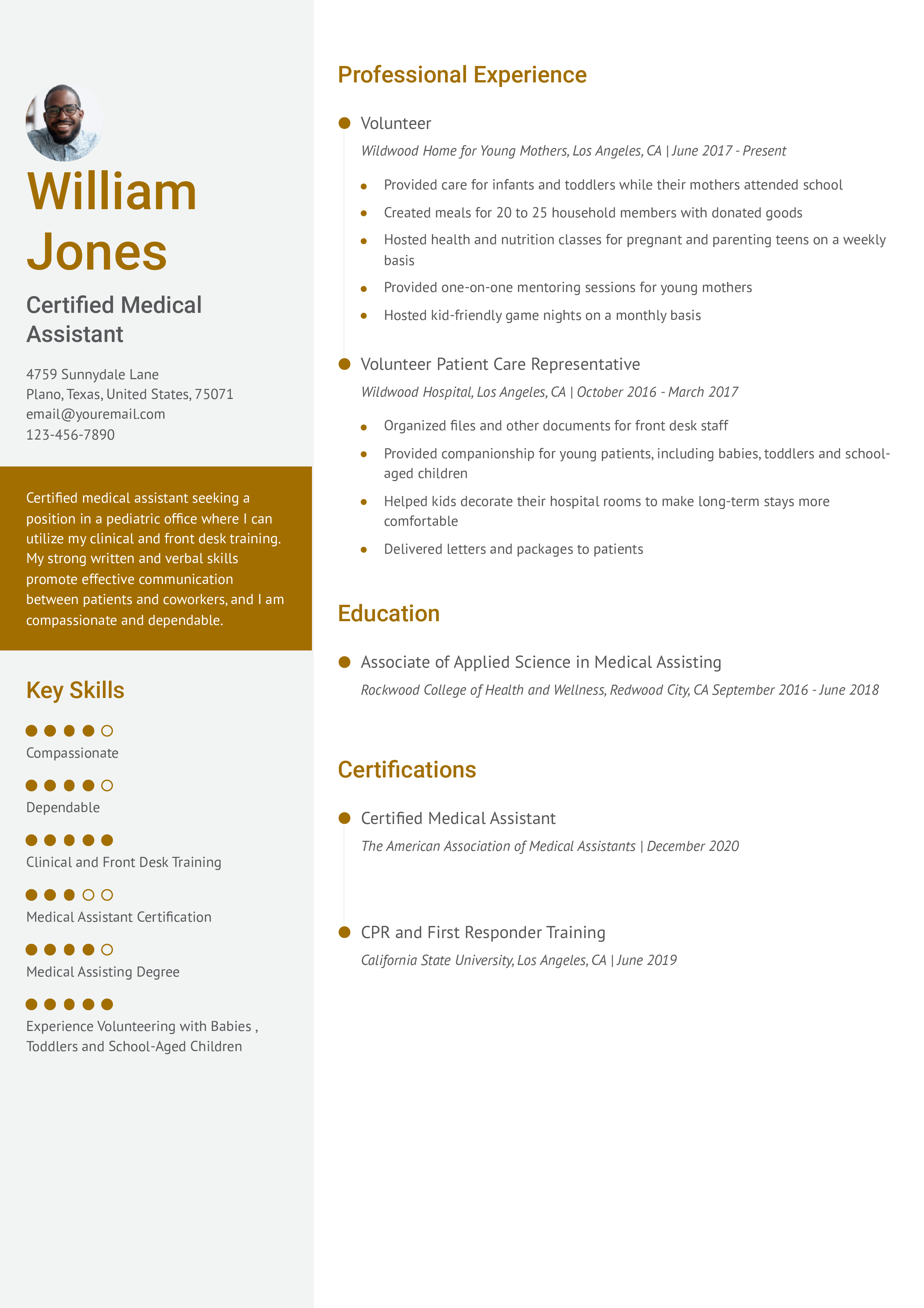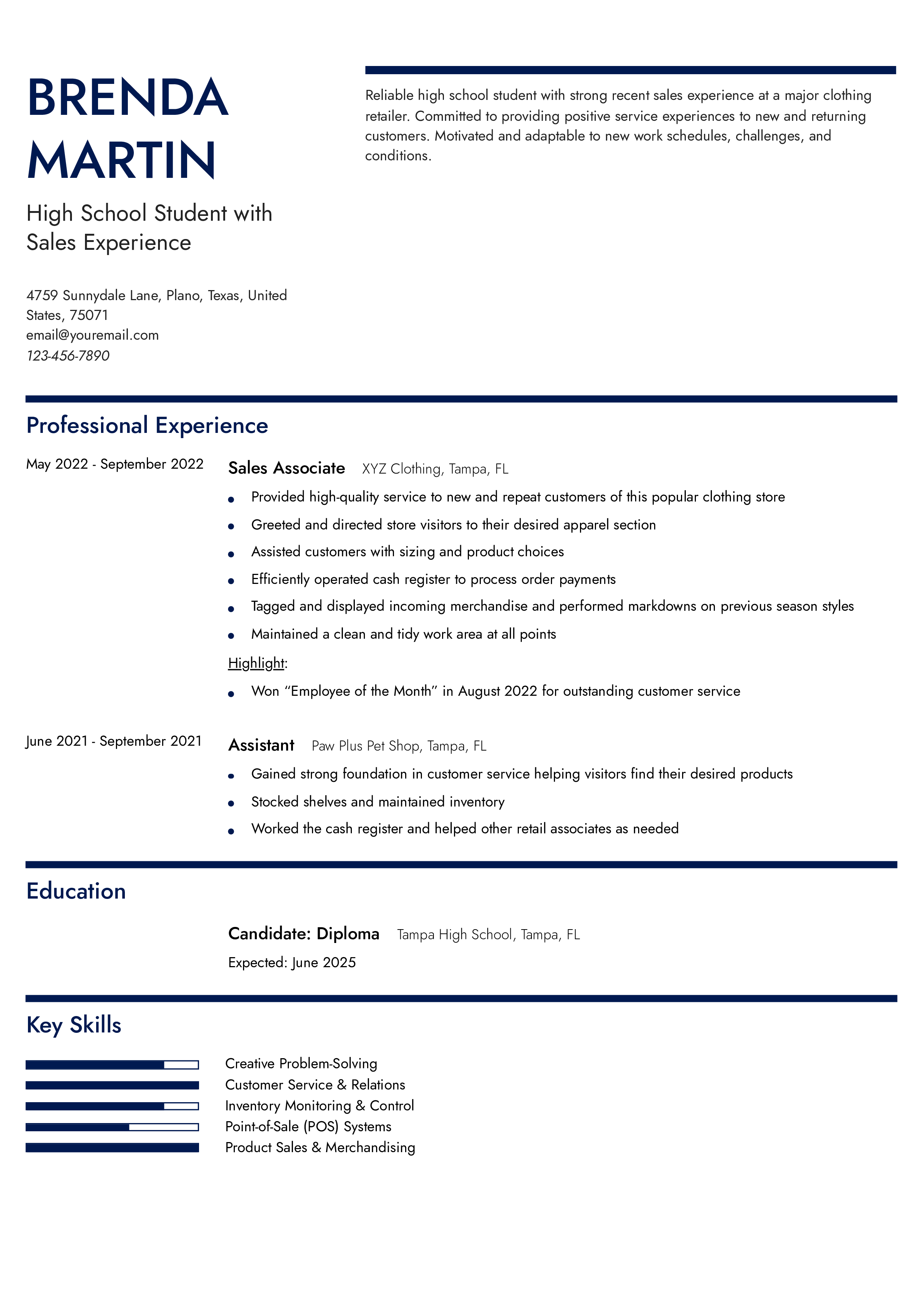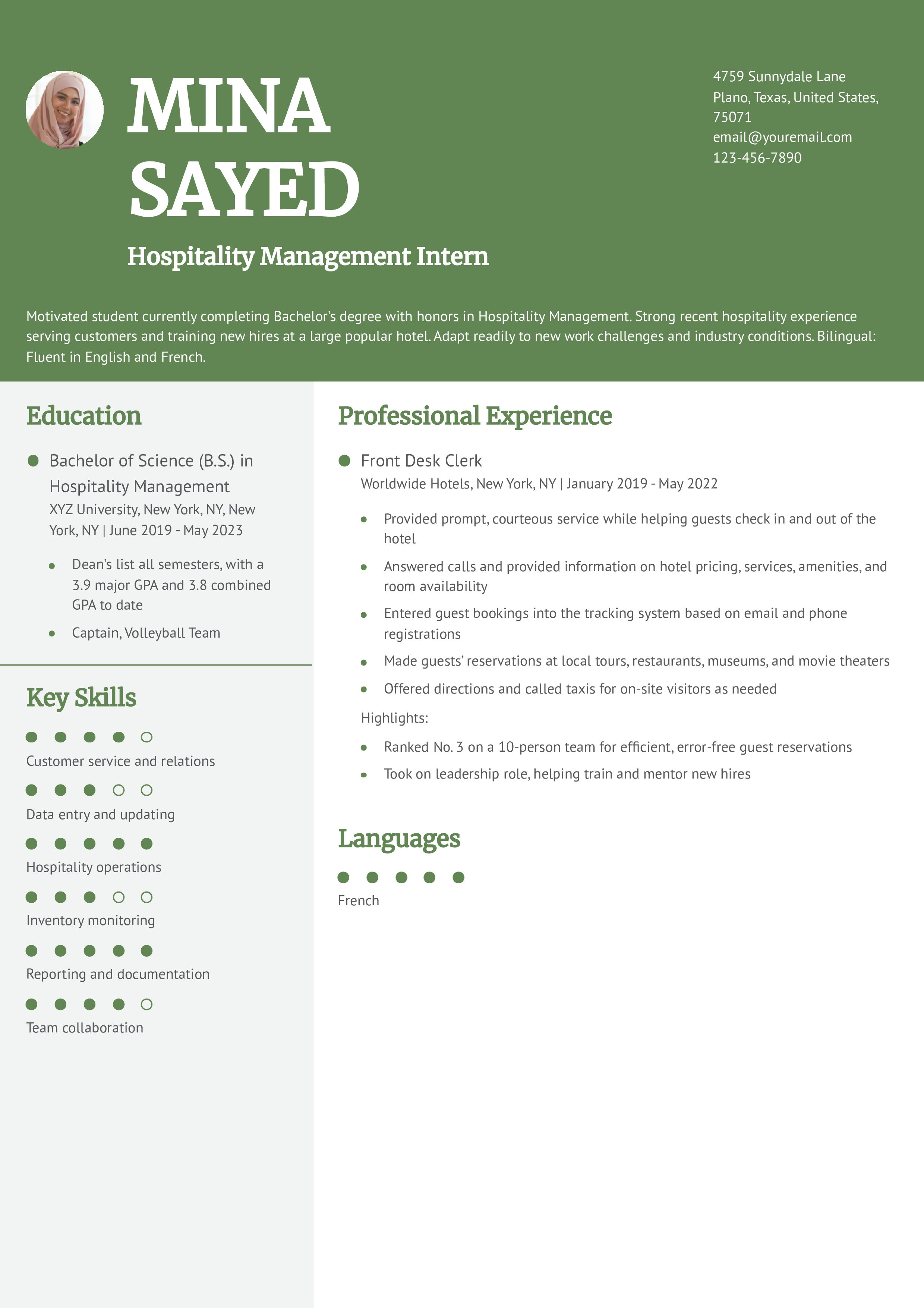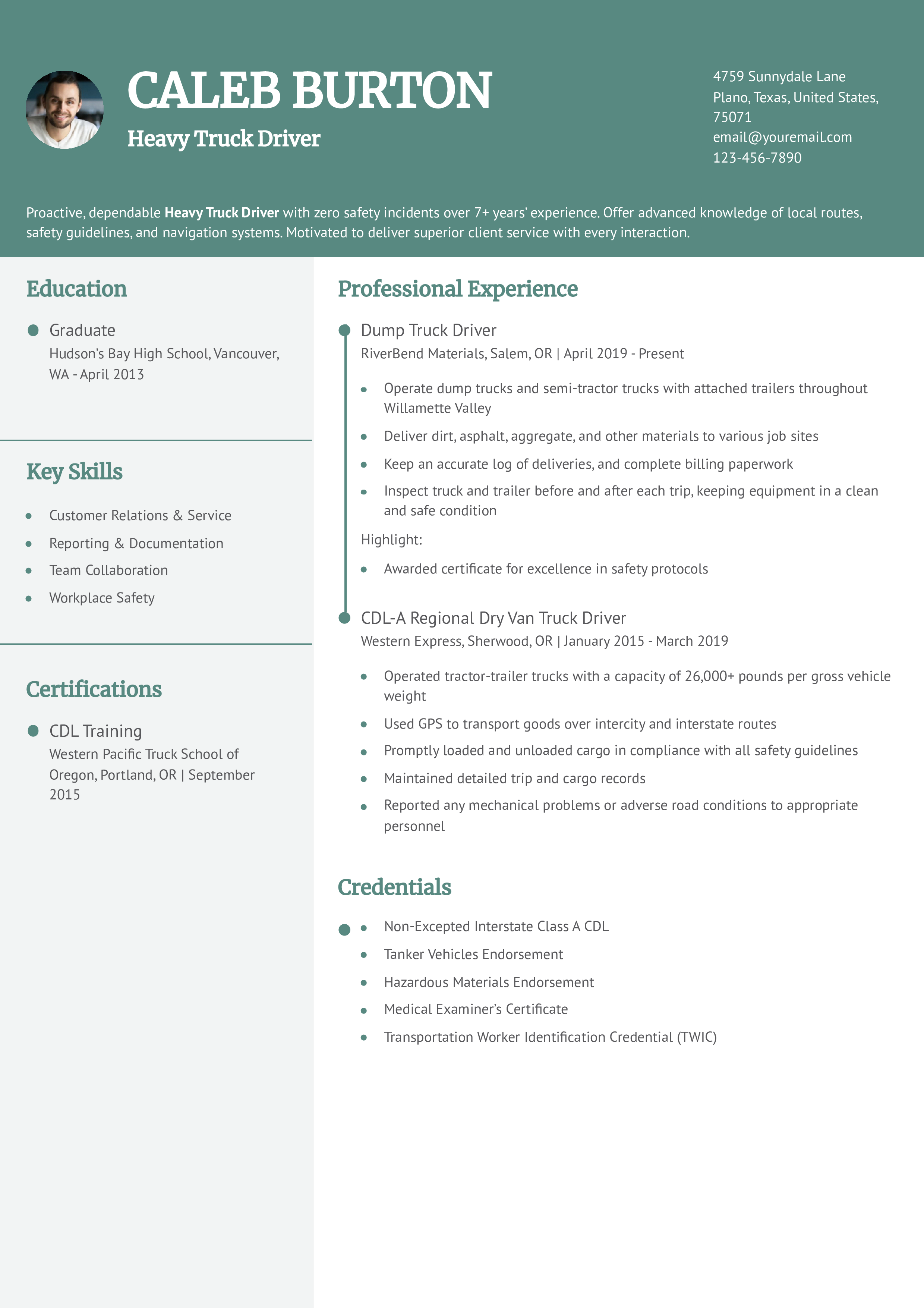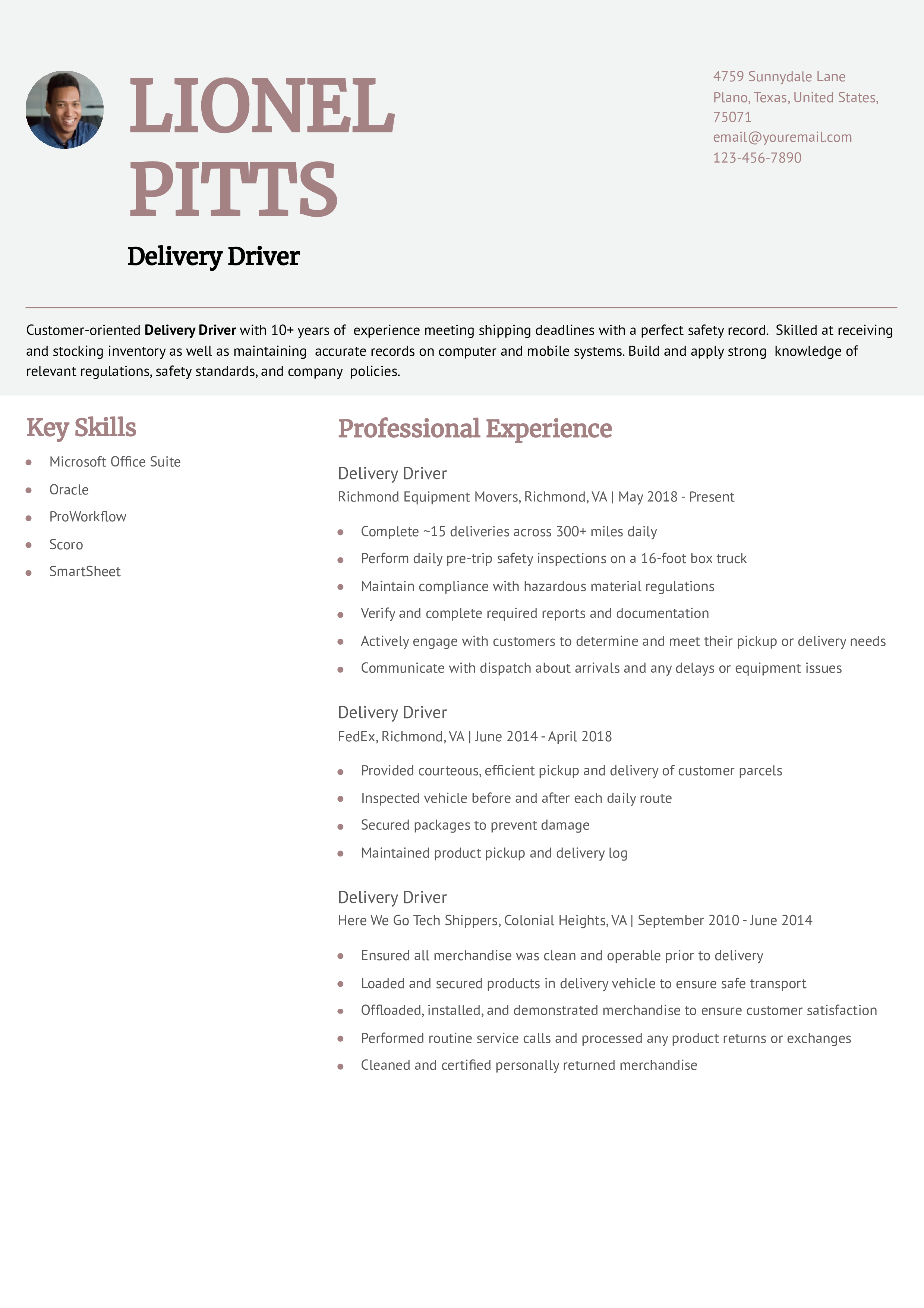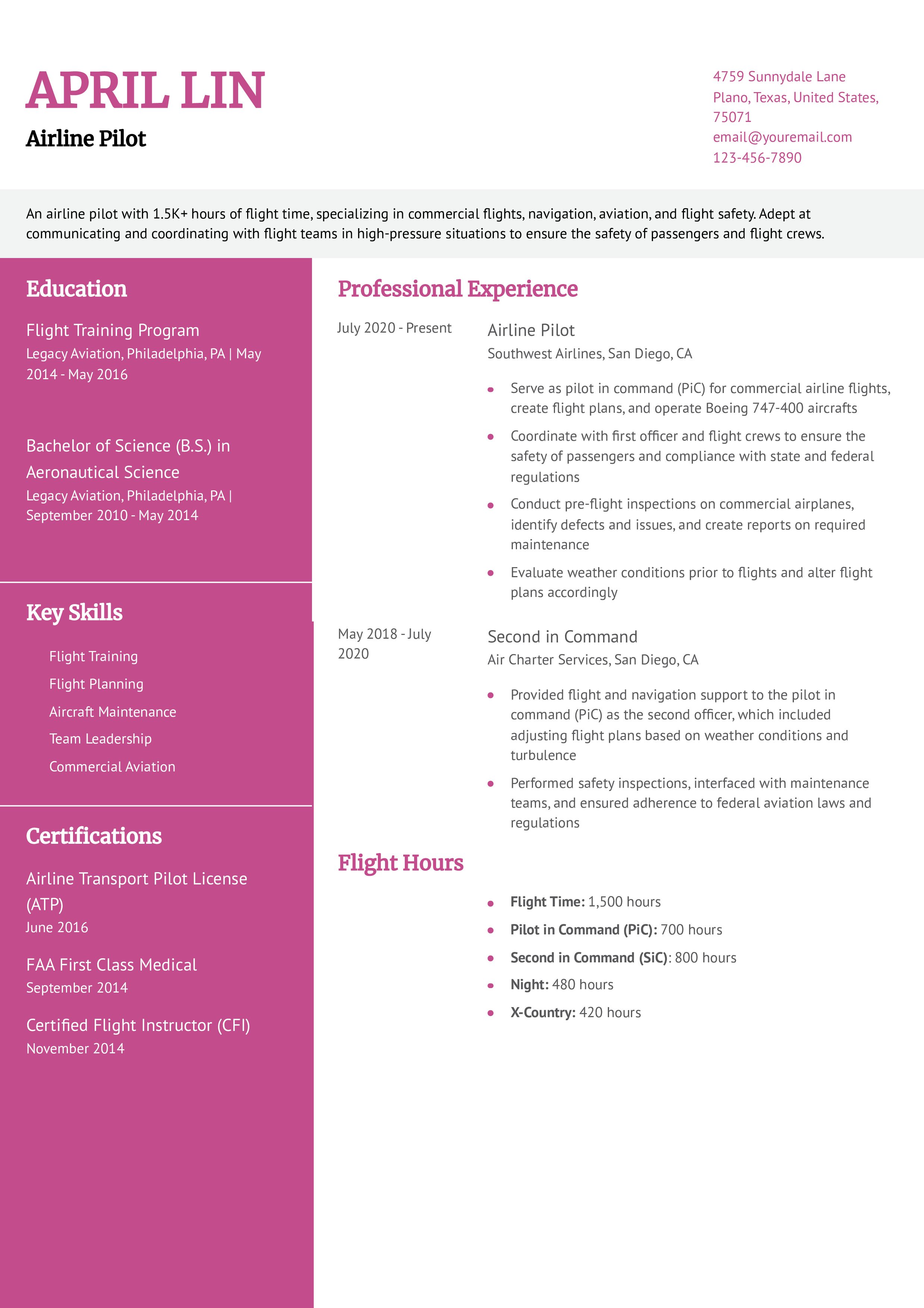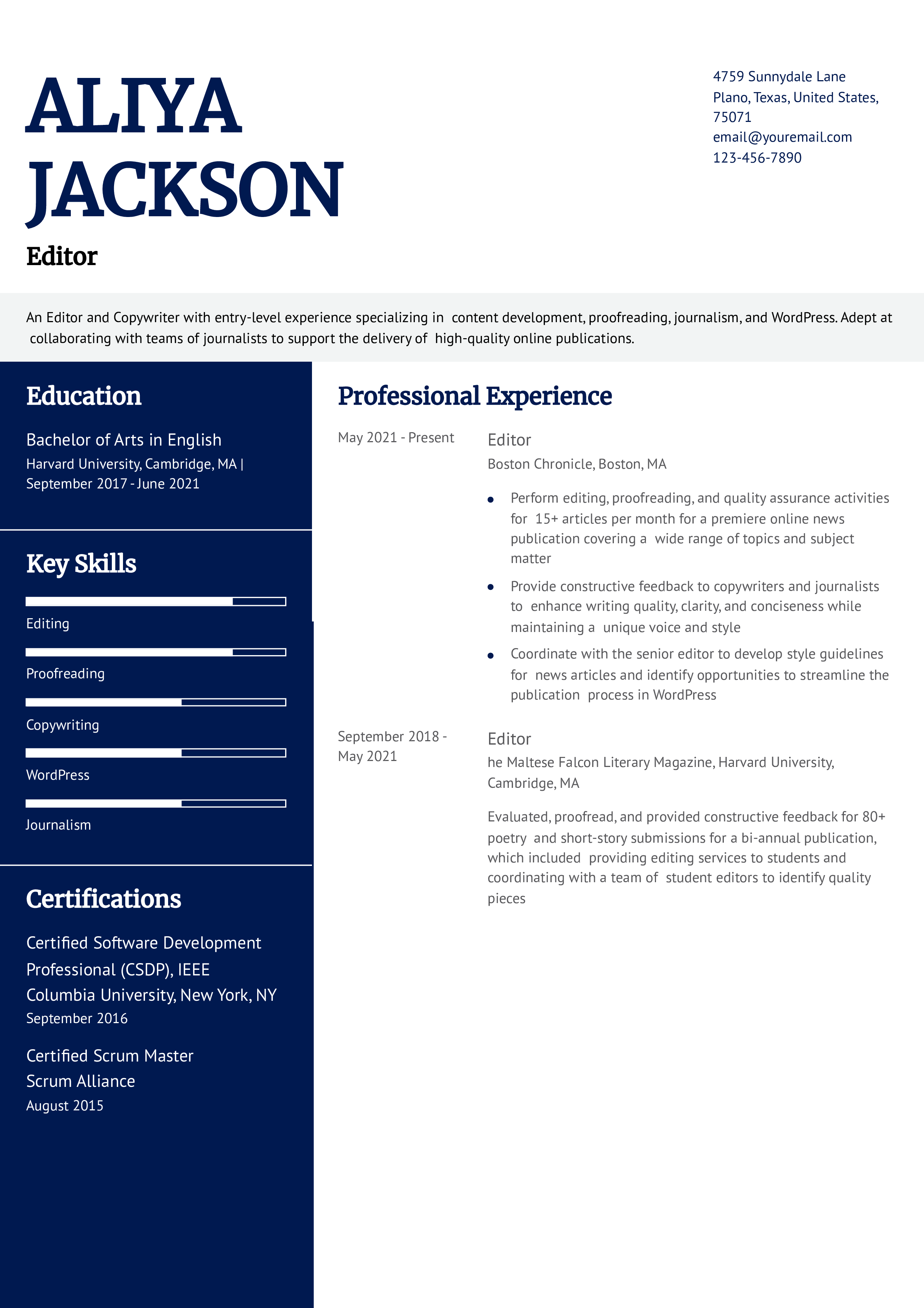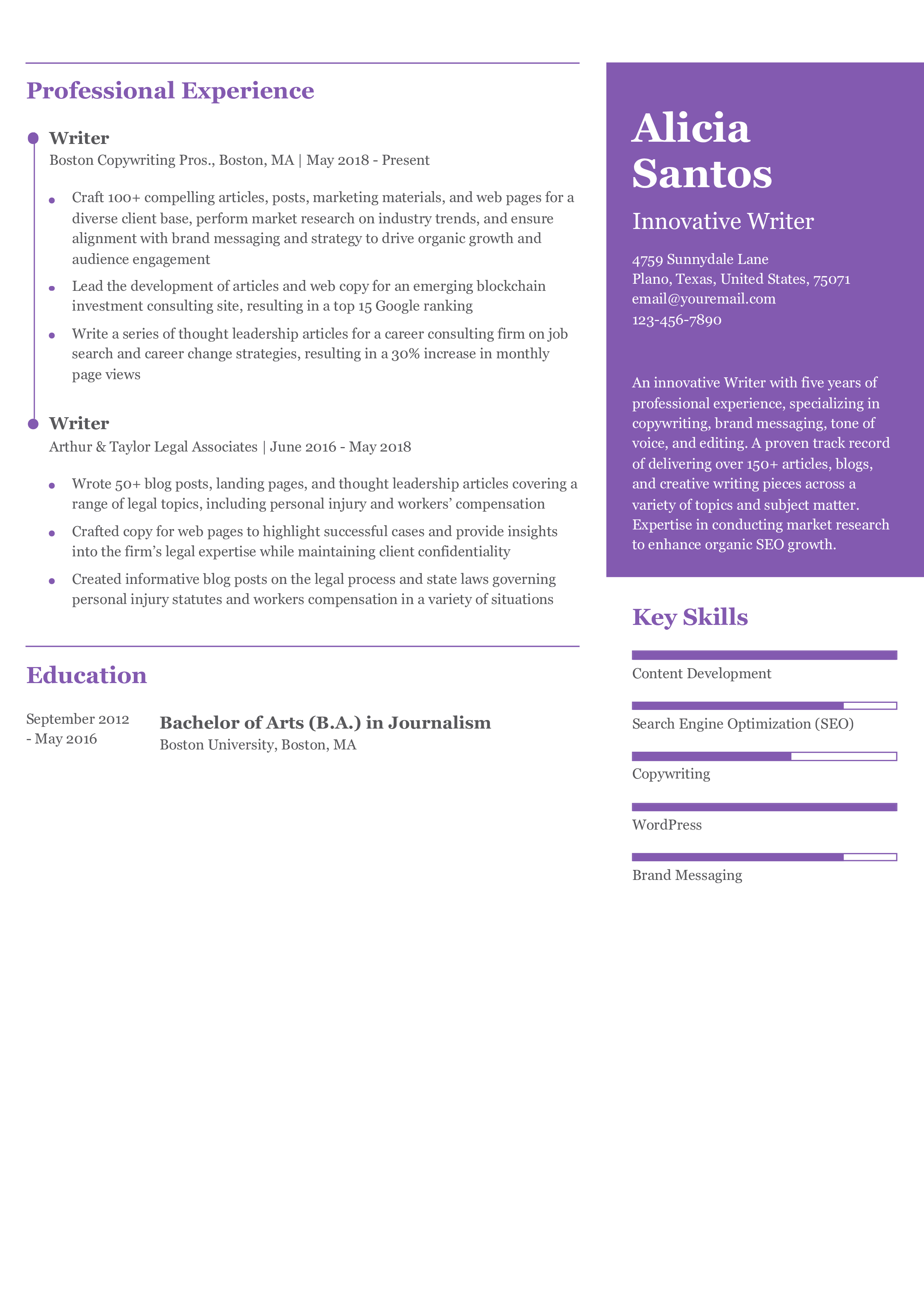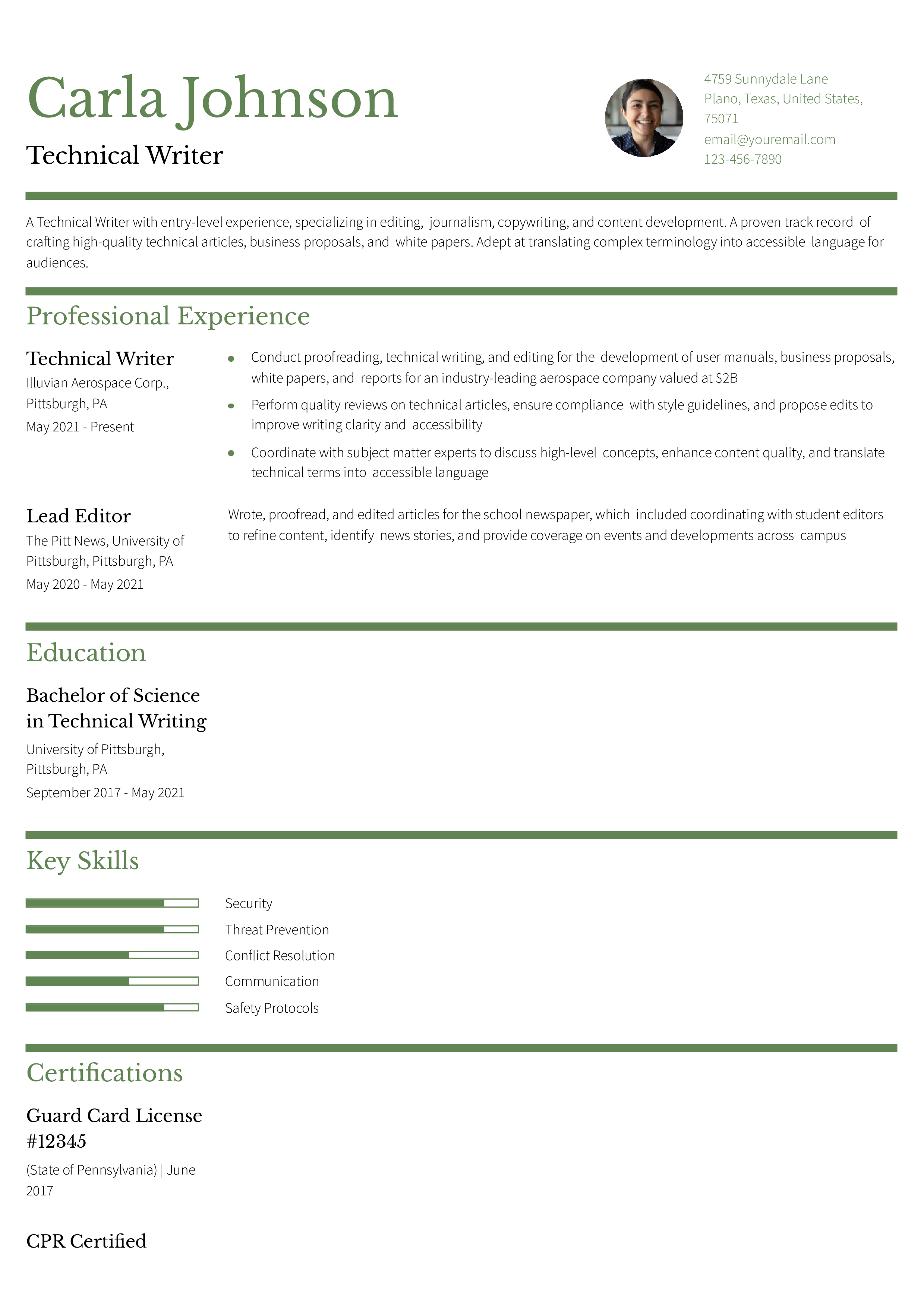Our Most Popular Resume Examples
- Accounting and Finance
- Arts and Design
- Business
- Career Changes and Life Situations
- Child Care and Pet Care
- Common Resume Formats
- Computer Sciences and IT
- Construction and Maintenance
- Customer Service and Retail
- Education
- Engineering and Science
- Entertainment and Sports
- Health and Wellness
- Law
- Management
- Office and Administration
- Public Safety and Community
- Restaurant and Hospitality
- Sales and Marketing
- Students and Recent Graduates
- Transportation and Logistics
- Writing and Editing
Resume Example Categories
- Accounting and Finance
- Arts and Design
- Business
- Career Changes and Life Situations
- Child Care and Pet Care
- Common Resume Formats
- Computer Sciences and IT
- Construction and Maintenance
- Customer Service and Retail
- Education
- Engineering and Science
- Entertainment and Sports
- Health and Wellness
- Law
- Management
- Office and Administration
- Public Safety and Community
- Restaurant and Hospitality
- Sales and Marketing
- Students and Recent Graduates
- Transportation and Logistics
- Writing and Editing
Accounting and Finance Resume Examples
-Get a strong start on your finance or accounting resume by brainstorming how you’ve helped expertly manage assets or raise the bottom line. Where possible, quantify your results in terms of a clear percentage or dollar amount.
Most Popular Resumes in Accounting and Finance
All Resume Examples in Accounting and Finance
- Accountant Resume Samples
- Accounting Assistant Resume Samples
- Accounting Clerk Resume Samples
- Accounts Payable Specialist Resume Samples
- Accounts Receivable Resume Samples
- Analyst Resume Samples
- Auditor Resume Samples
- Auto Insurance Claims Adjuster Resume Samples
- Banking Resume Samples
- Billing Specialist Resume Samples
- Bookkeeper Resume Samples
- Budget Analyst Resume Samples
- Certified Public Accountant Resume Samples
- Chief Financial Officer (CFO) Resume Samples
- Collections Representative Resume Samples
- Collections Team Lead Resume Samples
- E-commerce Resume Samples
- Entry-Level Financial Analyst Resume Samples
- Finance Resume Samples
- Finance Intern Resume Samples
- Finance Manager Resume Samples
- Financial Analyst Resume Samples
- Financial Controller Resume Samples
- Financial Planning and Analysis Resume Samples
- General Accountant Resume Samples
- Investment Banker Resume Samples
- Loan Officer Resume Samples
- Payroll Specialist Resume Samples
- Personal Banker Resume Samples
- Personal Financial Advisor Resume Samples
- Senior Accounting Manager Resume Samples
- Senior Financial Analyst Resume Samples
- Staff Accountant Resume Samples
- Tax Preparer Resume Samples
Arts and Design Resume Examples
-Even in your creative field, the resume is a simple tool for professional communication and should be formatted that way. Feel free to use a resume template if it helps you keep your resume simple and focused on career details. But also consider adding borders, shading, or other subtle effects that hint at your design expertise.
Most Popular Resumes in Arts and Design
All Resume Examples in Arts and Design
- Animator Resume Samples
- Art Director Resume Samples
- Art Teacher Resume Samples
- Artist Resume Samples
- Artist Resume Samples
- Designer Resume Samples
- Fashion Stylist Resume Samples
- Film Resume Samples
- Filmmaker Resume Samples
- Graphic Designer Resume Samples
- Illustrator Resume Samples
- Interior Design Resume Samples
- Music Resume Samples
- Photographer Resume Samples
- Screenwriter Resume Samples
- User Experience (UX) Designer Resume Samples
- User Experience Researcher Resume Samples
- Video Editor Resume Samples
- Videographer Resume Samples
Business Resume Examples
-In today’s competitive business landscape, your resume is your introduction to employers, opening doors to new career advancement. To stand out among many candidates, align your resume with your goals and the specific job you want.
Most Popular Resumes in Business
All Resume Examples in Business
- Business Resume Samples
- Business Administrator Resume Samples
- Business Analyst Resume Samples
- Business Development Manager Resume Samples
- Business Intelligence Analyst Resume Samples
- Business Manager Resume Samples
- Business Owner Resume Samples
- Chief Executive Officer Resume Samples
- Chief Operating Officer (COO) Resume Samples
- Corporate Trainer Resume Samples
- Data Analyst Resume Samples
- Director Resume Samples
- Director of Operations Resume Samples
- Diversity Manager Resume Samples
- Economist Resume Samples
- Entry-Level Human Resource Administration Resume Samples
- Event Manager Resume Samples
- Excel Expert Resume Samples
- Human Resources Resume Samples
- Human Resources Assistant Resume Samples
- Human Resources Business Partner Resume Samples
- Human Resources Manager Resume Samples
- Medical Office Specialist Resume Samples
- MBA Resume Samples
- Procurement Resume Samples
- Project Coordinator Resume Samples
- Public Relations Resume Samples
- Quality Control Resume Samples
- Recruiter Resume Samples
- Staff Training Assistant Resume Samples
- Staffing Recruiter Resume Samples
- Talent Acquisition Specialist Resume Samples
- Trainer Resume Samples
- Training Manager Resume Samples
- Vendor Relationship Manager Resume Samples
Career Changes and Life Situations Resume Examples
-When changing careers, focus your resume on transferable skills and experiences, even if they happened a long time ago or make up a small part of your background. These resume pages can guide you on common career-change scenarios. For more, see our advice on employment gaps and presenting your recent work history.
Most Popular Resumes in Career Changes and Life Situations
All Resume Examples in Career Changes and Life Situations
Child Care and Pet Care Resume Examples
-For a good child care or pet care resume, show you can provide a safe and active environment while building positive relations with parents, guardians, or clients. Note: This is one of the few fields where it’s common to cite references on your resume since they’re often key to your overall candidacy.
Most Popular Resumes in Child Care and Pet Care
All Resume Examples in Child Care and Pet Care
Common Resume Formats Resume Examples
-The guides below will help you build your resume using some of today’s go-to formats and word processors. Select a resume template that showcases your work history in a style you like best.
Most Popular Resumes in Common Resume Formats
All Resume Examples in Common Resume Formats
- Applicant Tracking System Friendly Resume Samples
- Basic and Simple Resume Samples
- Combination Resume Samples
- Functional Resume Samples
- General Resume Samples
- Google Docs Resume Samples
- Hybrid Resume Samples
- Microsoft Word Resume Samples
- Modern Resume Samples
- One Page Resume Samples
- Professional Resume Samples
- Technical Resume Samples
- Traditional Resume Samples
Computer Sciences and IT Resume Examples
-For a good information technology (IT) resume, craft bullet points that show your relevant technical projects and achievements. Also, include a technical skills section so hiring managers know the various programs you can implement.
Most Popular Resumes in Computer Sciences and IT
All Resume Examples in Computer Science and Information Technology
- Amazon Web Services Engineer Resume Samples
- Android Developer Resume Samples
- Computer Consultant Resume Samples
- Computer Engineering Resume Samples
- Brand Ambassador Resume Samples
- Computer Scientist Resume Samples
- Computers and Technology Resume Samples
- Cybersecurity Analyst Resume Samples
- Data Engineer Resume Samples
- Data Scientist Resume Samples
- Database Developer Resume Samples
- Desktop Support Resume Samples
- DevOps Engineer Resume Samples
- Electronics Technician Resume Samples
- Embedded Software Engineer Resume Samples
- Entry-Level Database Administrator Resume Samples
- Entry-Level Software Engineer Resume Samples
- Front-End Developer Resume Samples
- Full Stack Developer Resume Samples
- Google Software Engineer Resume Samples
- Help Desk Resume Samples
- Information Security Analyst Resume Samples
- Information Technology (IT) Resume Samples
- IT Auditor Resume Samples
- IT Manager Resume Samples
- IT Project Manager Resume Samples
- IT Specialist Resume Samples
- Java Developer Resume Samples
- Network Administrator Resume Samples
- Network Engineer Resume Samples
- Professional Systems Engineer Resume Samples
- Programmer Resume Samples
- Quality Assurance (QA) Resume Samples
- Salesforce Developer Resume Samples
- Senior Software Developer Resume Samples
- Senior Software Engineer Resume Samples
- Software Developer Resume Samples
- Software Engineer Resume Samples
- Solution Architect Resume Samples
- System Administrator Resume Samples
- Tableau Resume Samples
- Technical Support Resume Samples
- User Interface (UI) Developer Resume Samples
- Web Designer Resume Samples
- Web Developer Resume Samples
Construction and Maintenance Resume Examples
-A good resume focuses on your relevant experience. For construction, that means highlighting projects you’ve worked on and comparing their scope or budget to the projects that now interest you. And for maintenance, that means highlighting similar facilities you’ve worked for and the methods or equipment you used to keep a business operating smoothly.
Most Popular Resumes in Construction and Maintenance
All Resume Examples in Construction and Maintenance
- Apprentice Electrician Assistant Resume Samples
- Architect Resume Samples
- Assembler Resume Samples
- Automotive Technician Resume Samples
- Carpenter Resume Samples
- Cleaning Professional Resume Samples
- Commercial Construction Superintendent Resume Samples
- Construction Manager Resume Samples
- Construction Project Manager Resume Samples
- Construction Worker Resume Samples
- Custodian Resume Samples
- Electrical Engineer Resume Samples
- Electrician Resume Samples
- Engineering Manager Resume Samples
- Forklift Operator Resume Samples
- General Contractor Resume Samples
- General Laborer Resume Samples
- General Maintenance Worker Resume Samples
- Housekeeper Resume Samples
- HVAC Technician Resume Samples
- Industrial Electrician Resume Samples
- Janitor Resume Samples
- Janitor (Entry-Level) Resume Samples
- Landscape Worker Resume Samples
- Machine Operator Resume Samples
- Maintenance Resume Samples
- Maintenance Technician Resume Samples
- Material Handler Resume Samples
- Mechanic Resume Samples
- Mechanical Technician Resume Samples
- Pest Control Resume Samples
- Plumber Resume Samples
- Production Resume Samples
- Professional Painter Resume Samples
- Residential House Cleaner Resume Samples
- Service Technician Resume Samples
- Warehouse Manager Resume Samples
- Warehouse Worker Resume Samples
- Welder Resume Samples
Customer Service and Retail Resume Examples
-To start writing your resume for this field, brainstorm and jot down how you’ve helped raise satisfaction scores or drive revenue growth for the stores where you’ve worked. Also, see our guide on making customer service the focus of your resume.
Most Popular Resumes in Customer Service and Retail
All Resume Examples in Customer Service and Retail
- Airline Customer Service Agent Resume Samples
- Apartment Leasing Agent Resume Samples
- Assistant Store Manager Resume Samples
- Bank Teller Resume Samples
- Cashier Resume Samples
- Customer Service Manager Resume Samples
- Customer Service Representative Resume Samples
- Customer Service Supervisor Resume Samples
- Customer Success Manager Resume Samples
- E-commerce Retail Resume Samples
- Flight Attendant Resume Samples
- Grocery Store Cashier Resume Samples
- Pizza Delivery Driver Resume Samples
- Retail Resume Samples
- Retail Customer Service Representative Resume Samples
- Retail Manager Resume Samples
- Retail Sales Associate Resume Samples
- Store Manager Resume Samples
- Travel Agent Resume Samples
Education Resume Examples
-When creating your resume for education jobs, use each section to show you can help provide positive learning experiences for students. And if you’re applying to a teacher position, highlight your skills in classroom management and parent relations.
Most Popular Resumes in Education
All Resume Examples in Education
- Assistant Principal Resume Samples
- Basketball Coach Resume Samples
- College Admissions Counselor Resume Samples
- Counselor Resume Samples
- Early Childhood Education Resume Samples
- Education Resume Samples
- Elementary School Teacher Resume Samples
- English Teacher Resume Samples
- ESL Teacher Resume Samples
- First-Year Teacher Resume Samples
- High School Teacher Resume Samples
- Instructional Designer Resume Samples
- Librarian Resume Samples
- Library Page Resume Samples
- Music Teacher Resume Samples
- Preschool Teacher Resume Samples
- Principal Resume Samples
- Professor Resume Samples
- Research Assistant Resume Samples
- School Counselor Resume Samples
- Special Education Teacher Resume Samples
- Speech-Language Pathologist Resume Samples
- Student Teacher Resume Samples
- Substitute Teacher Resume Samples
- Teacher Resume Samples
- Teacher’s Assistant (TA) Resume Samples
- Tutor Resume Samples
Engineering and Science Resume Examples
-To write a good resume for engineering jobs, show you can design complex systems based on deep technical knowledge. Also, consider how you’ve applied math or science principles to find real-world solutions.
Most Popular Resumes in Engineering and Science
All Resume Examples in Engineering and Science
- Audio Engineer Resume Samples
- Biology Resume Samples
- Biology Technician Resume Samples
- Biomedical Engineer Resume Samples
- Chemistry Resume Samples
- Civil Engineer Resume Samples
- Engineering Resume Samples
- Engineering Internship Resume Samples
- Environmental Engineer Resume Samples
- Industrial Engineer Resume Samples
- Lab Assistant Resume Samples
- Mechanical Engineer Resume Samples
- Quality Engineer Resume Samples
- Science Resume Samples
- Test Engineer Resume Samples
Entertainment and Sports Resume Examples
-A good entertainment-industry resume outlines the projects or productions you’ve worked on, emphasizing any that overlap with the types of projects that now interest you. A good sports-industry resume showcases your athletic achievements, leadership or teamwork skills, and all-around knowledge of your sport.
Most Popular Resumes in Entertainment and Sports
All Resume Examples in Entertainment and Sports
- Actor/Actress Resume Samples
- Athletes and Sports Competitors Resume Samples
- Audio-Video Technician Resume Samples
- Coaching Resume Samples
- Dancer Resume Samples
- Dance Instructor Resume Samples
- Entertainment Resume Samples
- Film Director Resume Samples
- High School Football Coach Resume Samples
- Model Resume Samples
- Producer Resume Samples
- Production Assistant Resume Samples
- Theater Resume Samples
- Voice Actor Resume Samples
Health and Wellness Resume Examples
-Health care and wellness includes many job levels and specialties. But whether you’re applying to a role as a certified nursing assistant or chief medical officer, lab tech or life coach, you can write a great resume by showing how you help people overcome illness or achieve better physical and mental well-being.
Most Popular Resumes in Health and Wellness
All Resume Examples in Health and Wellness
- Budtender Resume Samples
- Caregiver Resume Samples
- Certified Home Health Aide Resume Samples
- Certified Nursing Assistant (CNA) Resume Samples
- Certified Nursing Assistant (No Experience) Resume Samples
- Certified Occupational Therapy Assistant Resume Samples
- Chiropractic Assistant Resume Samples
- Clinical Research Associate Resume Samples
- Companion Caregiver Resume Samples
- Cosmetologist Resume Samples
- Dental Assistant Resume Samples
- Dental Hygienist Resume Samples
- Dentist Resume Samples
- Dietary Aide Resume Samples
- Emergency Medical Technician (EMT) Resume Samples
- Emergency Room (ER) Nurse Resume Samples
- Entry-Level Dental Assistant Resume Samples
- Esthetician Resume Samples
- Group Fitness Instructor Resume Samples
- Hair Salon Receptionist Resume Samples
- Hairstylist Resume Samples
- Health Care Resume Samples
- Health Care Administrator Resume Samples
- Health Care and Support Resume Samples
- Health Care Management Resume Samples
- Home Health Aide Resume Samples
- Intensive Care Unit Nurse Resume Samples
- Lab Technician Resume Samples
- Labor and Delivery Nurse Resume Samples
- Licensed Practical Nurse (LPN) Resume Samples
- Licensed Vocational Nurse (LVN) Resume Samples
- Life Coach Resume Samples
- Makeup Artist Resume Samples
- Massage Therapist Resume Samples
- Medical Resume Samples
- Medical Assistant Resume Samples
- Medical Billing and Coding Specialist Resume Samples
- Medical Doctor Resume Samples
- Medical Receptionist Resume Samples
- Medical Scribe Resume Samples
- Medical Surgical Nurse Resume Samples
- Medical Technologist Resume Samples
- Military Nurse Resume Samples
- Neonatal Nurse Resume Samples
- New Grad Nurse Resume Samples
- Nurse Resume Samples
- Nurse Educator Resume Samples
- Nurse Manager Resume Samples
- Nurse Practitioner Resume Samples
- Nursing Assistant Resume Samples
- Nursing Home Nurse Resume Samples
- Nursing Student Resume Samples
- Occupational Therapist (OT) Resume Samples
- Operating Room Nurse Resume Samples
- Optometrist Resume Samples
- Patient Care Assistant Resume Samples
- Patient Care Technician Resume Samples
- Pediatric Nurse Resume Samples
- Personal Care Assistant Resume Samples
- Personal Trainer Resume Samples
- Pharmacist Resume Samples
- Pharmacy Technician Resume Samples
- Phlebotomist Resume Samples
- Physical Therapist Resume Samples
- Physician Assistant Resume Samples
- Psychiatric Nurse Resume Samples
- Psychology Resume Samples
- Radiology Technician Resume Samples
- Registered Nurse Resume Samples
- Salon Manager Resume Samples
- SAP Resume Samples
- Travel Nurse Resume Samples
- Yoga Instructor Resume Samples
Law Resume Examples
-When writing your resume for legal jobs, use each section to show you have strong knowledge in your specialized field. Employers want to know where you gained important skills like legal research, public speaking, or settlement negotiations. They also like to know how you can use those skills to expertly represent them or their clients.
Most Popular Resumes in Law
Management Resume Examples
-For a good start on your management resume, take 10 minutes to brainstorm and jot down how you’ve helped teams work more quickly or cost-effectively. Also, gather any data available that helps you quantify these highlights in terms of a clear ranking, percentage, or dollar amount.
Most Popular Resumes in Management
All Resume Examples in Management
- Assistant Manager Resume Samples
- Branch Manager Resume Samples
- Chief Information Officer Resume Samples
- Consulting Resume Samples
- Digital Marketing Resume Samples
- District Manager Resume Samples
- Executive Resume Samples
- General Manager Resume Samples
- Management Resume Samples
- Management Consultant Resume Samples
- Operations Manager Resume Samples
- Product Manager Resume Samples
- Product Owner Resume Samples
- Professional Product Marketing Manager Resume Samples
- Program Manager Resume Samples
- Project Manager Resume Samples
- Property Manager Resume Samples
- Scrum Master Resume Samples
- Senior Project Manager Resume Samples
- Shift Leader Resume Samples
- Supervisor Resume Samples
Office and Administration Resume Examples
-To make a strong resume for administrative roles, focus on your experience carrying out daily business functions for an office or facility. Also, give examples of how you helped streamline operations for better efficiency, service quality, or cost-effectiveness.
Most Popular Resumes in Office and Administration
All Resume Examples in Office and Administration
- Administrative Assistant Resume Samples
- Clerical Resume Samples
- Data Entry Resume Samples
- Event Planner and Coordinator Resume Samples
- Executive Assistant Resume Samples
- Front Desk Medical Receptionist Resume Samples
- Front Desk Receptionist Resume Samples
- Human Resources Assistant Resume Samples
- Human Resources Coordinator Resume Samples
- Human Resources Generalist Resume Samples
- Office Administrator Resume Samples
- Office Assistant Resume Samples
- Office Manager Resume Samples
- Personal Assistant Resume Samples
- Receptionist Resume Samples
- Secretary Resume Samples
- Virtual Assistant Resume Samples
Public Safety and Community Resume Examples
-To write a good resume for public safety and community jobs, show how you’ve helped protect the public, advance important causes, or support underprivileged groups.
Most Popular Resumes in Public Safety and Community
All Resume Examples in Public Safety and Community Well-being
- Asset Protection Specialist Resume Samples
- Case Manager Resume Samples
- Community Service Worker Resume Samples
- Correctional Officer Resume Samples
- FBI Agent Resume Samples
- Federal Resume Samples
- Firefighter Resume Samples
- Fundraising Volunteer Resume Samples
- Human Service Worker Resume Samples
- Law Enforcement Resume Samples
- Lifeguard Resume Samples
- Mall Security Guard Resume Samples
- Nonprofit Resume Samples
- Pastor Resume Samples
- Police Officer Resume Samples
- Security Guard Resume Samples
- Security Officer Resume Samples
- Social Worker Resume Samples
- Volunteer Resume Samples
Restaurant and Hospitality Resume Examples
-Hospitality is all about providing a great customer experience — highlight any skills and experience that show your ability to do just that.
Most Popular Resumes in Restaurant and Hospitality
All Resume Examples in Restaurant and Hospitality
- Bar Manager Resume Samples
- Barista Resume Samples
- Bartender Resume Samples
- Bartender / Server Resume Samples
- Busser Resume Samples
- Catering Resume Samples
- Chef Resume Samples
- Cook Resume Samples
- Culinary Resume Samples
- Fast Food Worker Resume Samples
- Food Delivery Driver Resume Samples
- Food Service Resume Samples
- Gas Station Cashier Resume Samples
- Hilton Front Desk Resume Samples
- Hospitality Hotel Resume Samples
- Hospitality Hotel Front Desk Resume Samples
- Host and Hostess Resume Samples
- Line Cook Resume Samples
- Prep Cook Resume Samples
- Restaurant Resume Samples
- Restaurant Manager Resume Samples
- Server Resume Samples
- Sous Chef Resume Samples
- Starbucks Resume Samples
- Waiter/Waitress Resume Samples
Sales and Marketing Resume Examples
-To start writing your sales or marketing resume, brainstorm how you’ve helped engage clients, promote products, and grow revenue for past employers. Performance data is key to this field, so quantify your results in terms of a clear percentage or dollar amount whenever possible.
Most Popular Resumes in Sales and Marketing
All Resume Examples in Sales and Marketing
- Account Manager Resume Samples
- Account Executive Resume Samples
- Advertising Resume Samples
- Broker Resume Samples
- Call Center Representative Resume Samples
- Car Salesman Resume Samples
- Chief Marketing Officer Resume Samples
- Communications Specialist Resume Samples
- Content Marketing Resume Samples
- Content Strategist Resume Samples
- Content Writer Resume Samples
- Creative Director Resume Samples
- Digital Marketing Manager Resume Samples
- Digital Marketing Specialist Resume Samples
- Freelance Writer Resume Samples
- Inside Sales Rep Resume Samples
- Insurance Sales Resume Samples
- Marketing Resume Samples
- Marketing Assistant Resume Samples
- Marketing Coordinator Resume Samples
- Marketing Director Resume Samples
- Marketing Intern Resume Samples
- Marketing Manager Resume Samples
- Media Planner Resume Samples
- Medical Sales Resume Samples
- Medical Sales Representative (Entry-Level) Resume Samples
- Outside Sales Representative Resume Samples
- Real Estate Agent Resume Samples
- Sales Resume Samples
- Sales Account Executive Resume Samples
- Sales Associate Resume Samples
- Sales Consultant Resume Samples
- Sales Director Resume Samples
- Sales Engineer Resume Samples
- Sales Manager Resume Samples
- Sales Representative Resume Samples
- Senior Account Manager Resume Samples
- Senior Sales Associate Resume Samples
- SEO Resume Samples
- SEO Specialist Resume Samples
- Social Media Resume Samples
- Social Media Manager Resume Samples
- Visual Merchandising Resume Samples
- VP of Sales Resume Samples
Students and Recent Graduates Resume Examples
-How to write a resume with little or no work experience? Focus on pertinent skills you’ve gained through school coursework, community service, or extracurricular activities. Also, flesh out your education section with details that help show you’re ready for your next career stage.
Most Popular Resumes in Students and Recent Graduates
All Resume Examples for Students and Recent Graduates
- Basic Resume Samples
- College Student Resume Samples
- Entry-Level Resume Samples
- Entry-Level Information Technology Resume Samples
- Graduate School Resume Samples
- High School Student Resume Samples
- High School Teacher Resume Samples
- Internship Resume Samples
- Ph.D. Resume Samples
- Recent College Graduate Resume Samples
- Scholarship Resume Samples
- Student Resume Samples
- Teacher’s Assistant (TA) Resume Samples
- Teen Resume Samples
Transportation and Logistics Resume Examples
-For a good resume in transportation, show you’re a pro at getting people or goods from point A to point B. And for a good resume in logistics, display you have the organizational skills to ensure manufacturing and other processes run smoothly.
Most Popular Resumes in Transportation and Logistics
All Resume Examples in Transportation and Logistics
- Aircraft Mechanic Resume Samples
- Company Driver Resume Samples
- Contemporary Truck Driver Resume Samples
- Delivery Driver Resume Samples
- Inventory Control Clerk Resume Samples
- Inventory Manager Resume Samples
- Logistics Resume Samples
- Logistics Specialist Resume Samples
- Pilot Resume Samples
- School Bus Driver Resume Samples
- Supply Chain Analyst Resume Samples
- Supply Chain Manager Resume Samples
- Truck Driver Resume Samples
- Uber Driver Resume Samples
Writing and Editing Resume Examples
-Your writing skills give you an obvious advantage in creating your resume. But you may still struggle with resume-specific editing or formatting standards. The guides below can help.
Most Popular Resumes in Writing and Editing
Craft your perfect resume in minutes
Get 2x more interviews with Resume Builder. Access Pro Plan features for a limited time!
Frequently Asked Questions About Resumes
How do you write a good resume?
-Brainstorm your positive career experiences, then choose the most relevant ones to feature on your resume. Divide your information into distinct sections (like professional experience, education, or key skills), and use each section to show you can excel in your target job. Also write a brief profile summary of your top qualifications. Tailor your resume to each job application, using keywords from the job posting. Your resume should include your contact information, profile, experience, education, and key skills.
How long should a resume be?
+For most people, a resume should be between one to three pages long, but it depends on your job goals and experience. Your resume should include relevant information, but not so much that it overwhelms recruiters and hiring managers.
What is the best resume format?
+A reverse chronological resume format is widely accepted as the industry standard and is the best resume format for most job seekers. With a reverse chronological format, your most recent and relevant experience is at the top.
How many jobs should you list on a resume?
+List all relevant job experience on your resume. A good rule of thumb is to include your three most recent jobs and go back as far as 15 years.
How do I know which resume example to use for my job application?
+Choose a resume example based on your job type, industry, and experience level. For instance, if you're a new graduate, look for entry-level resume examples. If you're changing careers, a functional resume example might work best.
Can I use a resume sample directly for my job application?
+Resume samples are for inspiration. While they provide a framework, you should tailor the content to reflect your unique skills, experience, and accomplishments to stand out to employers.
How can resume examples improve my application?
+Resume examples can:
- Help you understand industry-specific jargon.
- Demonstrate effective ways to highlight skills and achievements.
- Provide guidance on structuring and formatting.
Should I use an ATS-friendly resume example?
+Yes, if you're applying to companies that use applicant tracking systems (ATS). ATS-friendly resume examples focus on clean formatting, relevant keywords, and straightforward structure to ensure your resume is properly scanned.
How can resume samples help me craft a better resume?
+Resume samples provide a practical view of what a completed resume should look like for a specific job or industry. They can help you:
- Understand the tone and language commonly used in your field.
- See how to structure your achievements and experiences effectively.
- Identify key skills and qualifications employers look for in a particular role.
- Gain inspiration for phrasing and formatting your own resume.
What’s the ideal length for a resume?
+A one-page resume is ideal for most positions, especially if you have less than 10 years of experience. For experienced professionals, a two-page resume may be appropriate, but only if it includes valuable, job-relevant content. Focus on showcasing your key achievements, certifications, and skills that align with the job description.
Aim to include work experience from the last 10 to 15 years. Older roles can be summarized or omitted unless they add significant value. Keeping your resume concise and relevant will leave a strong impression on hiring managers.



